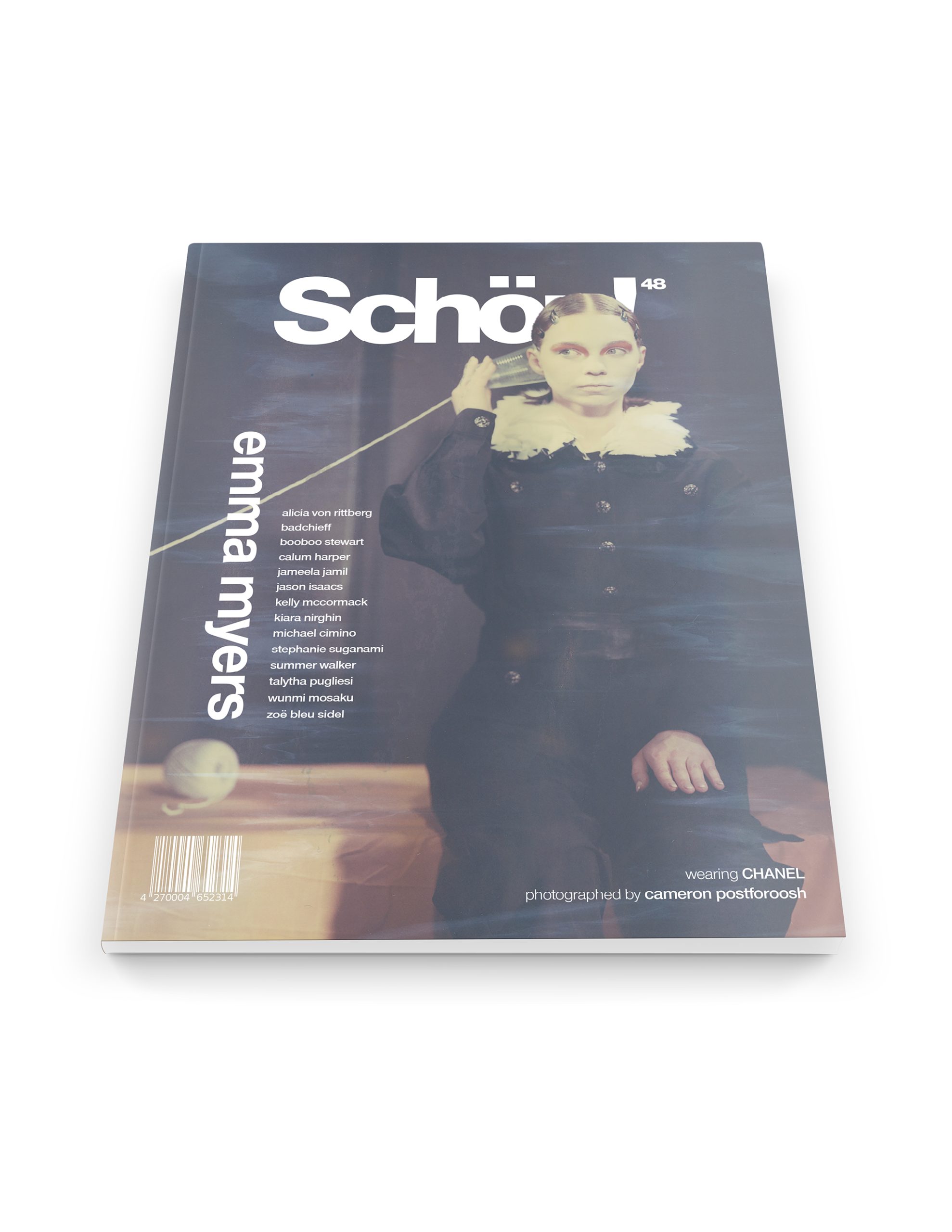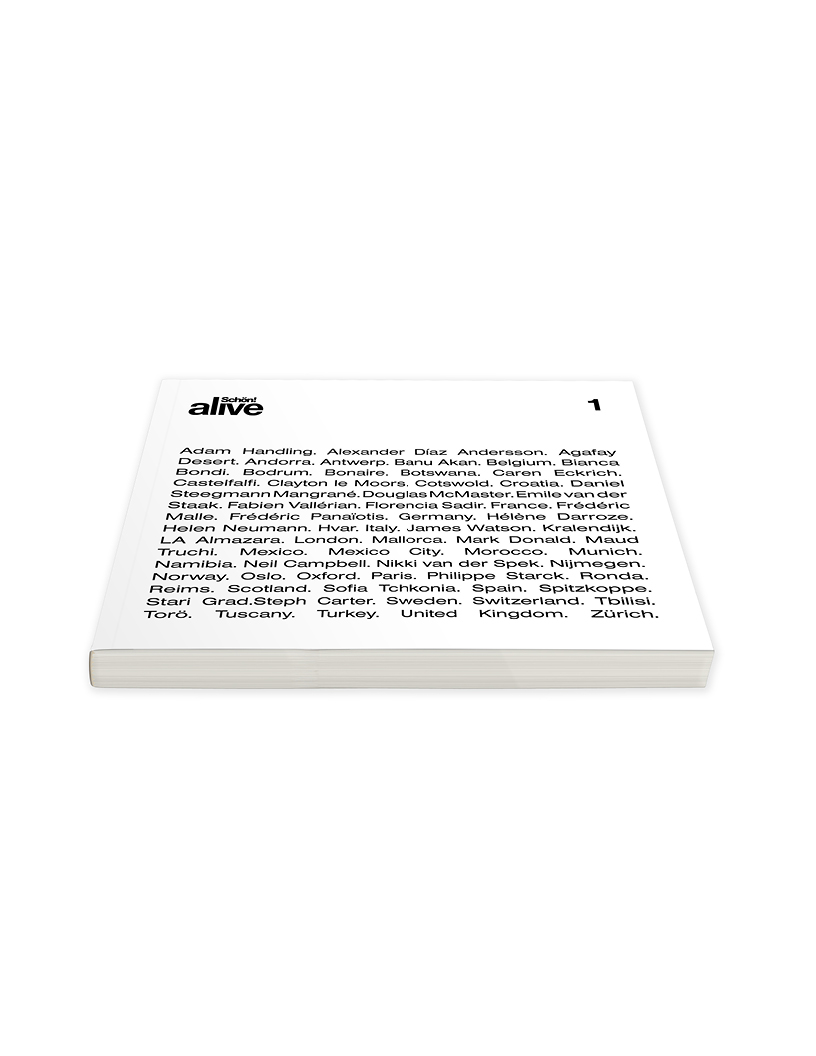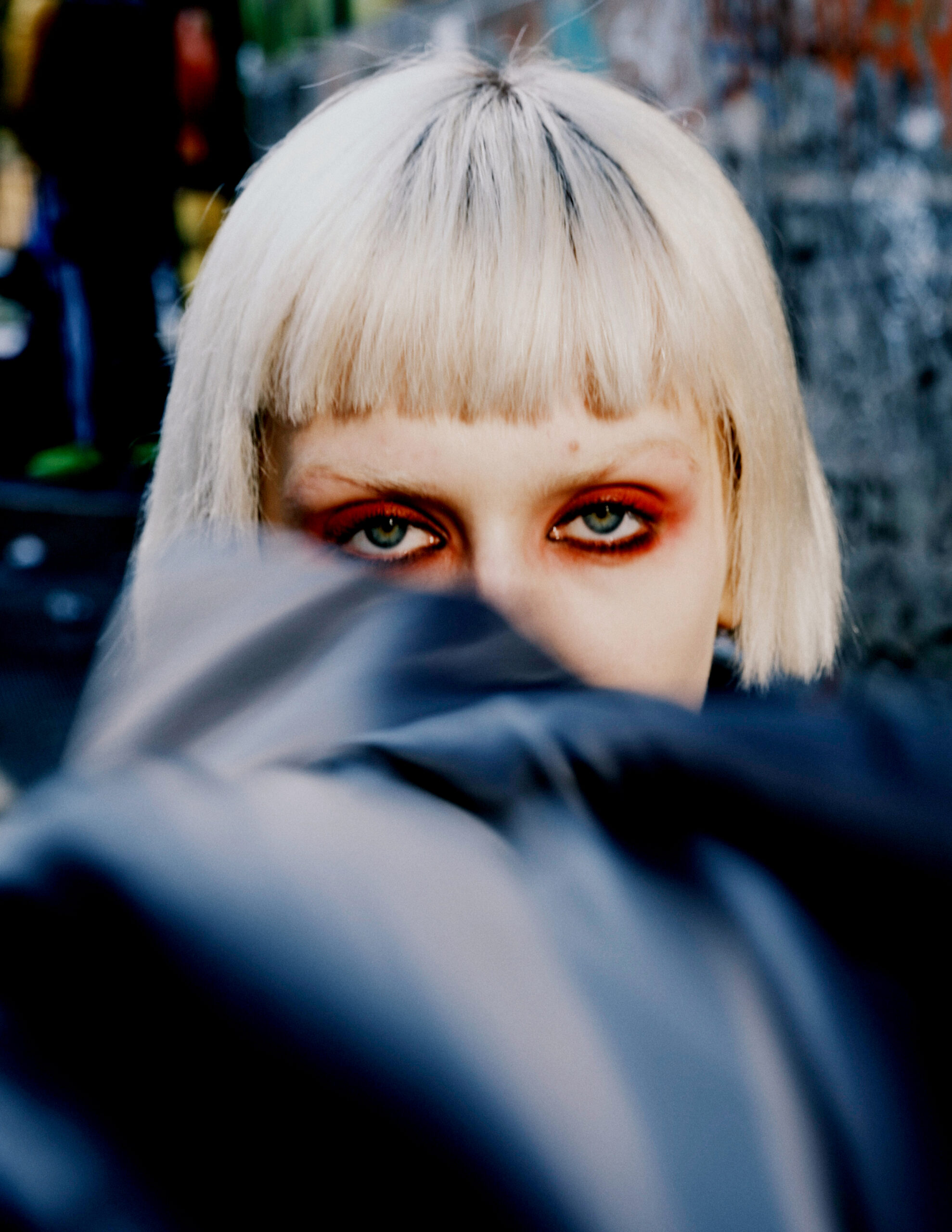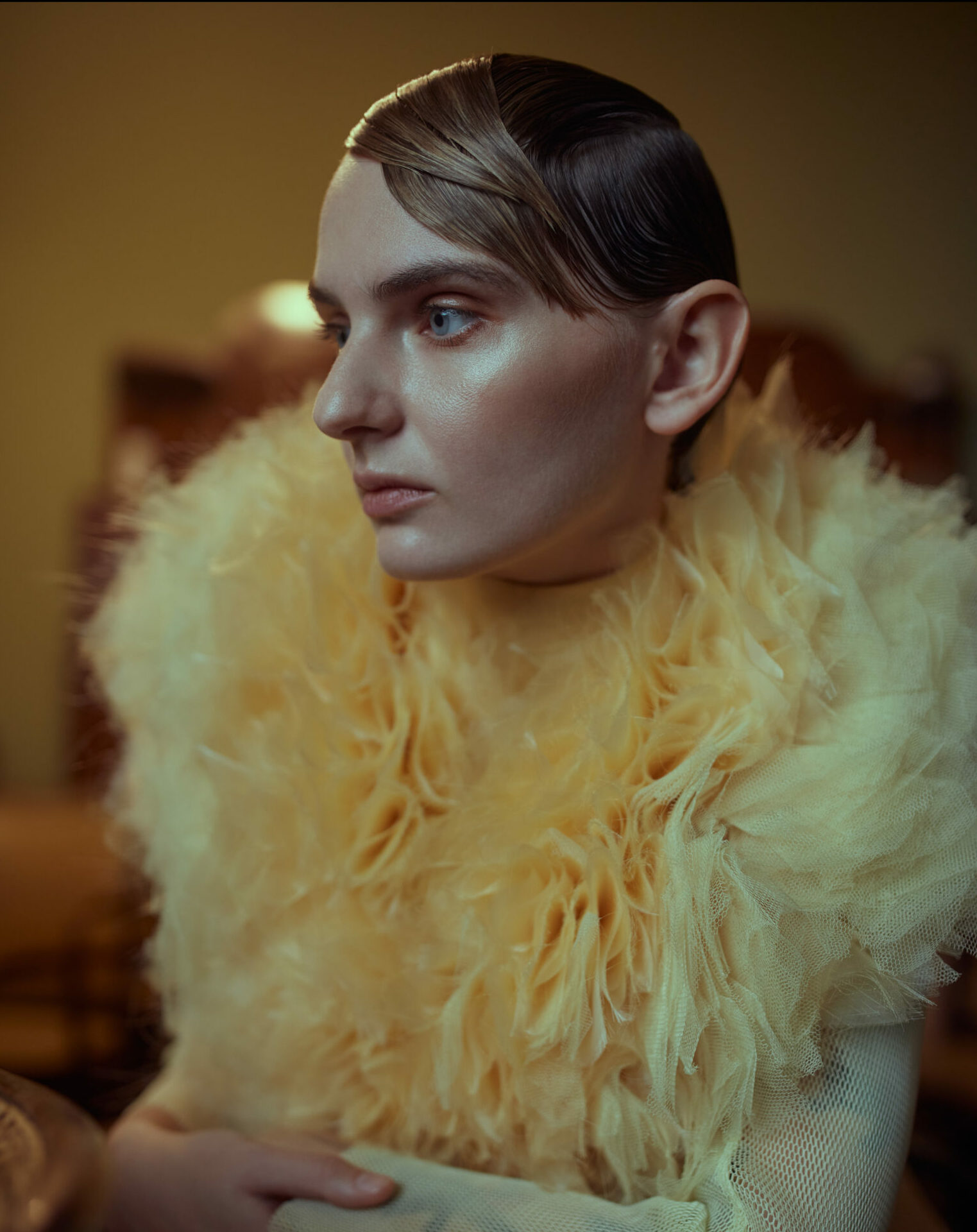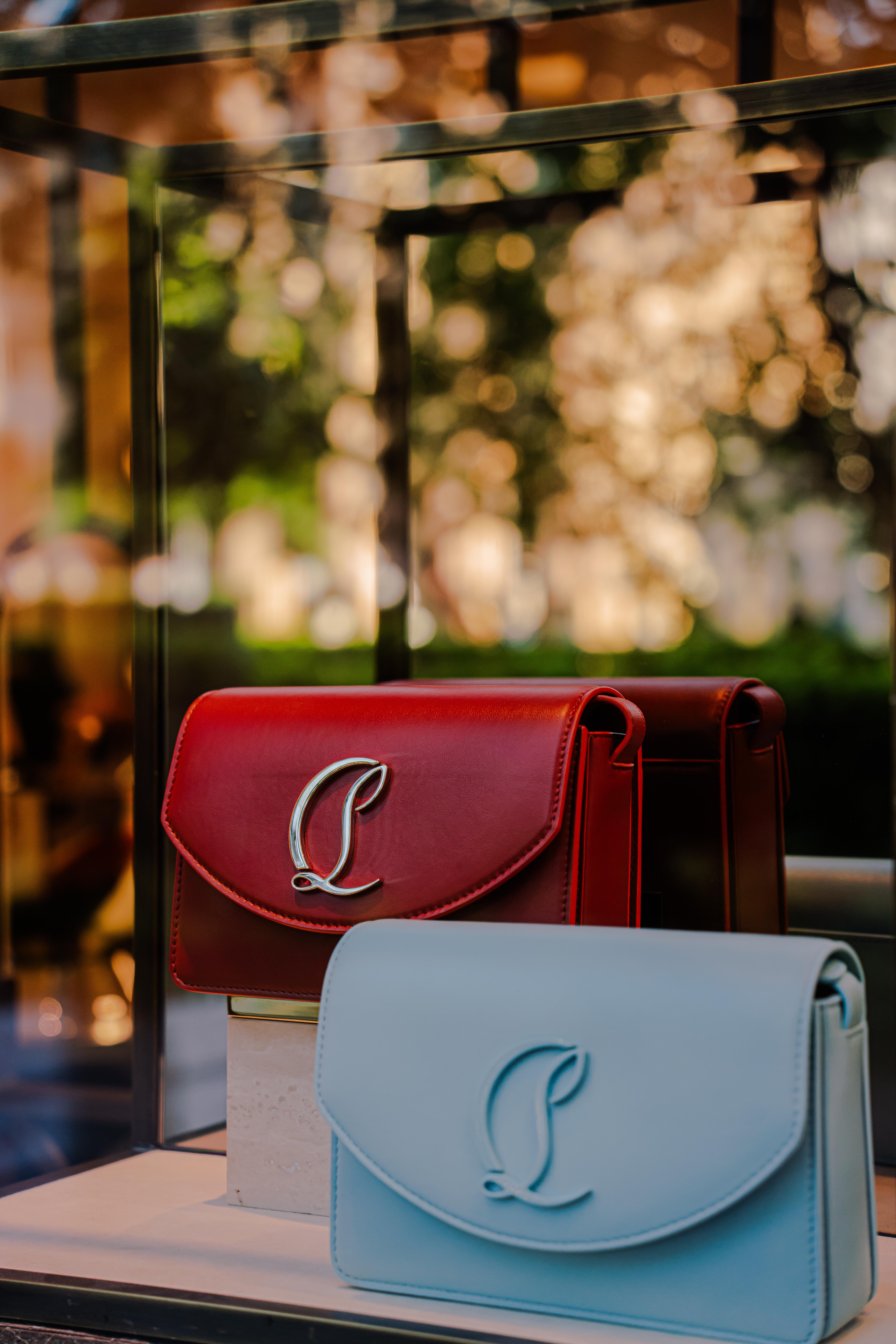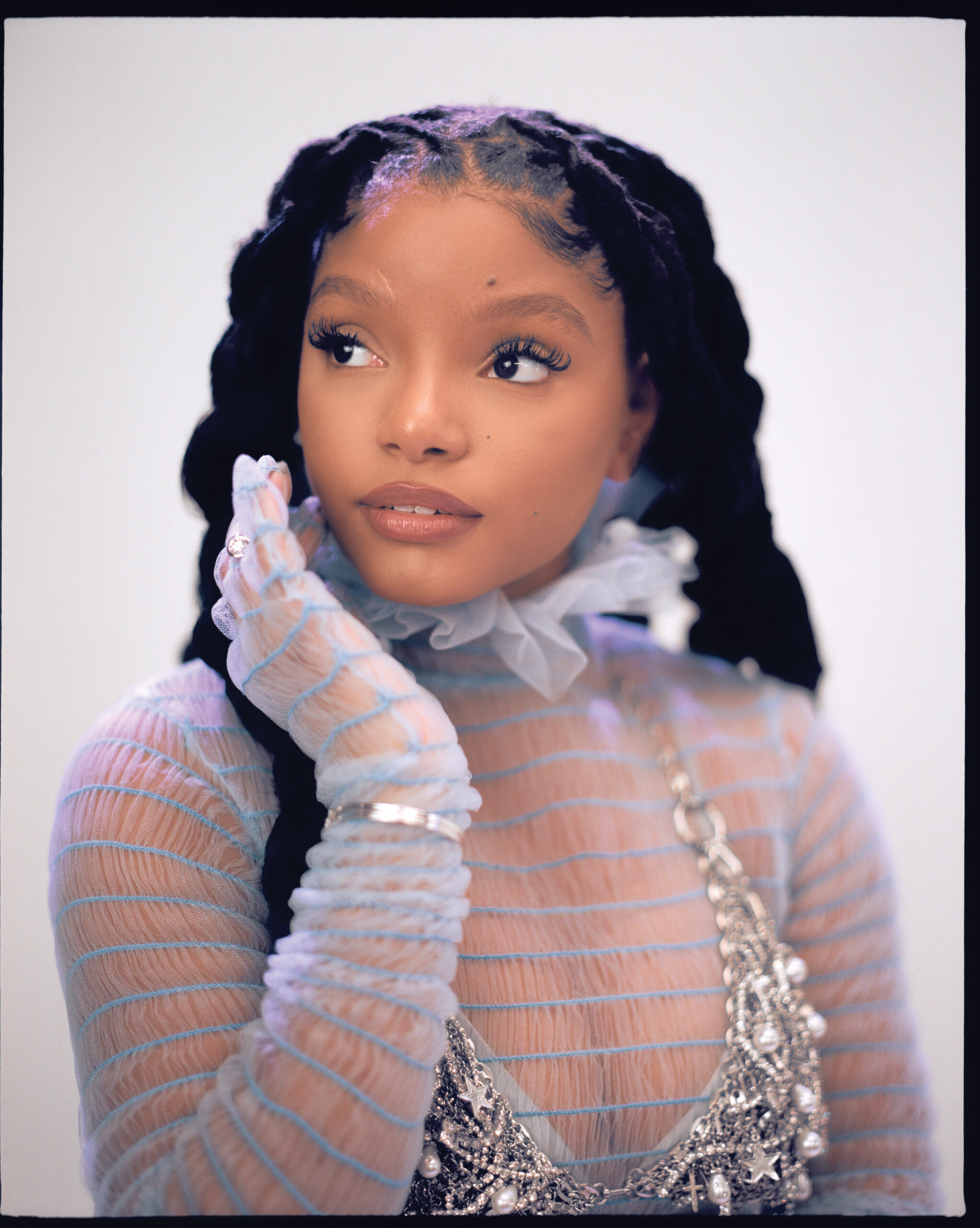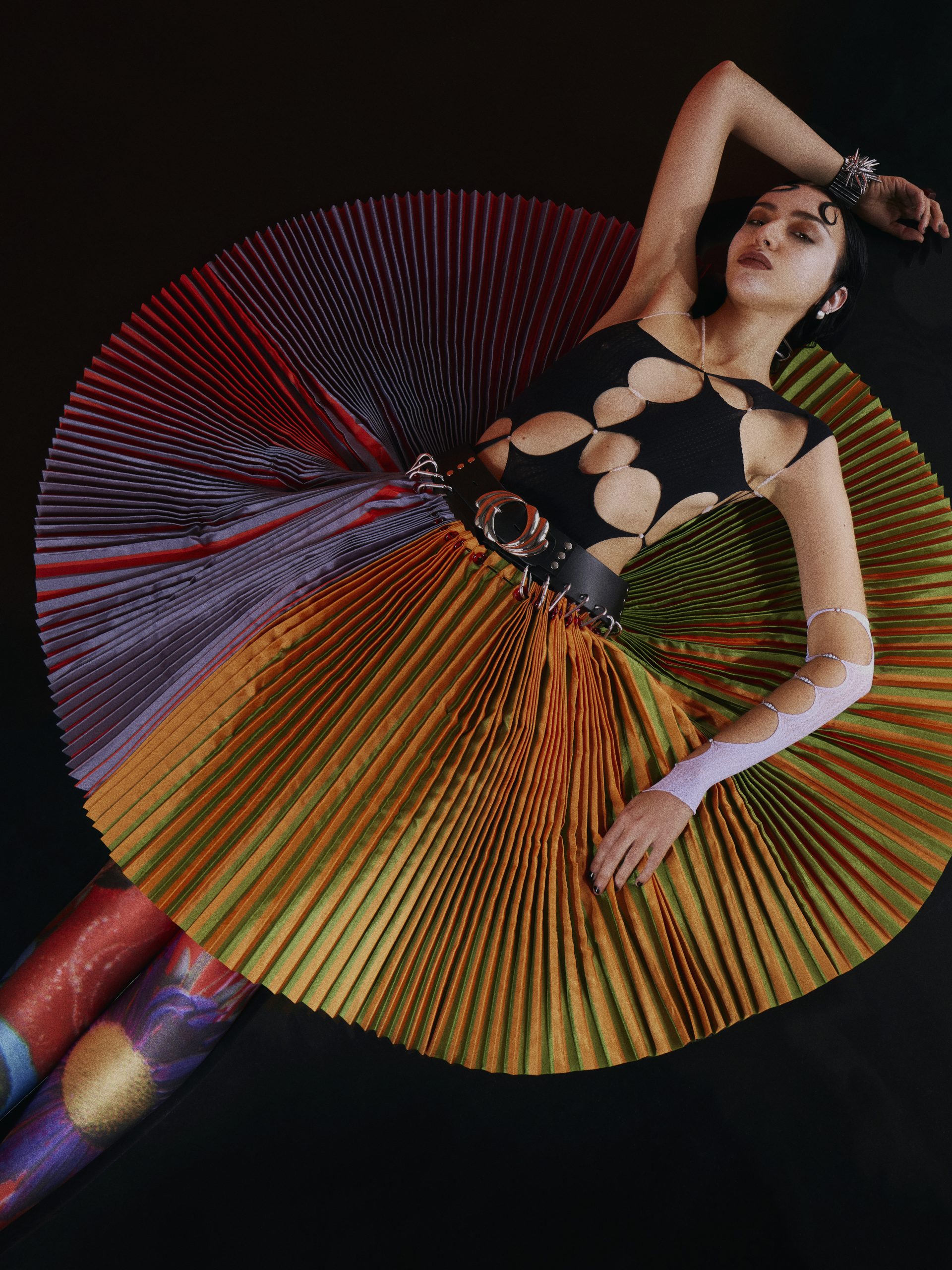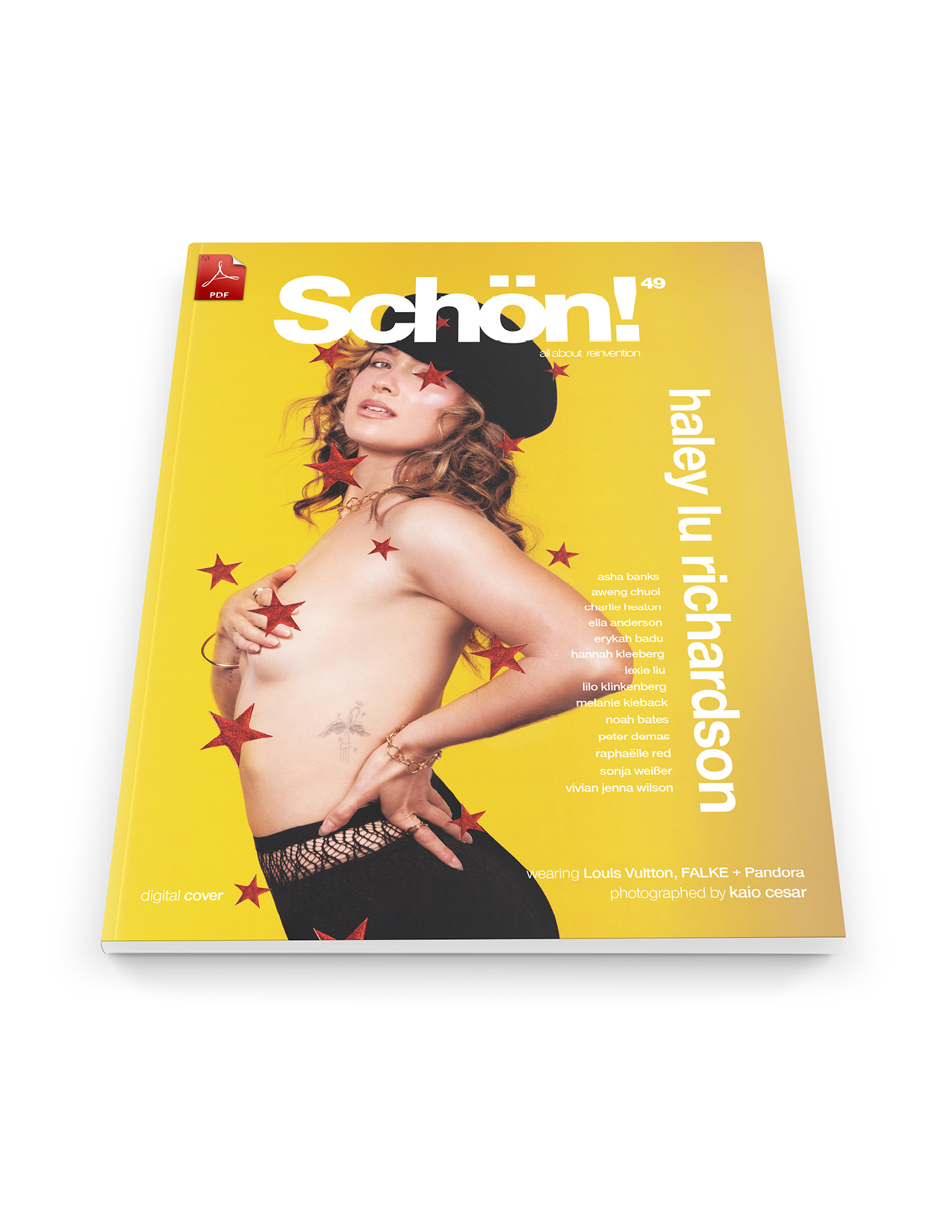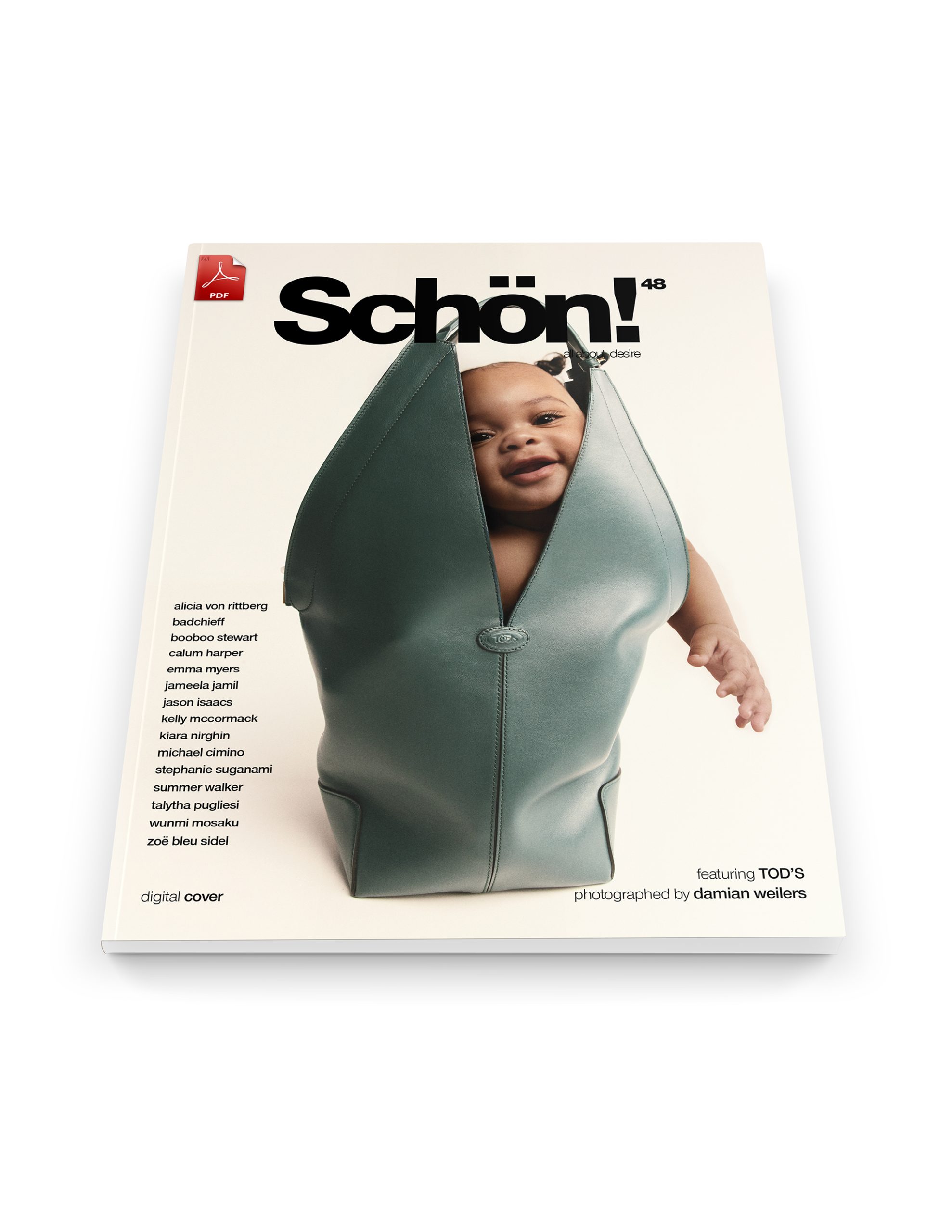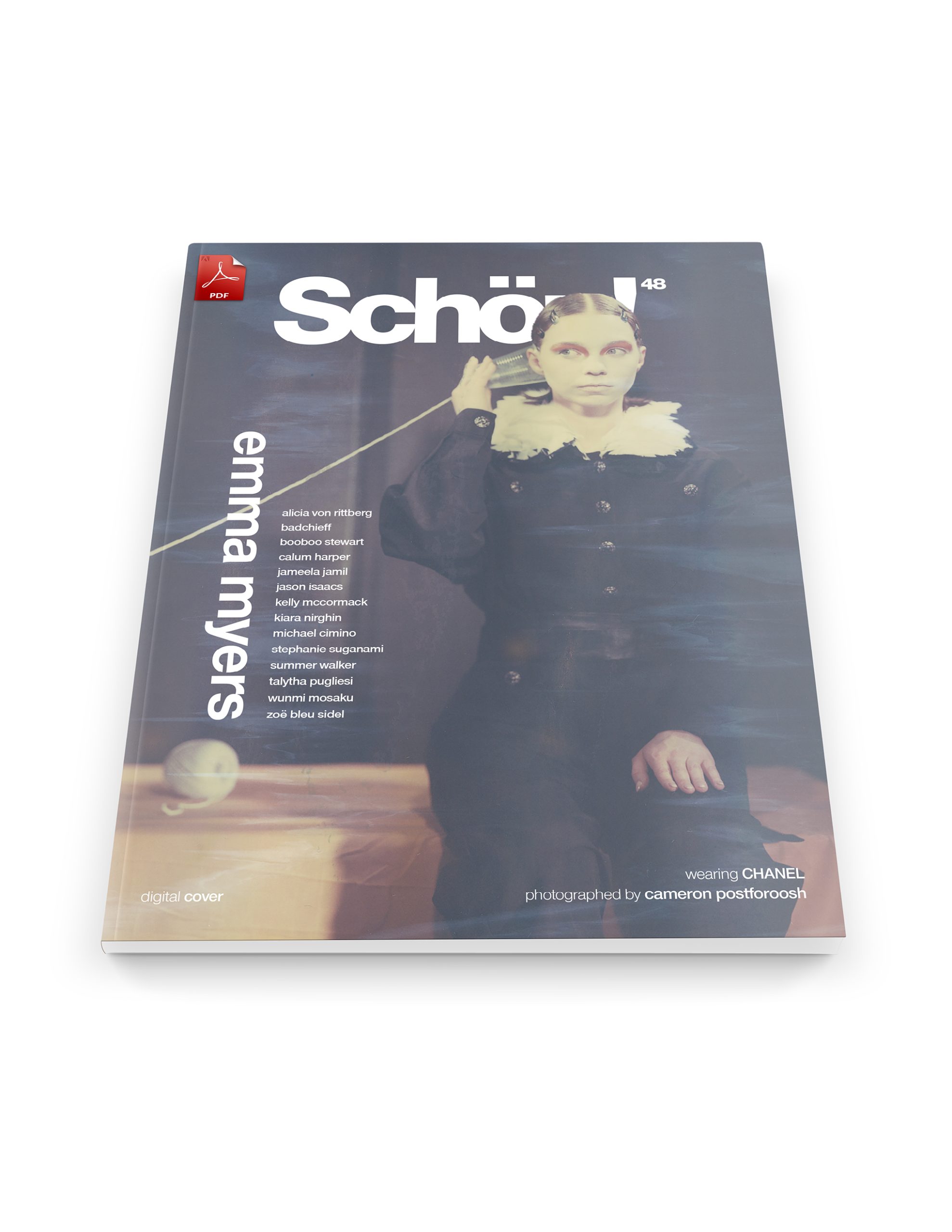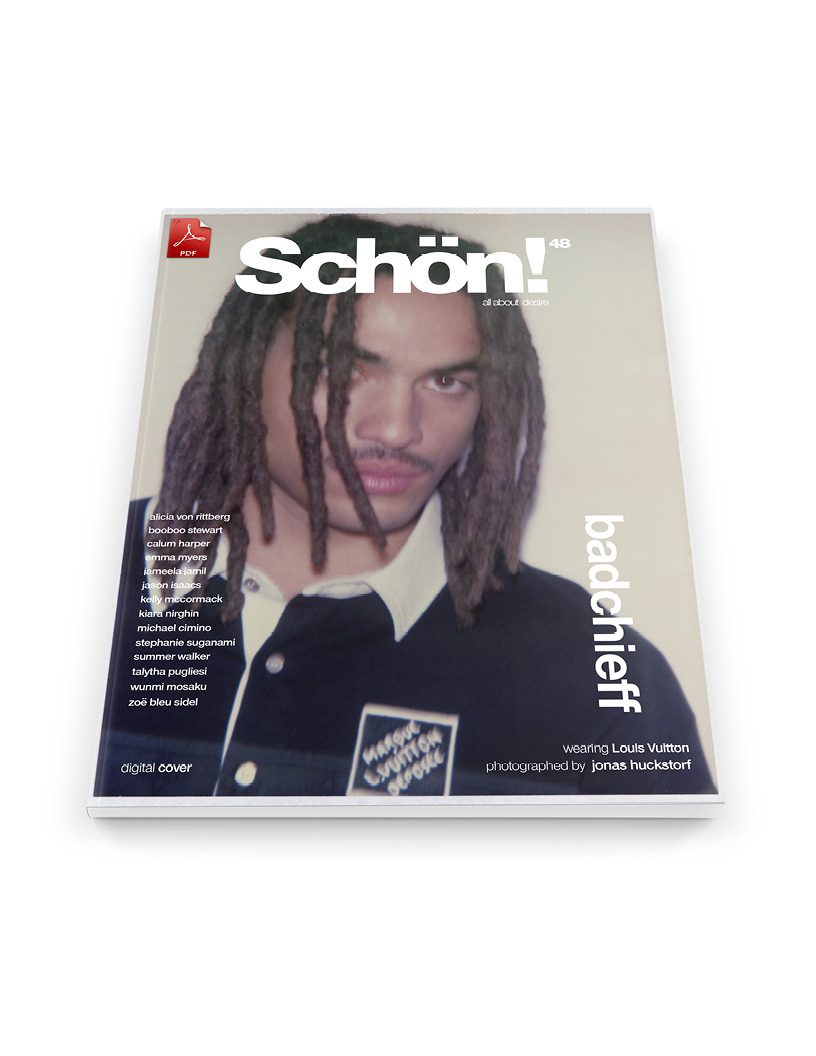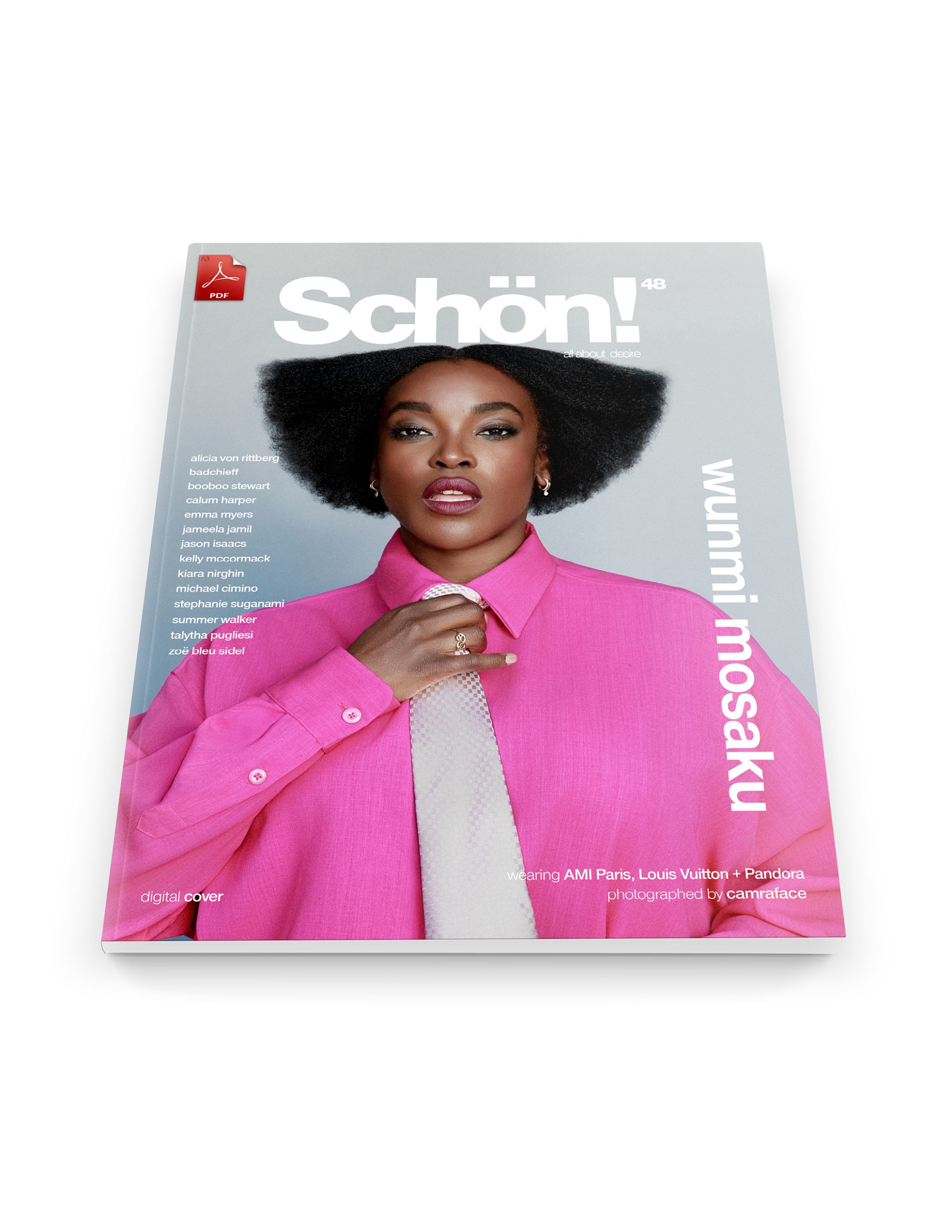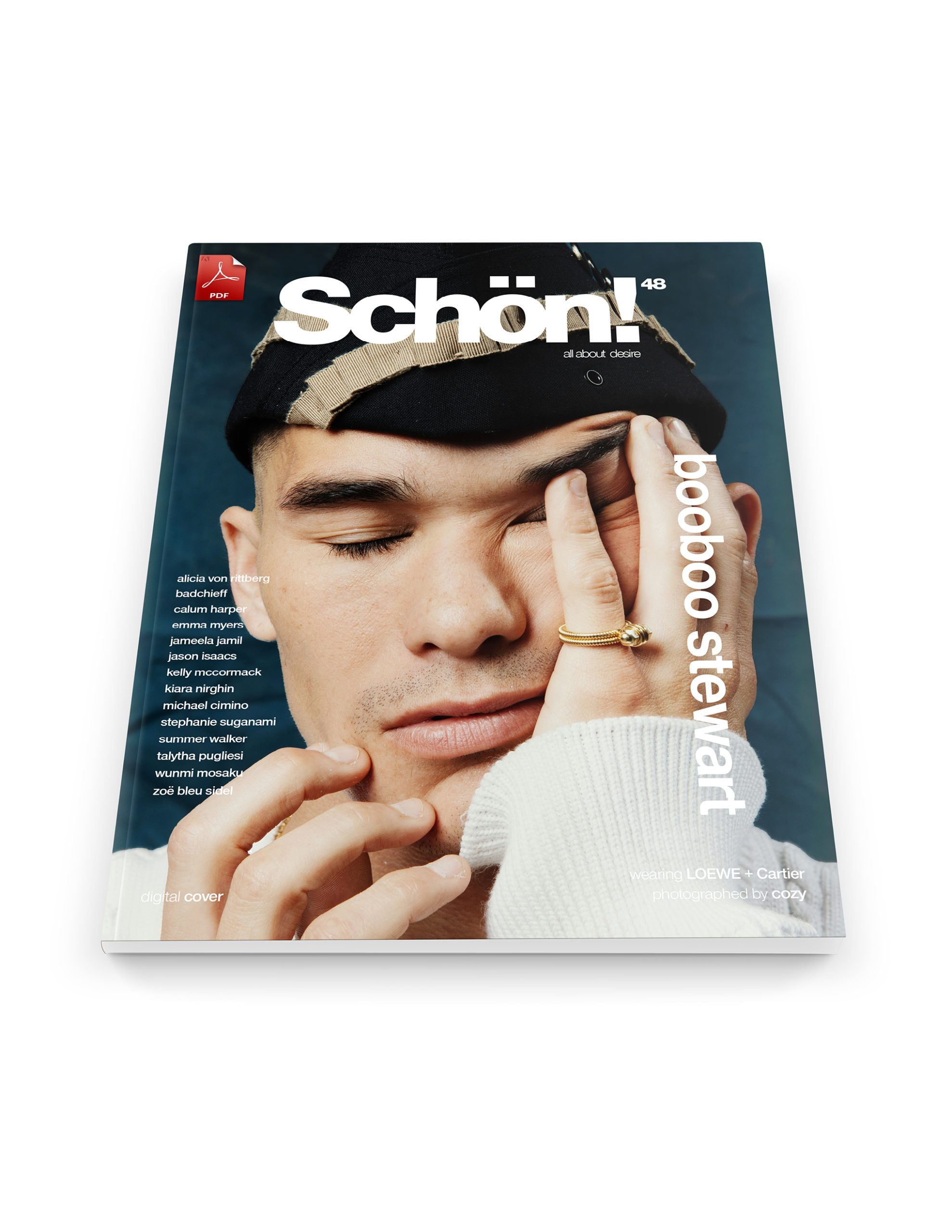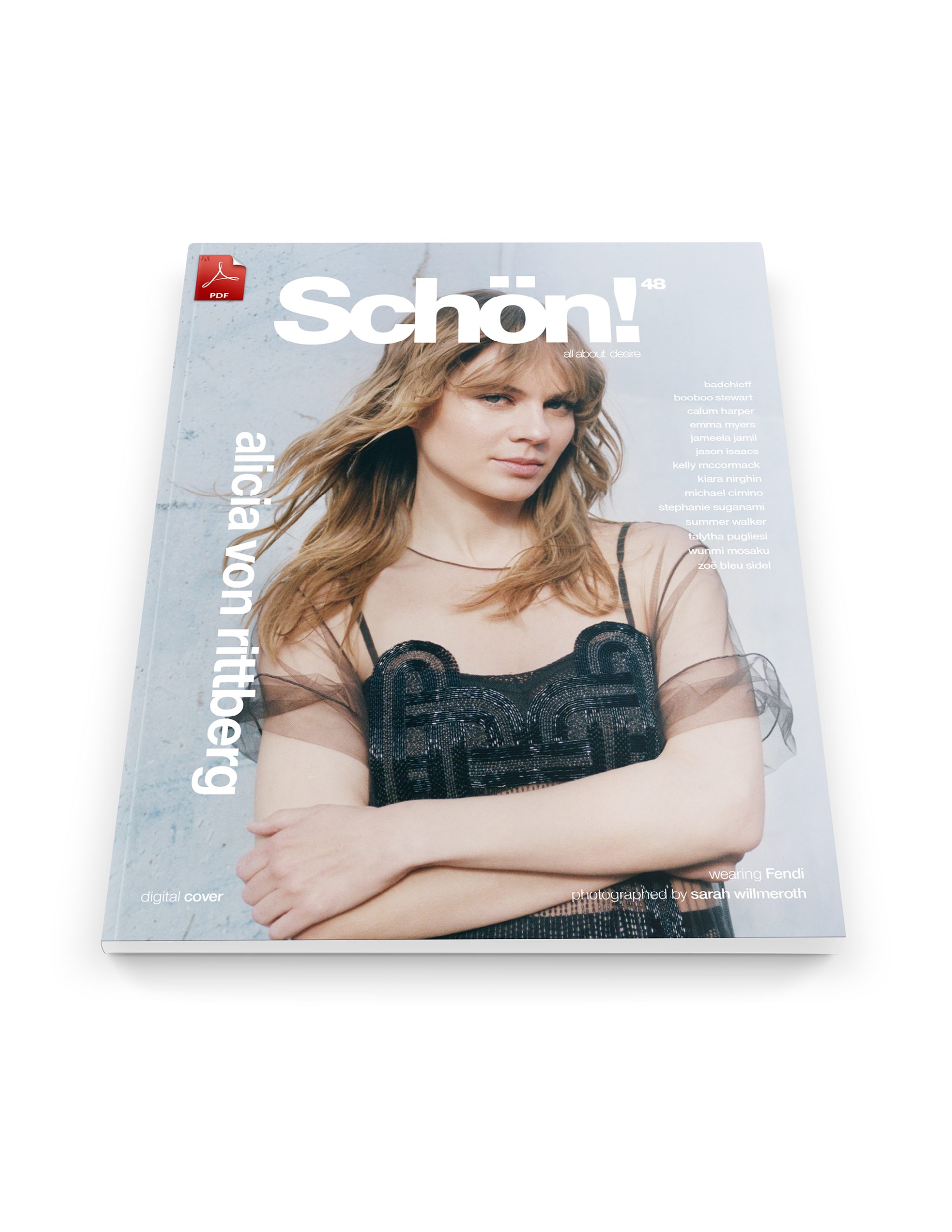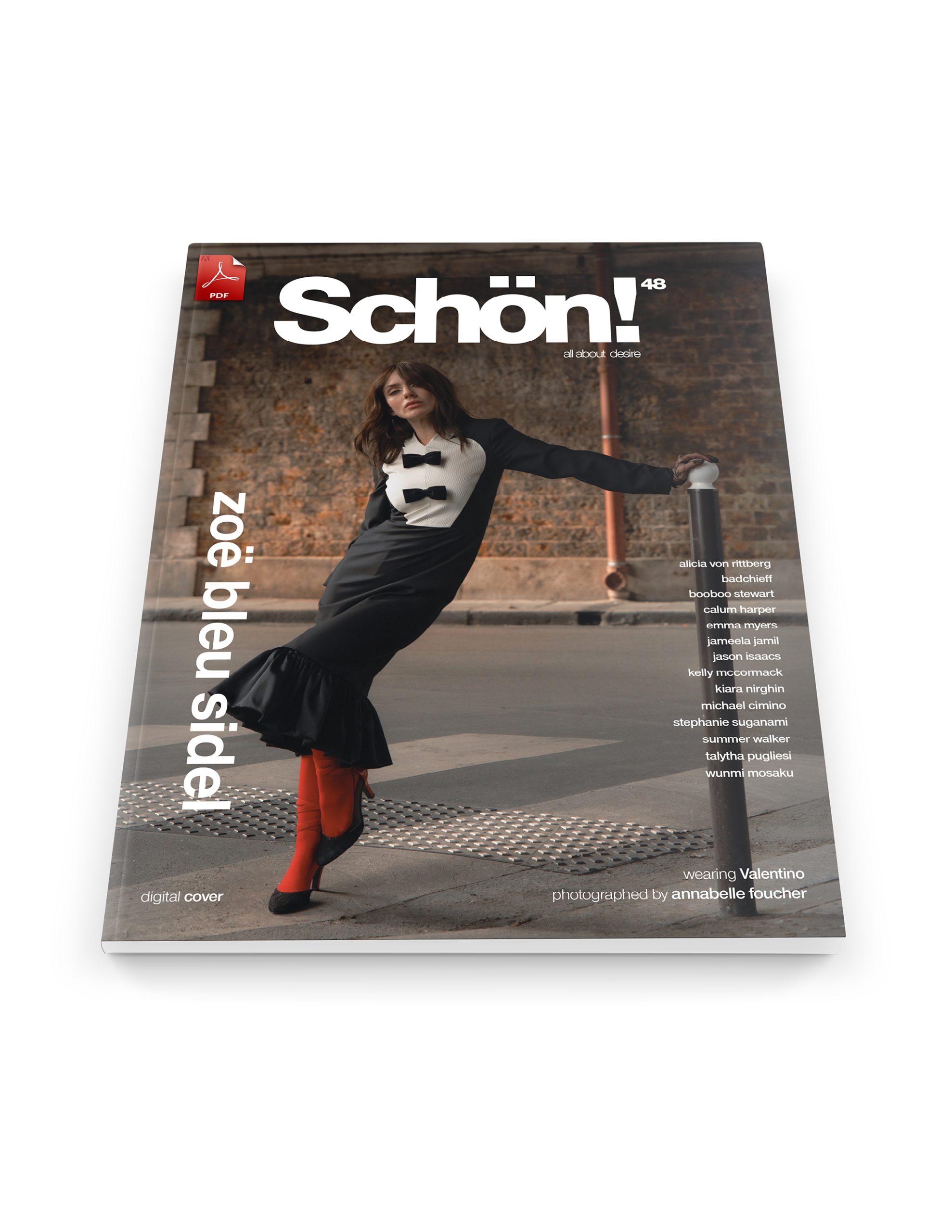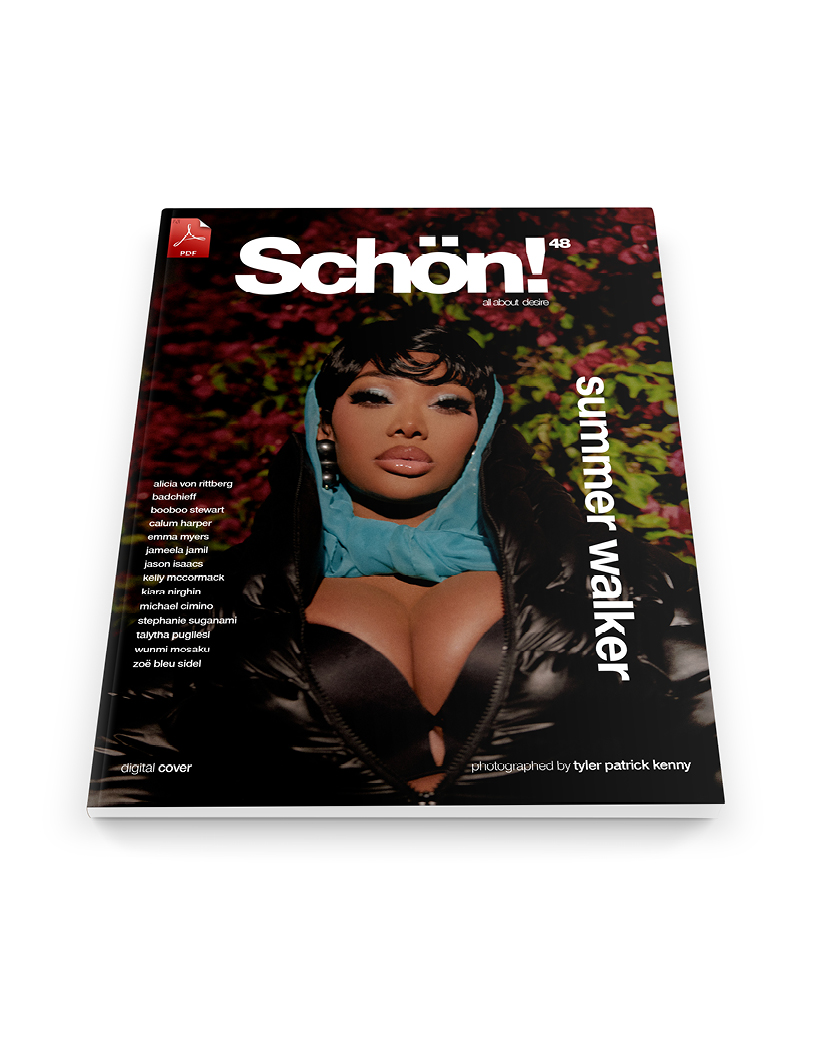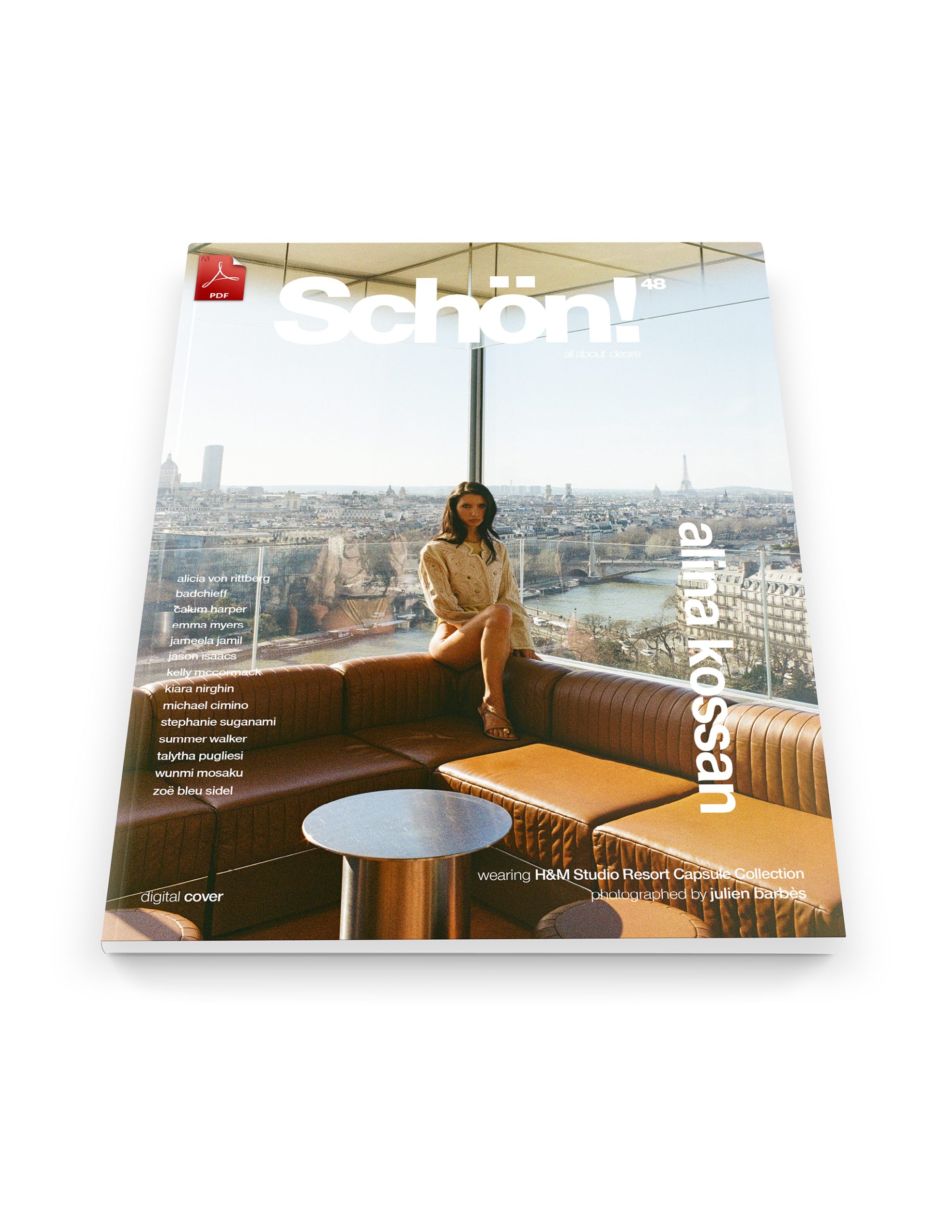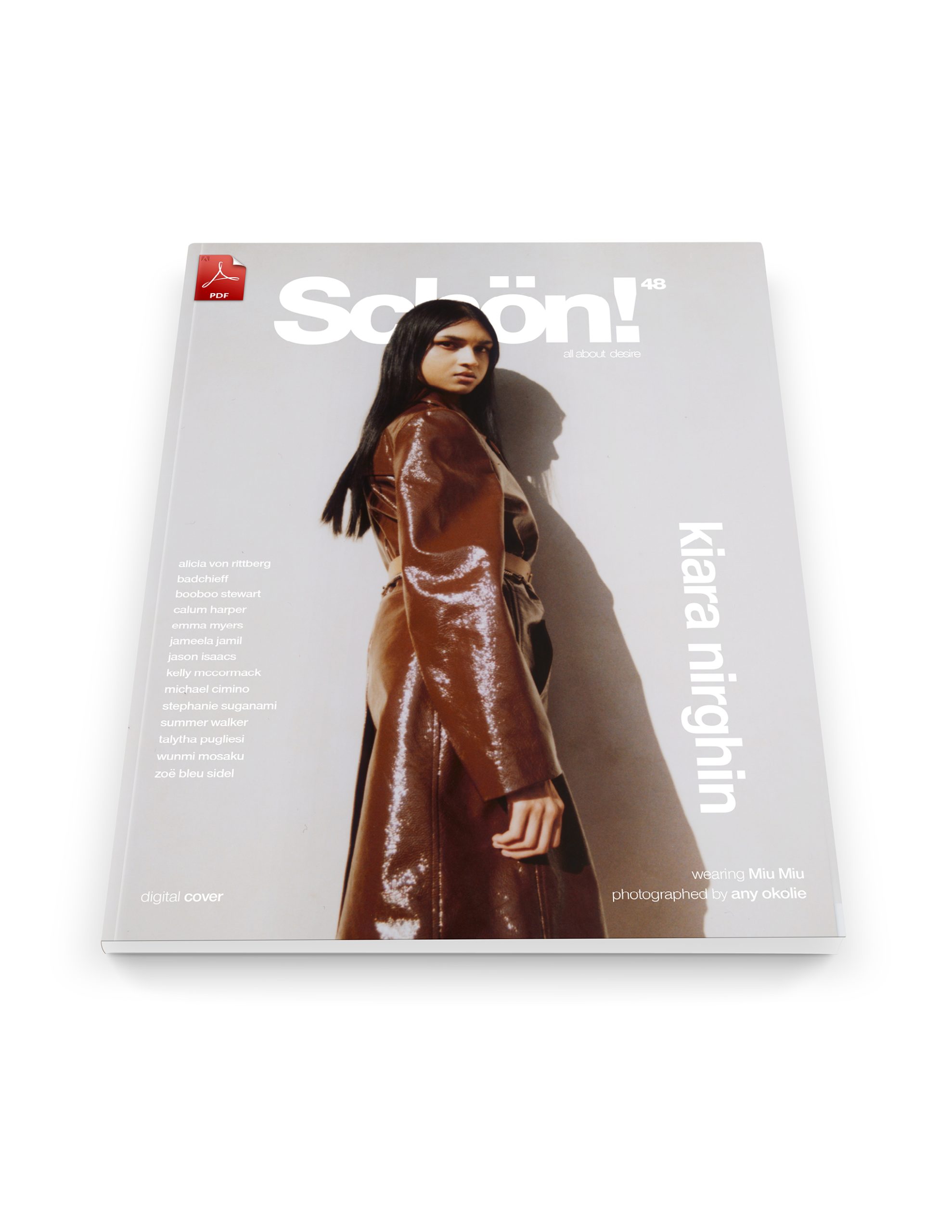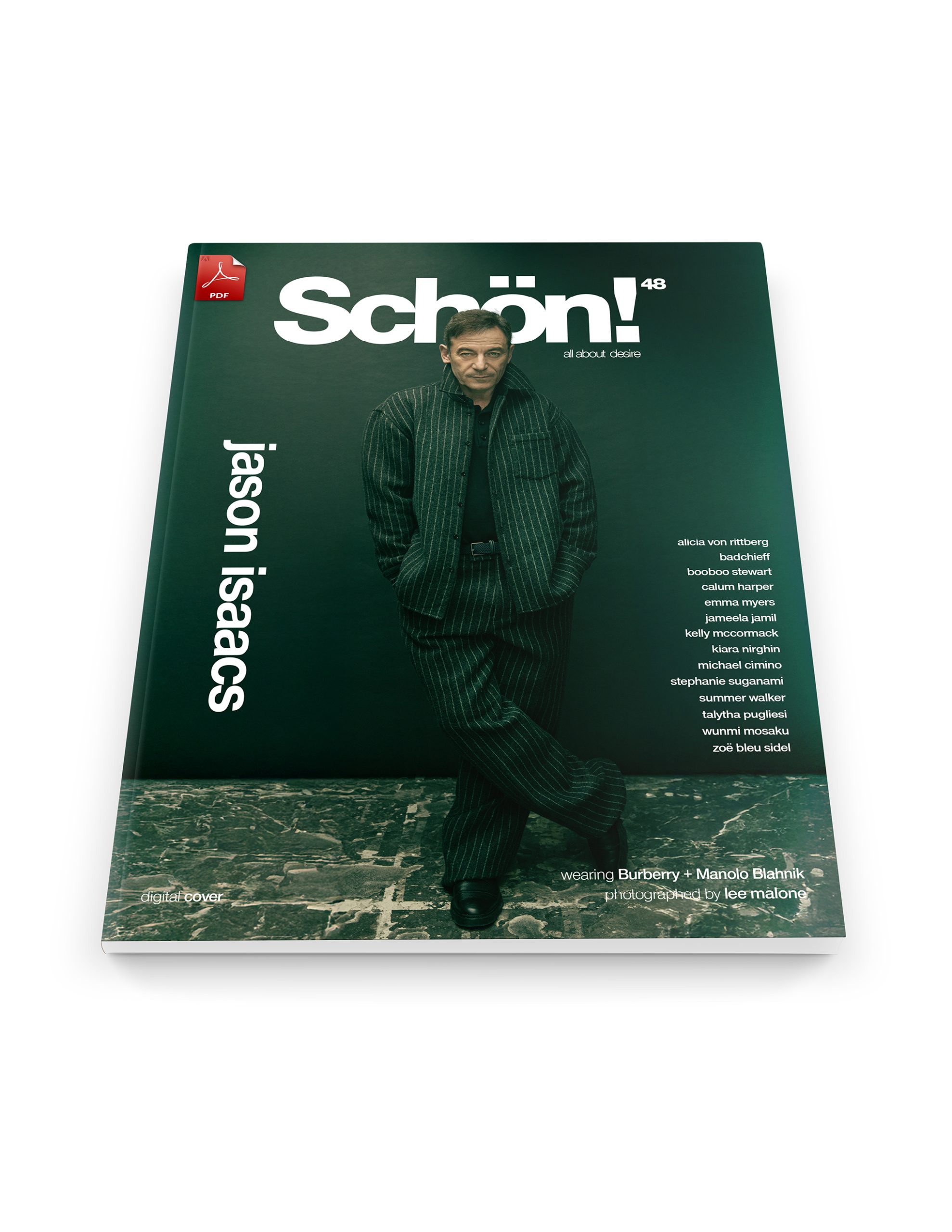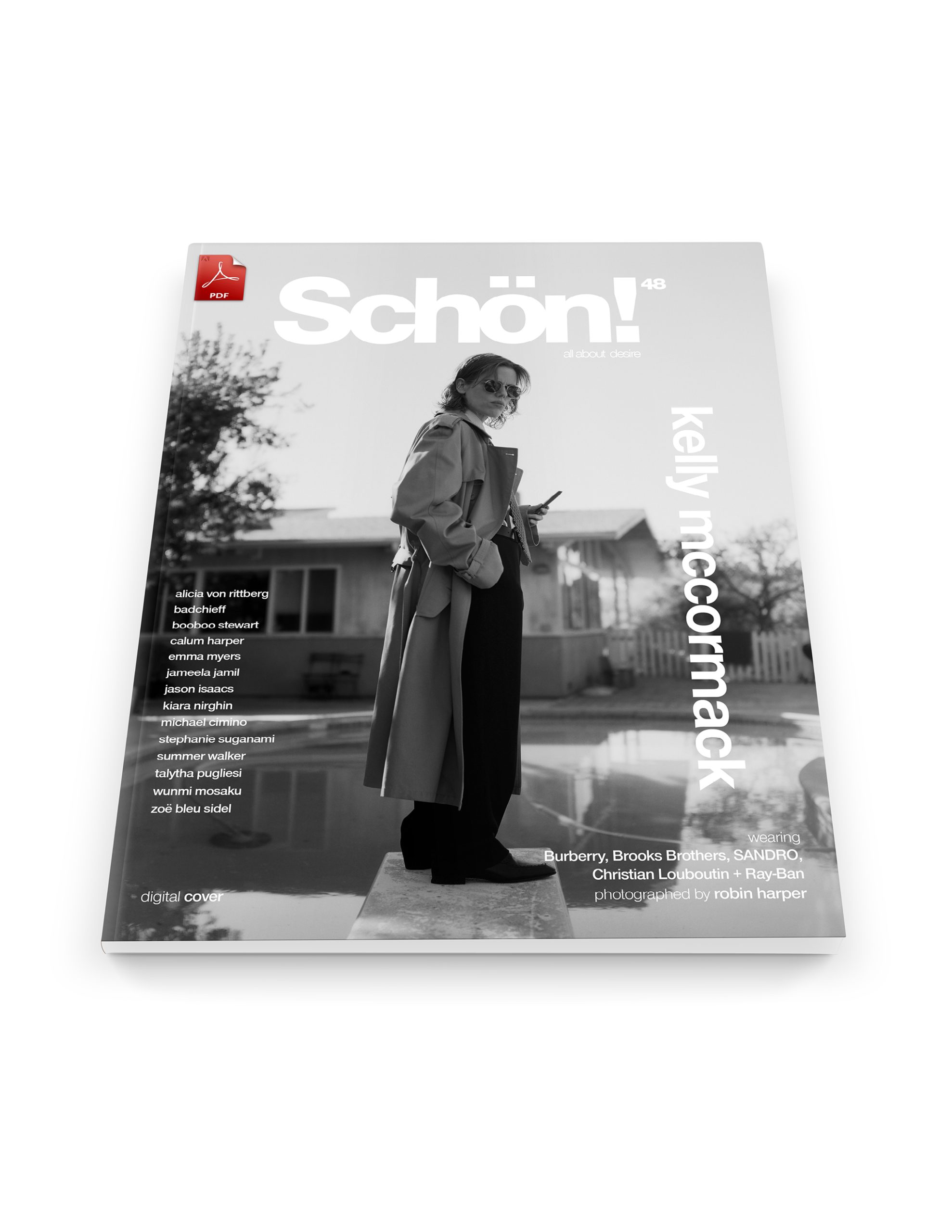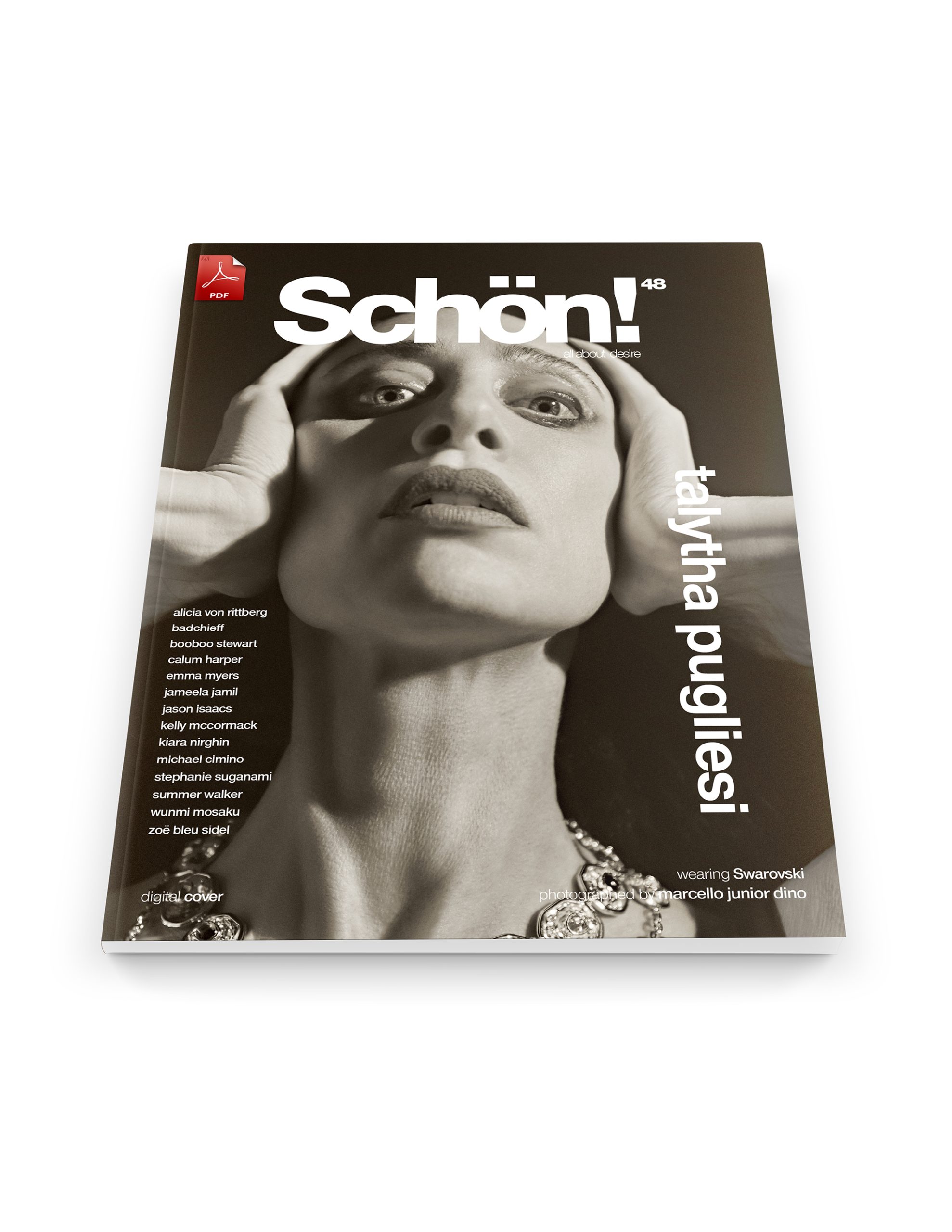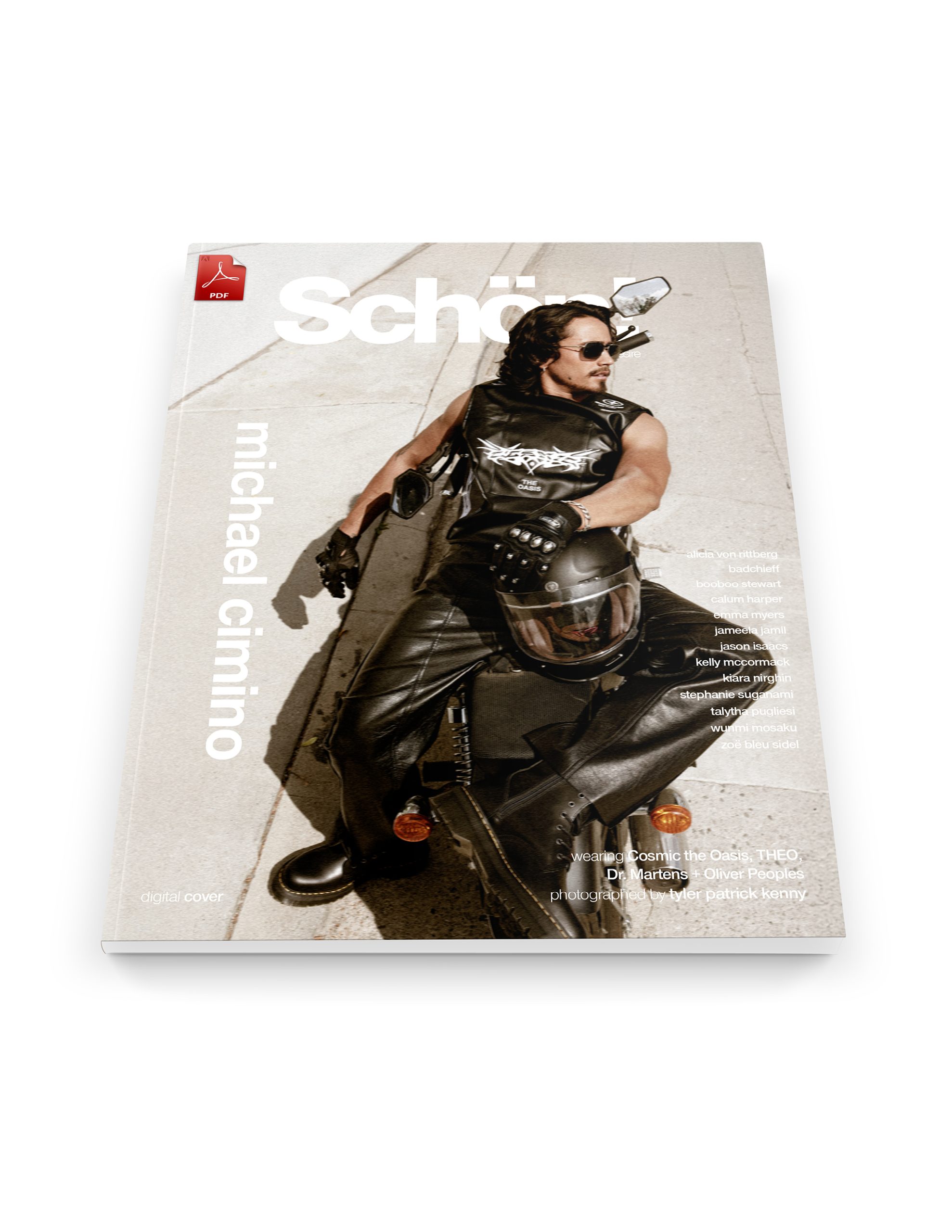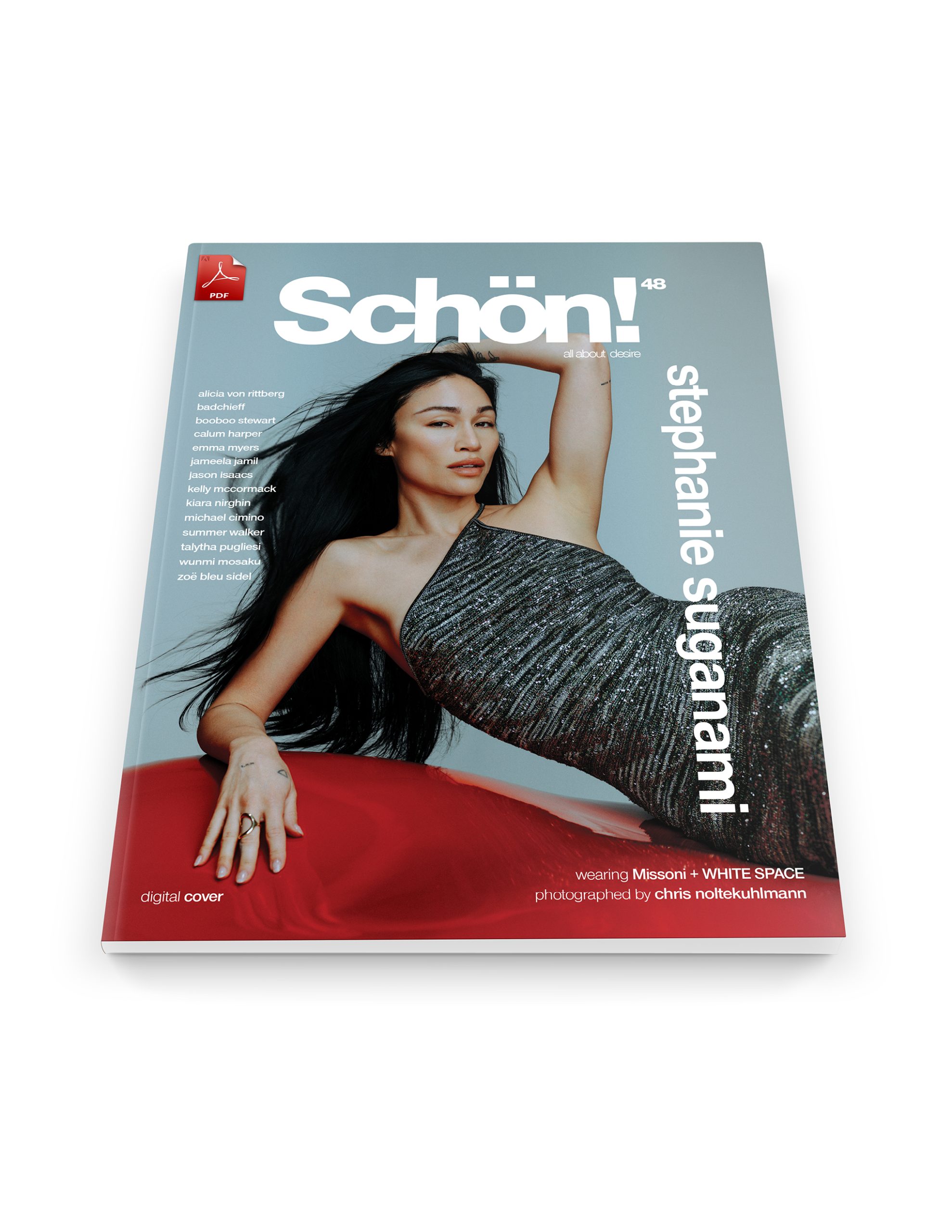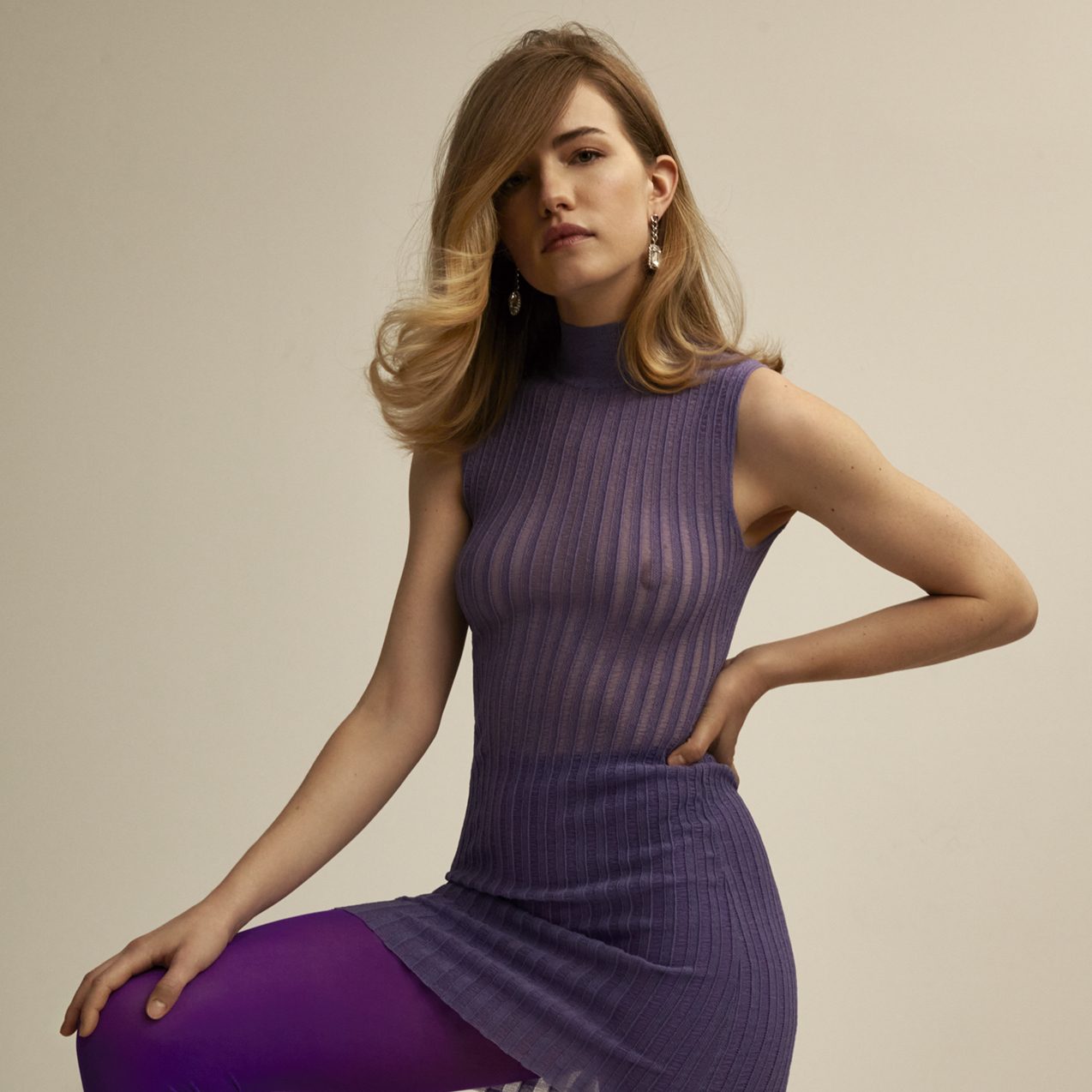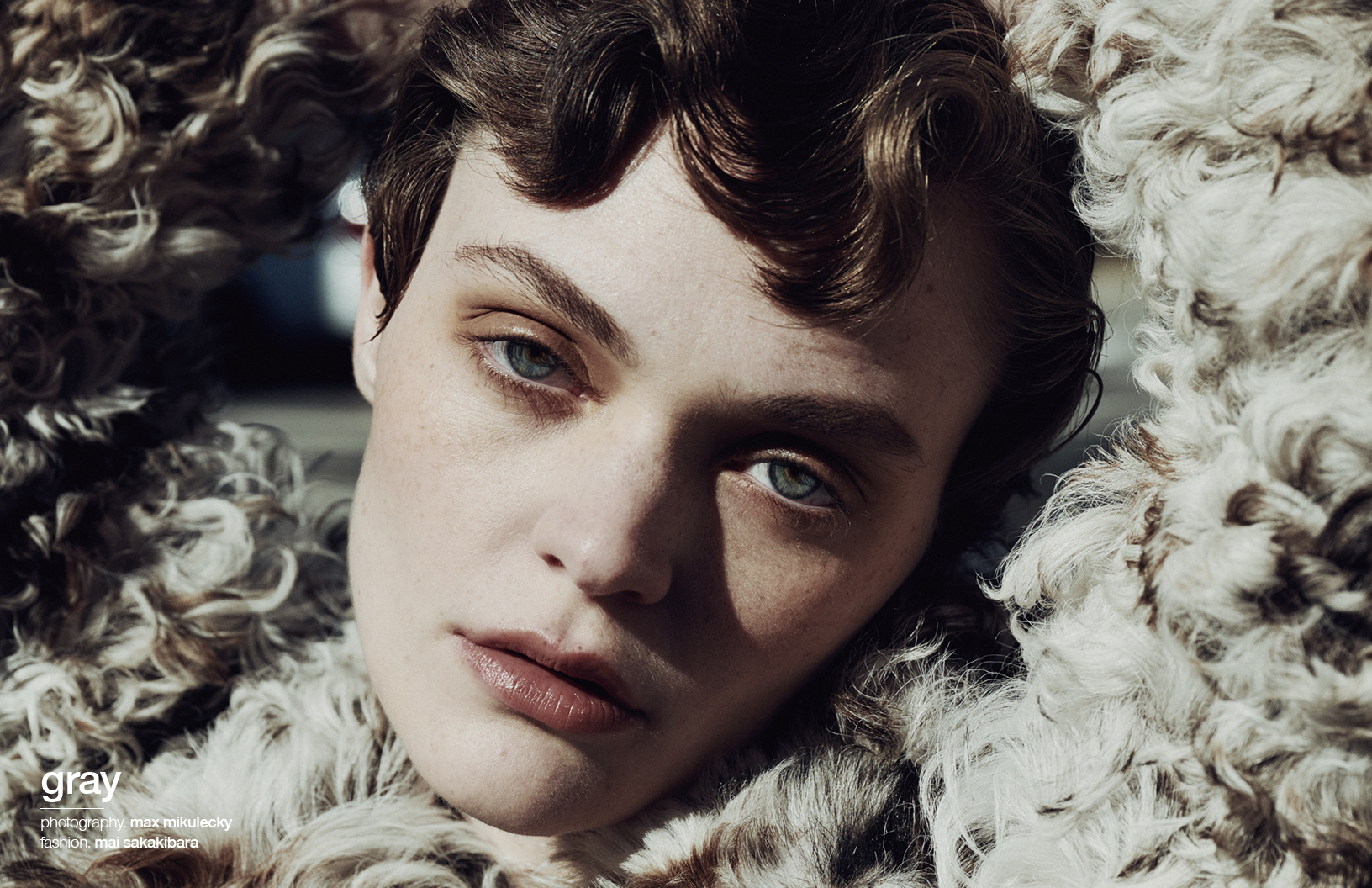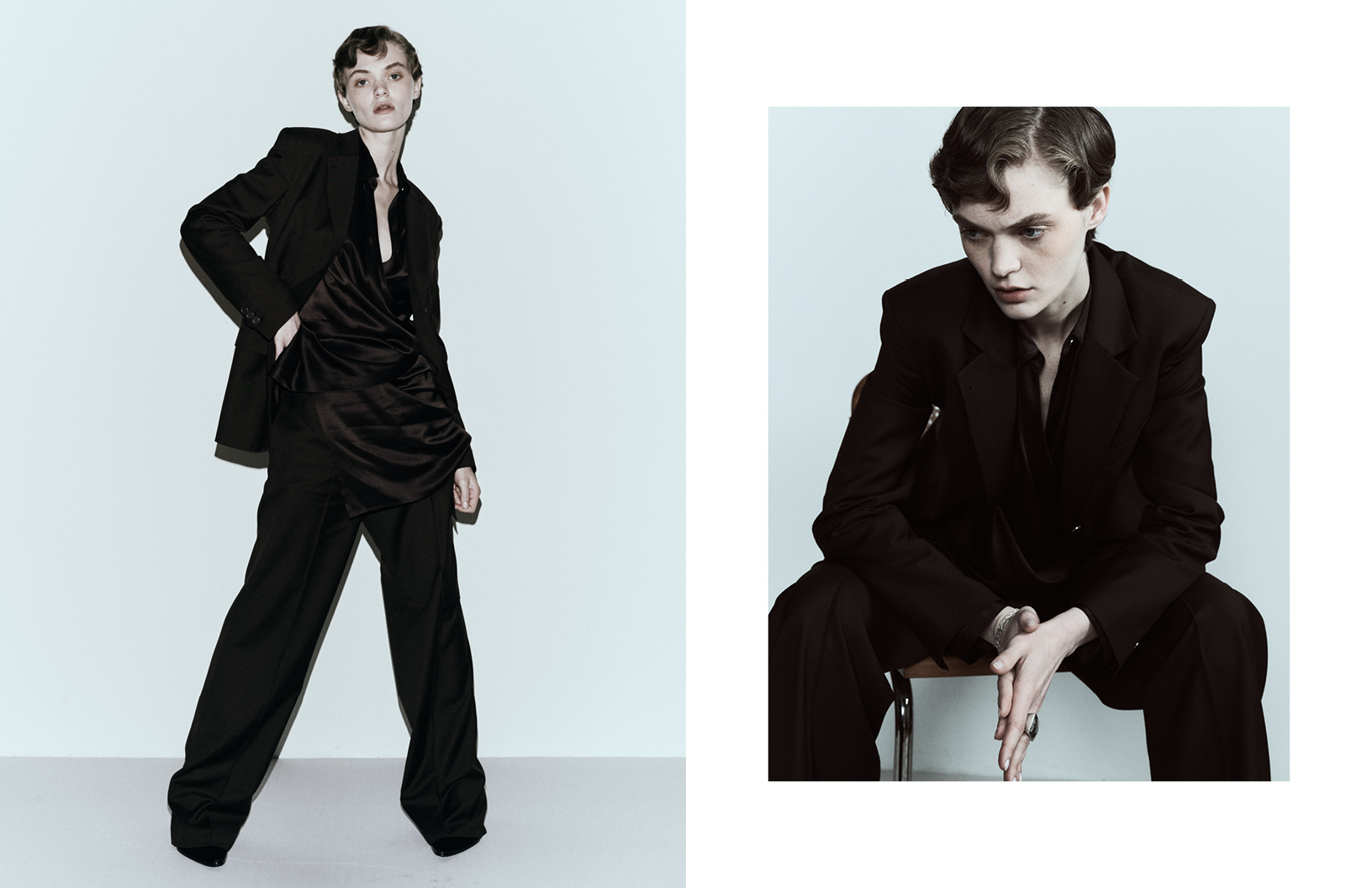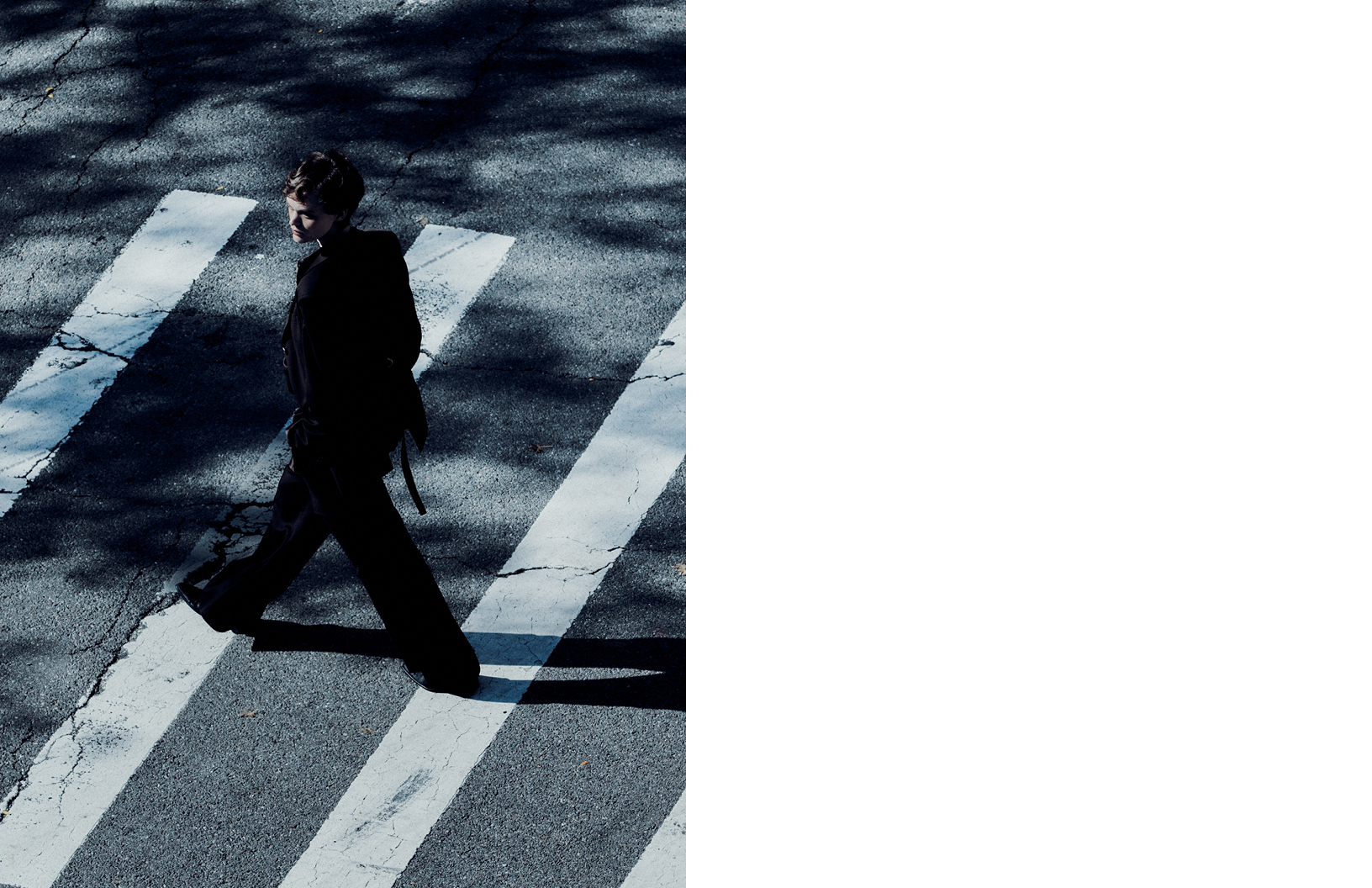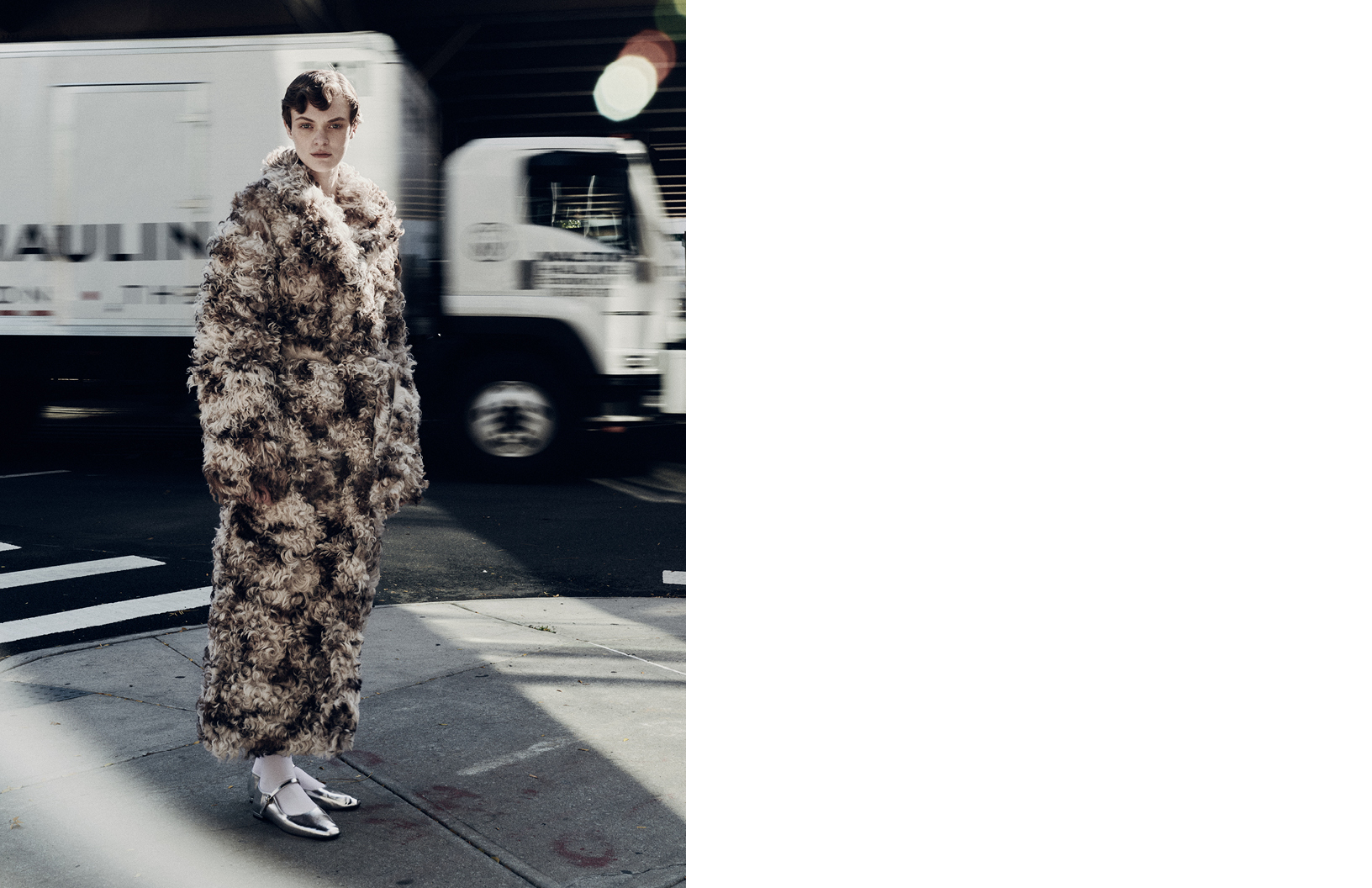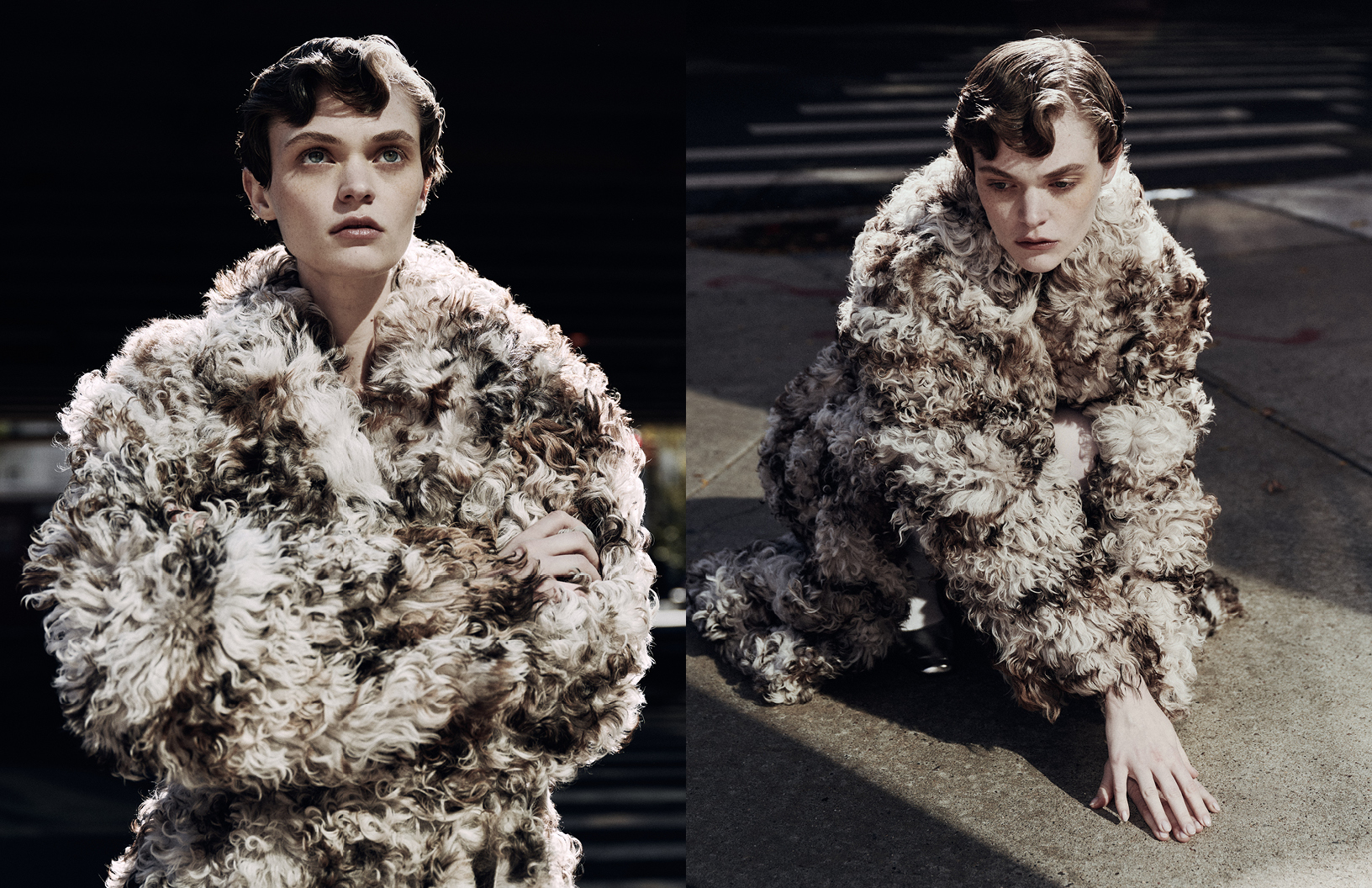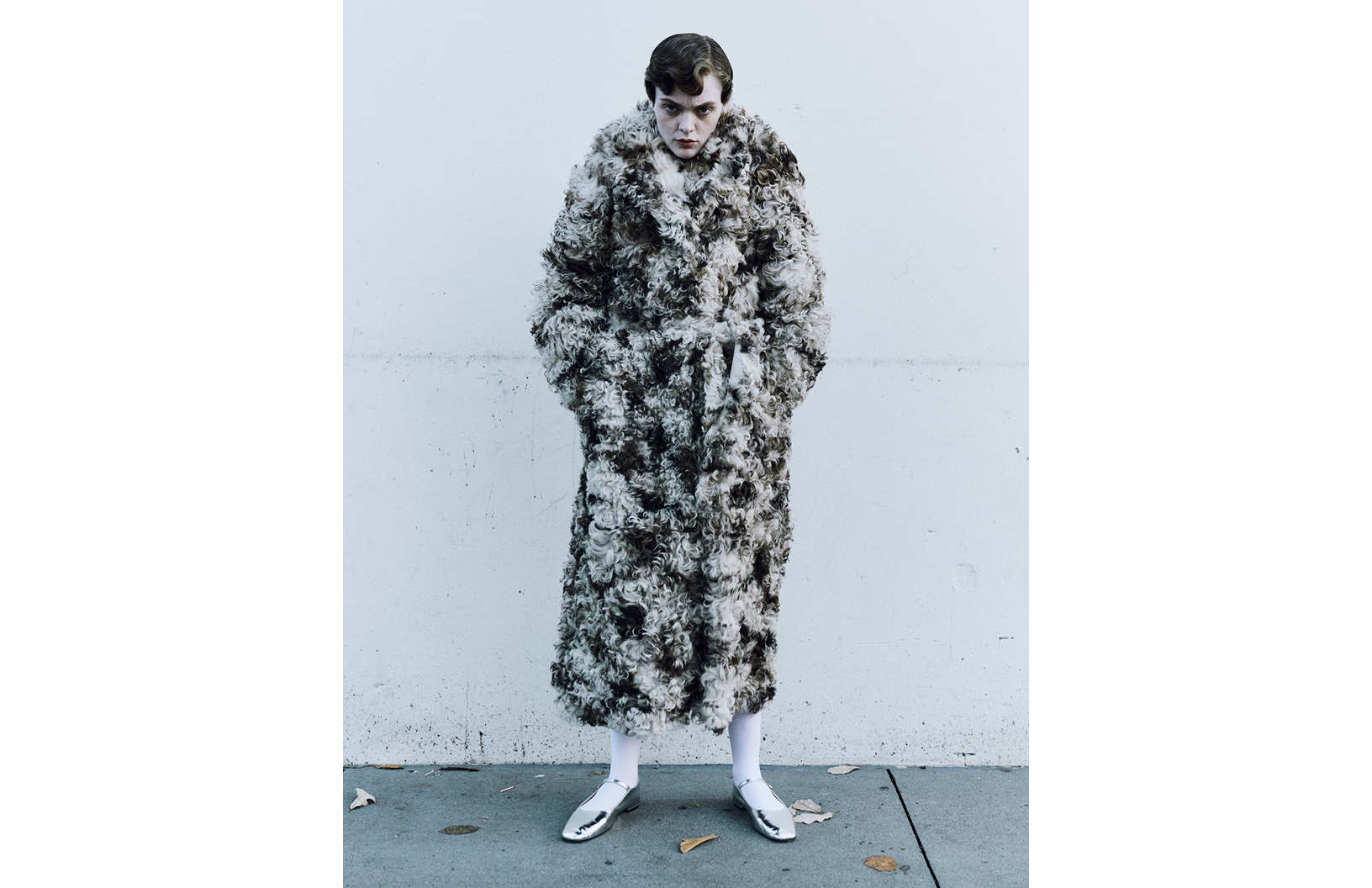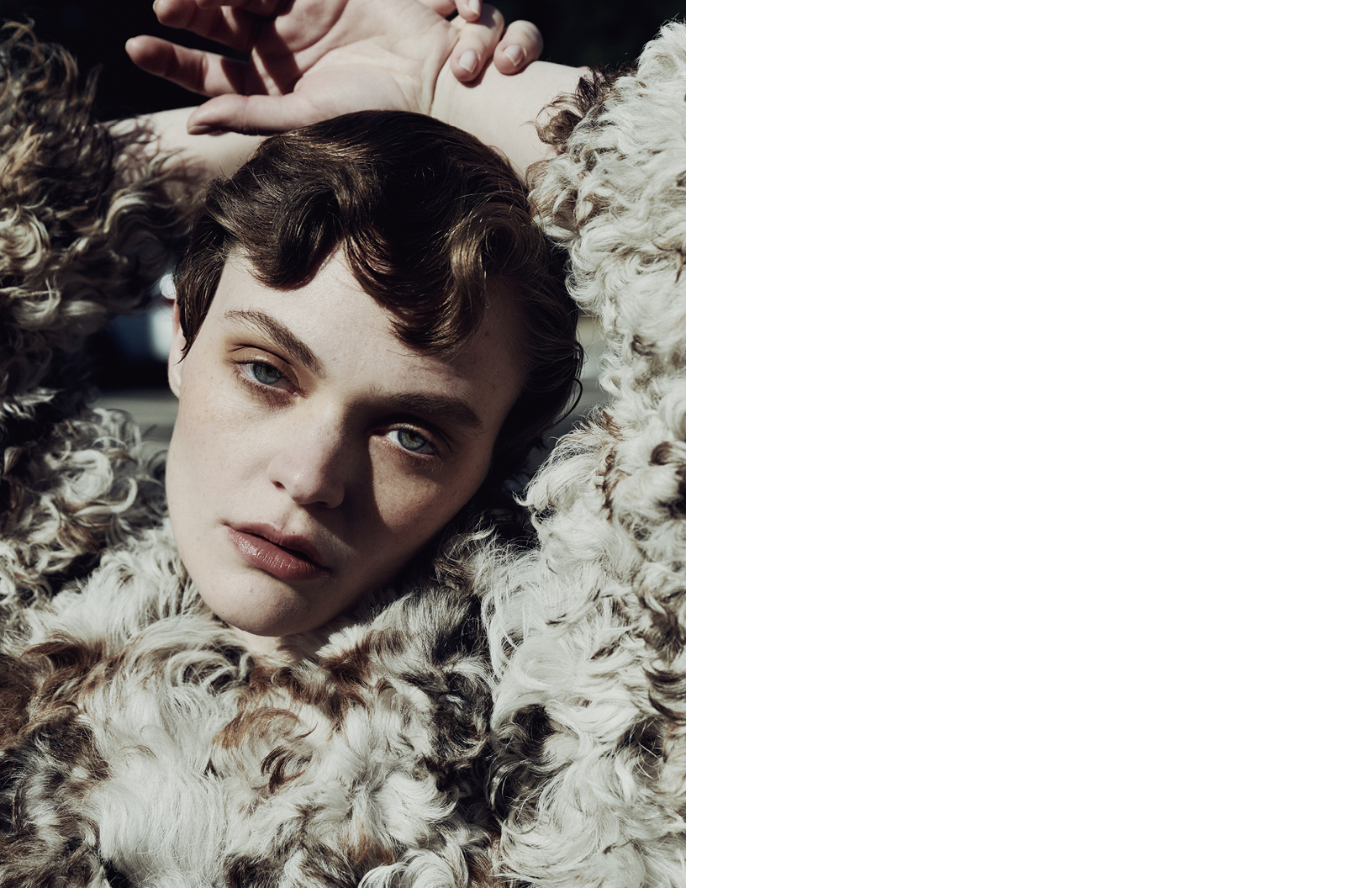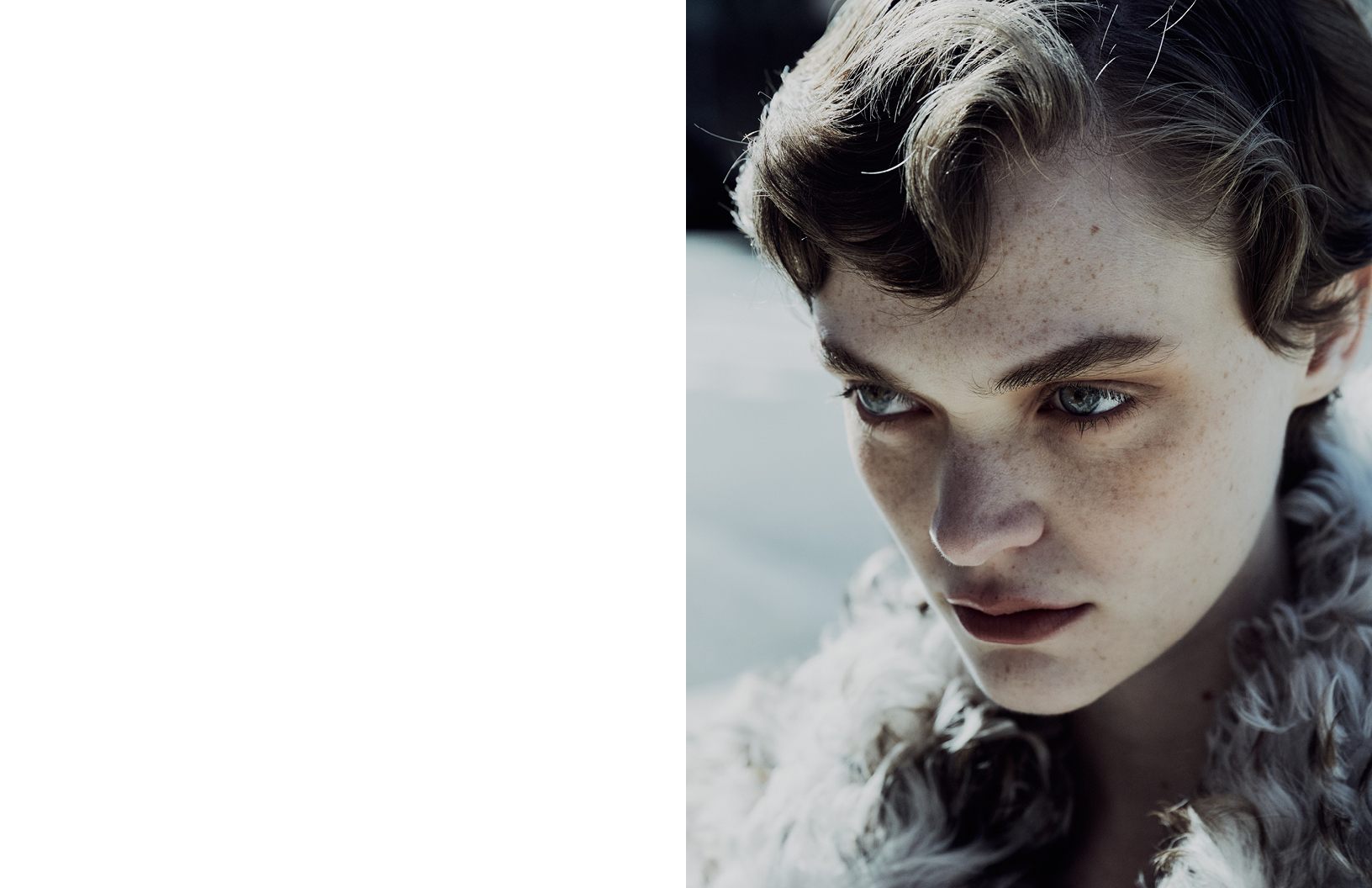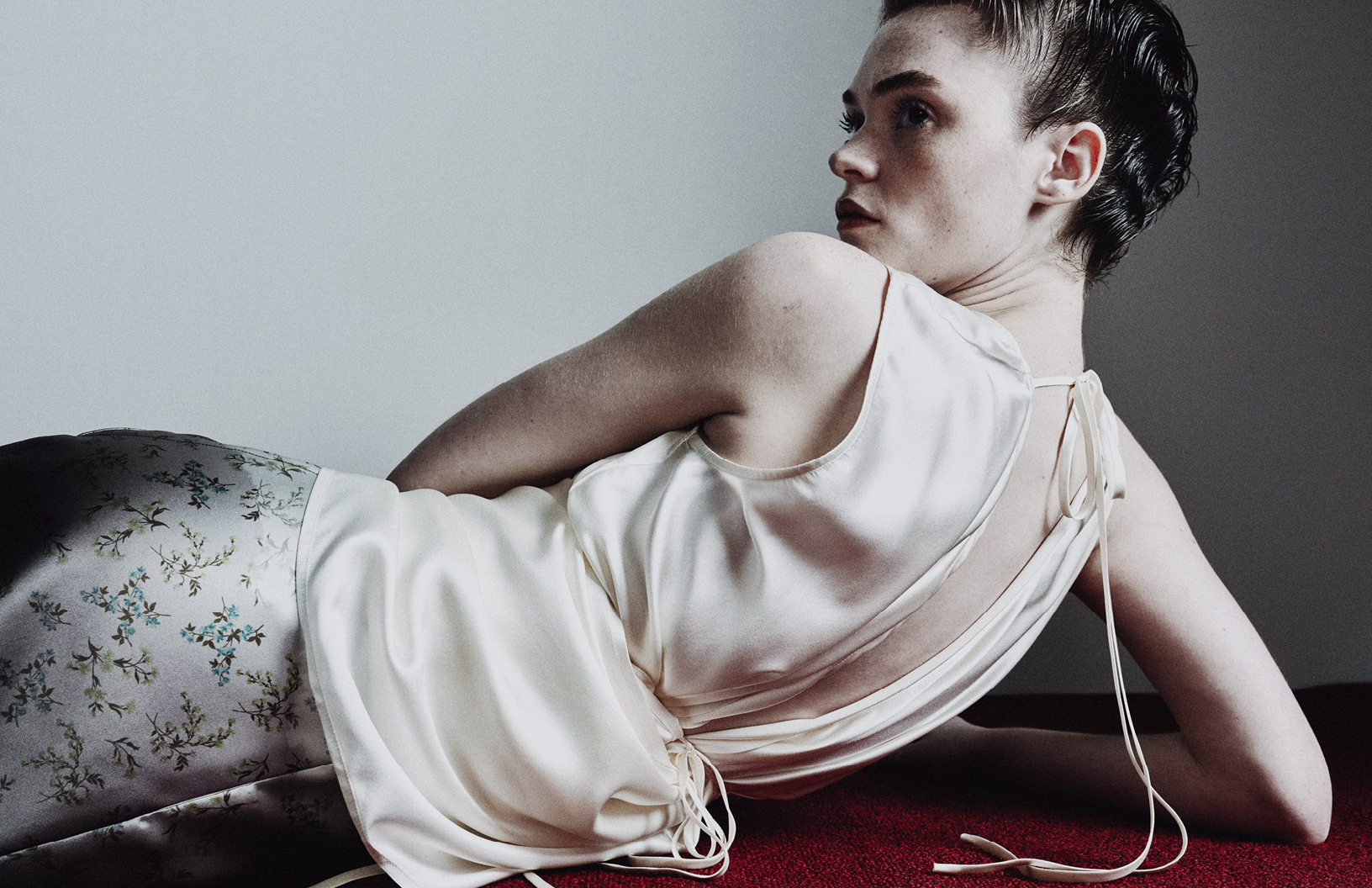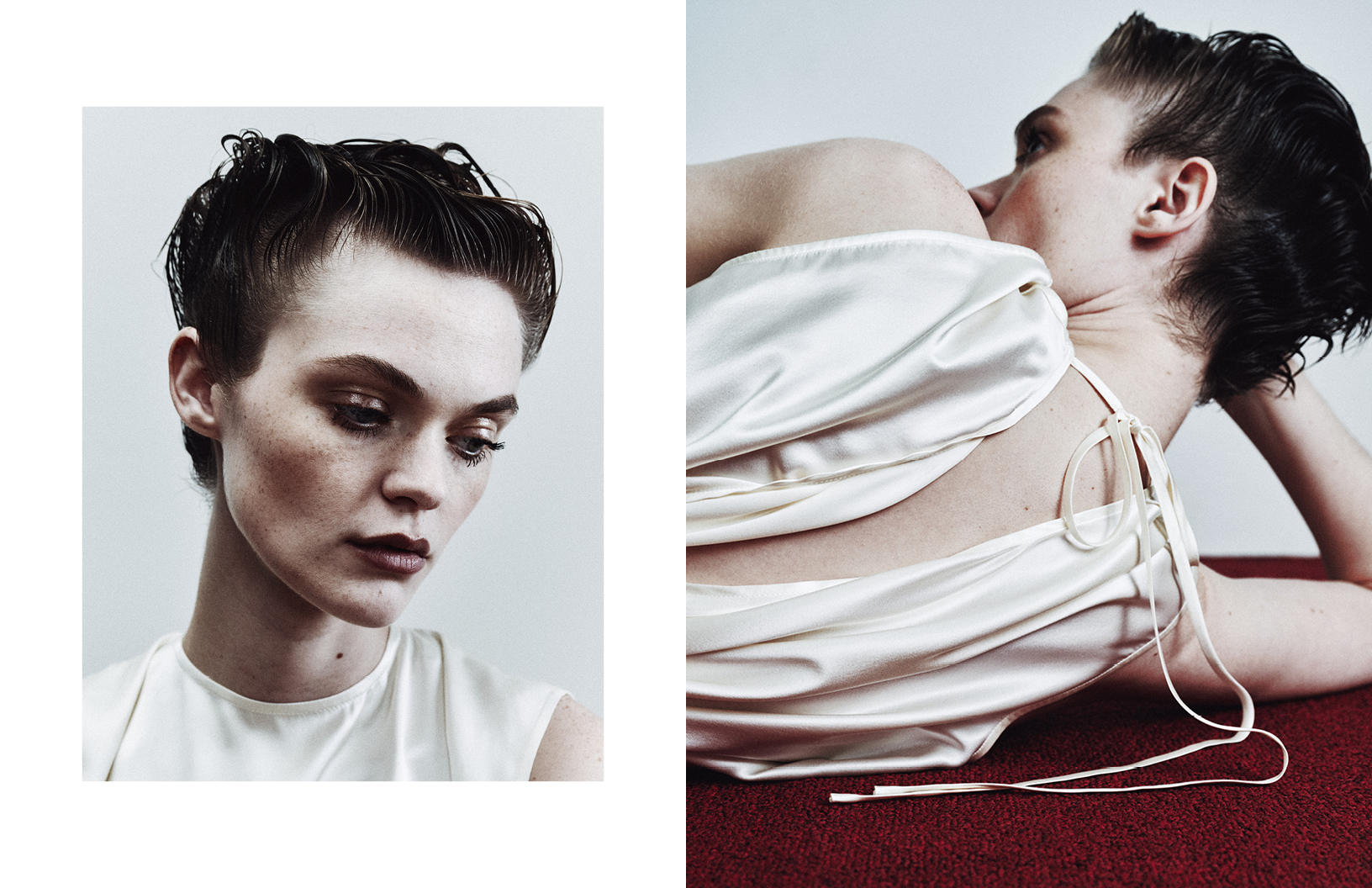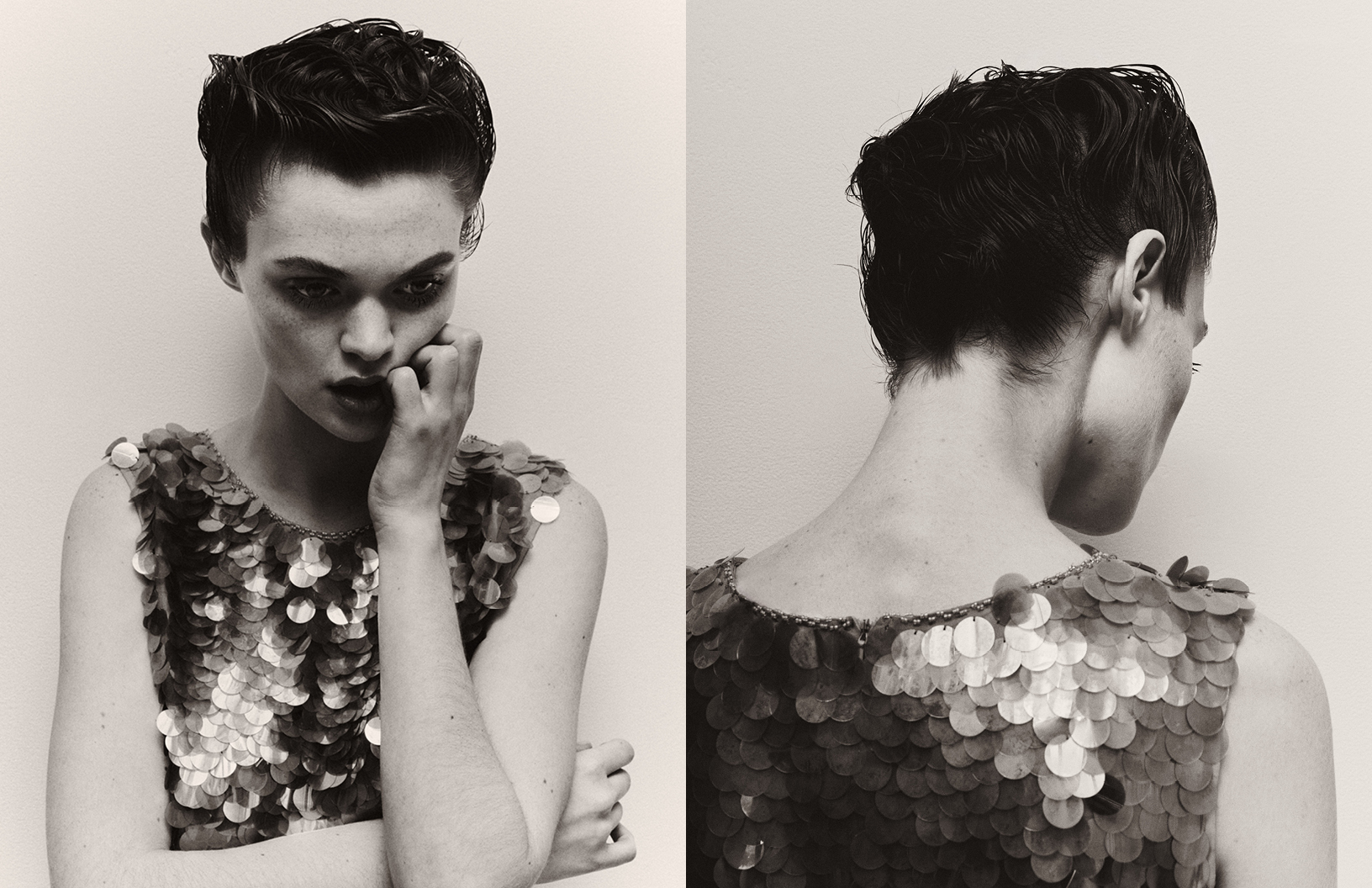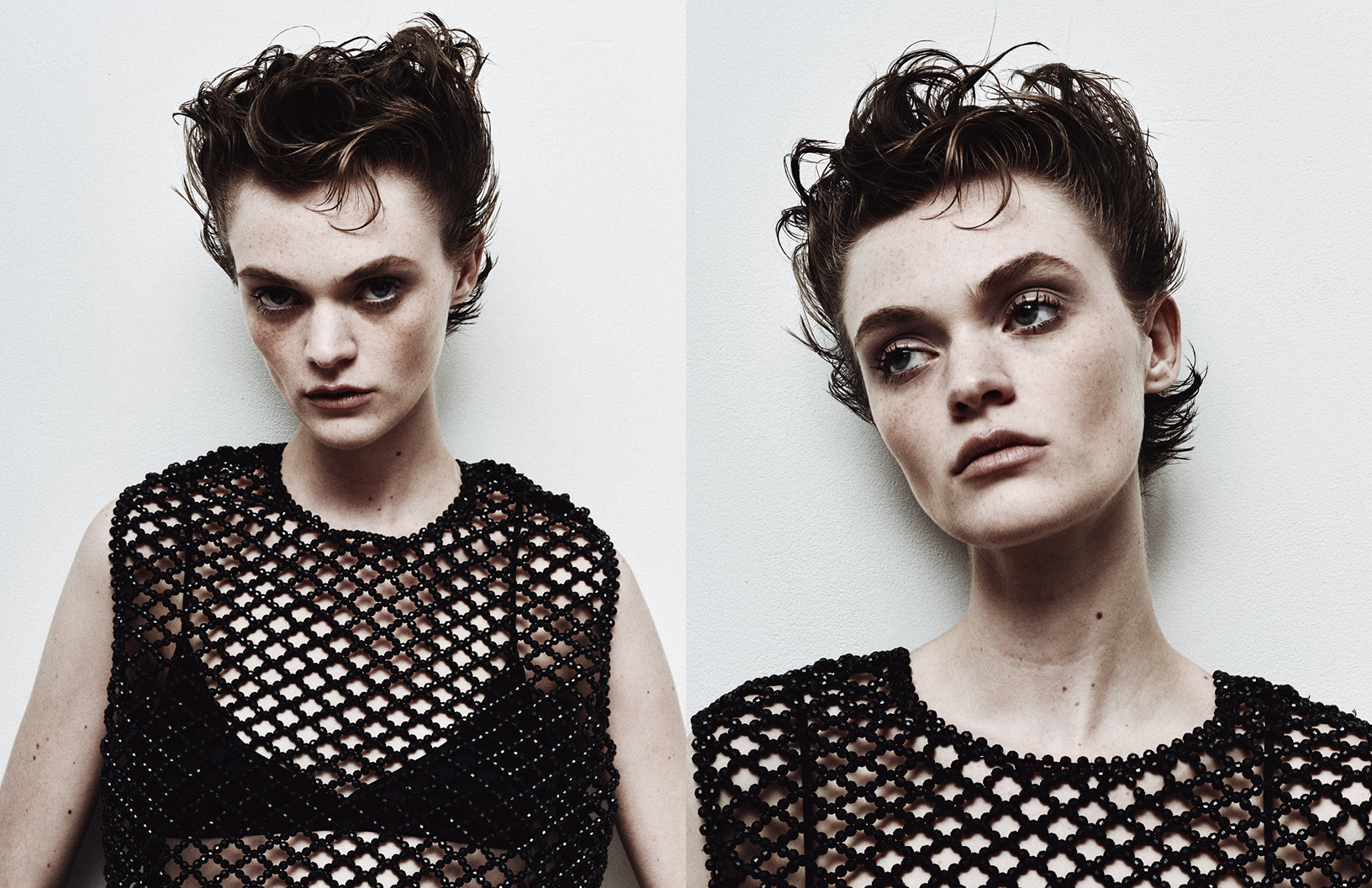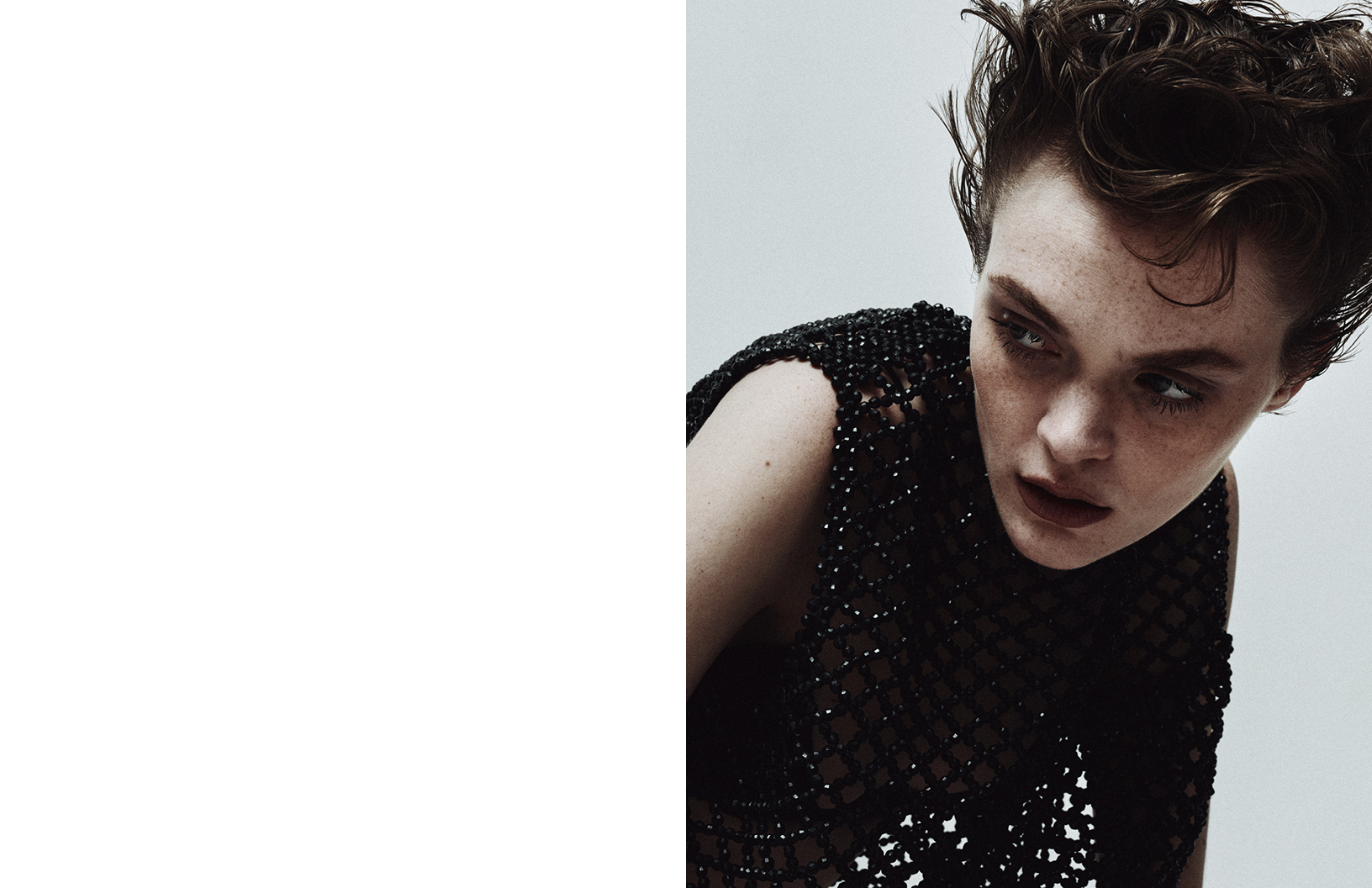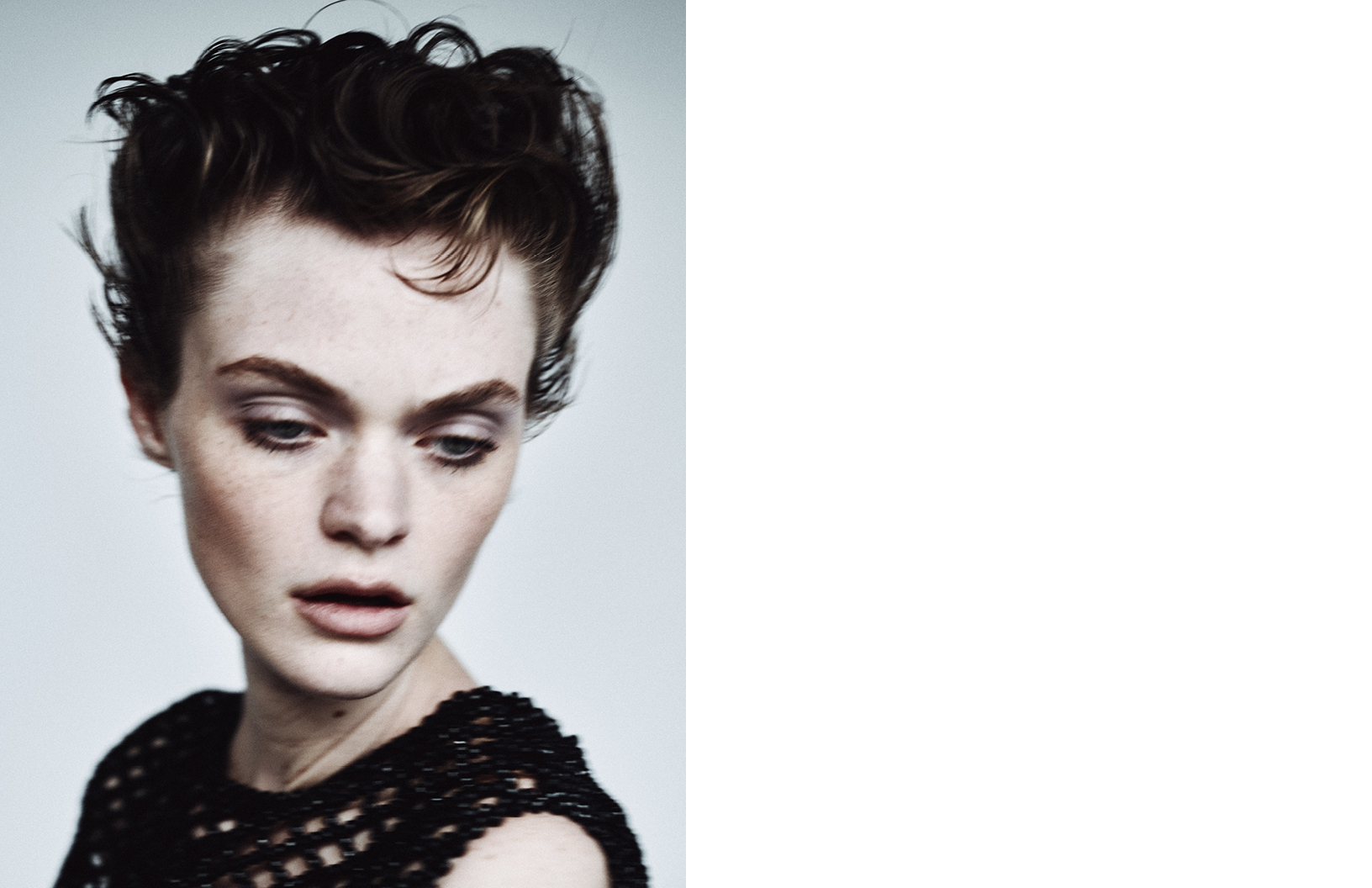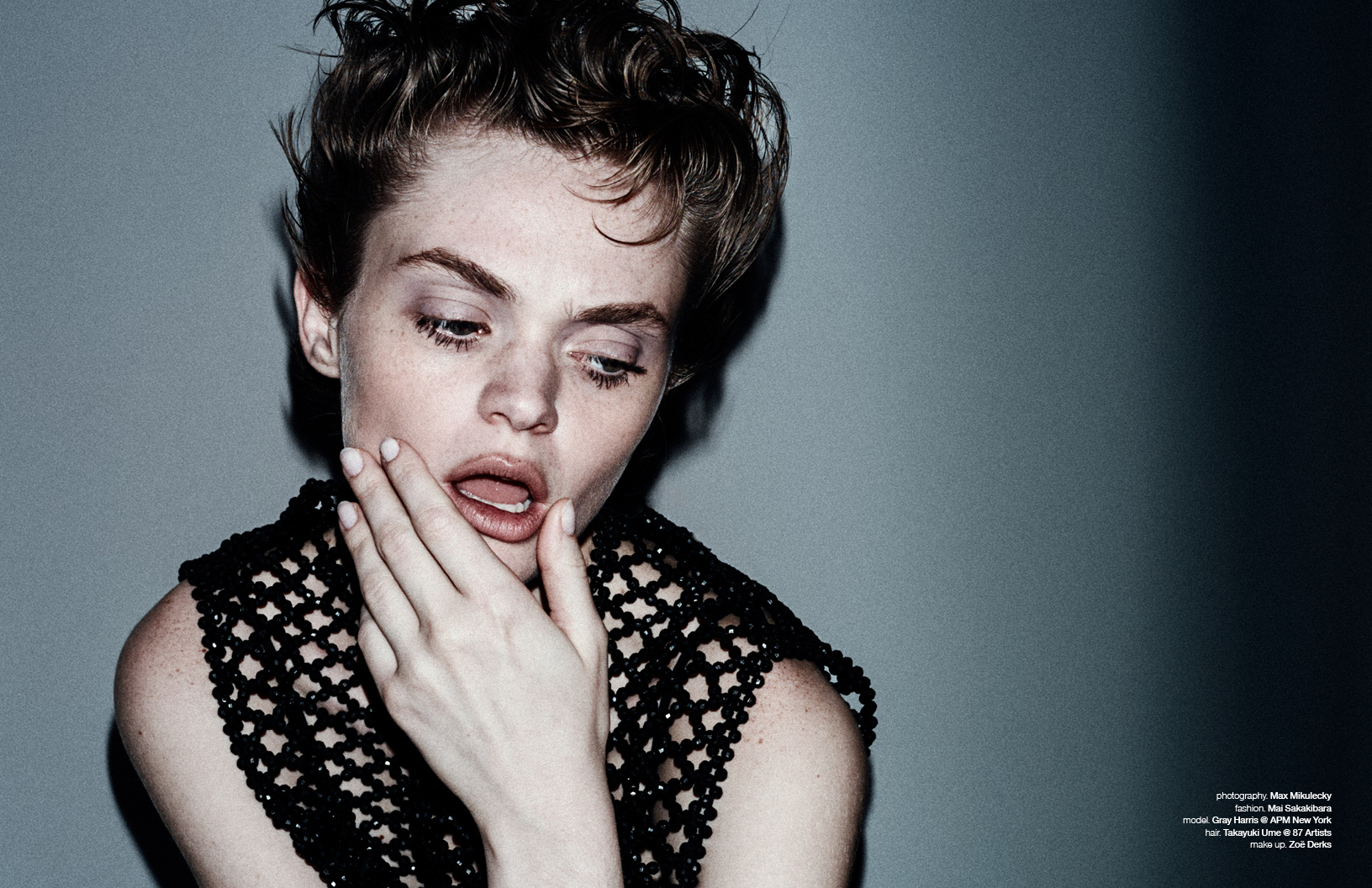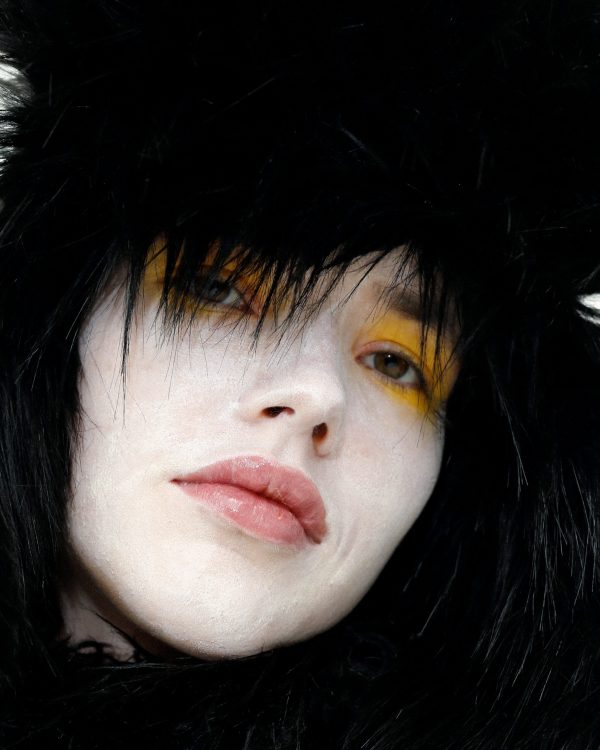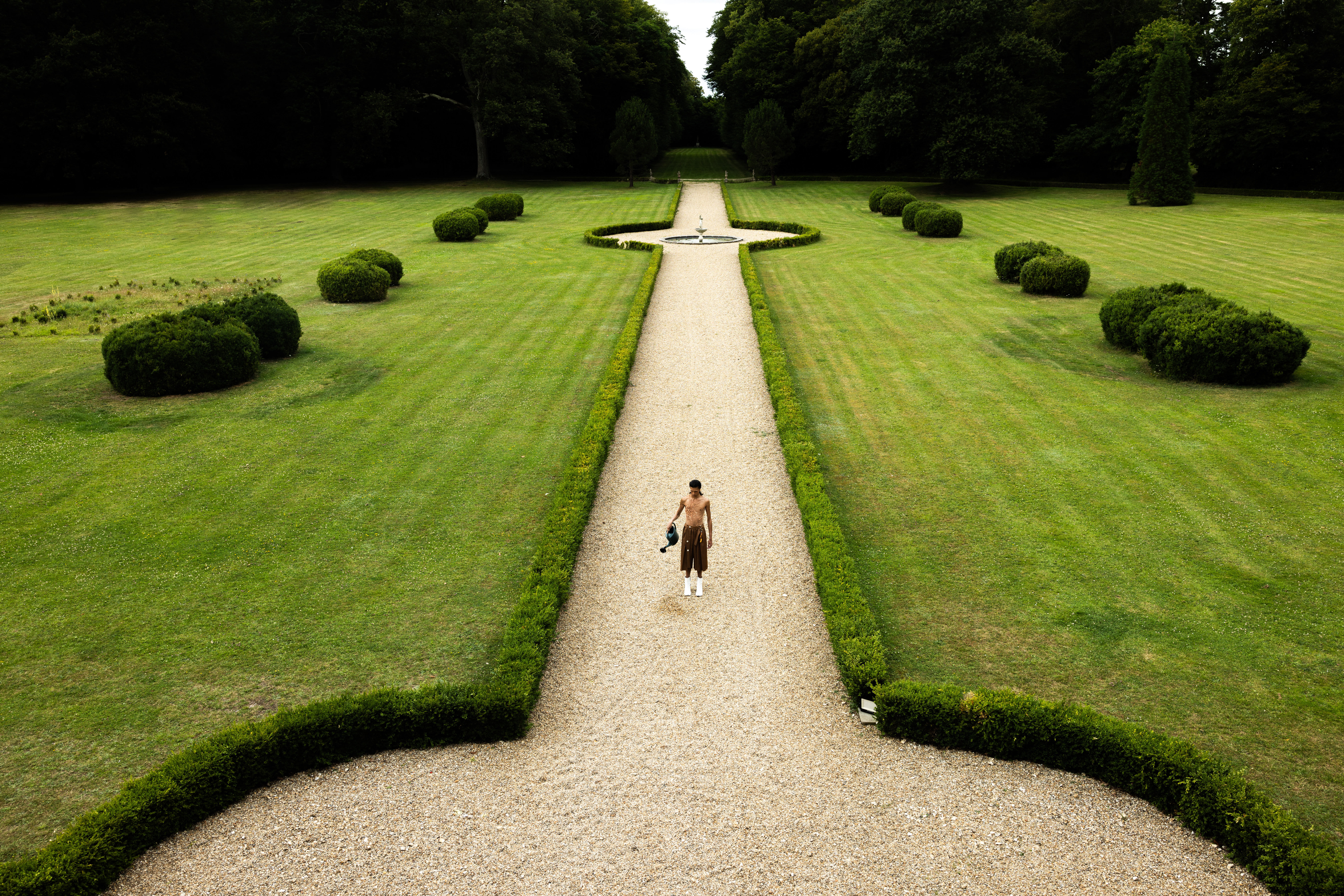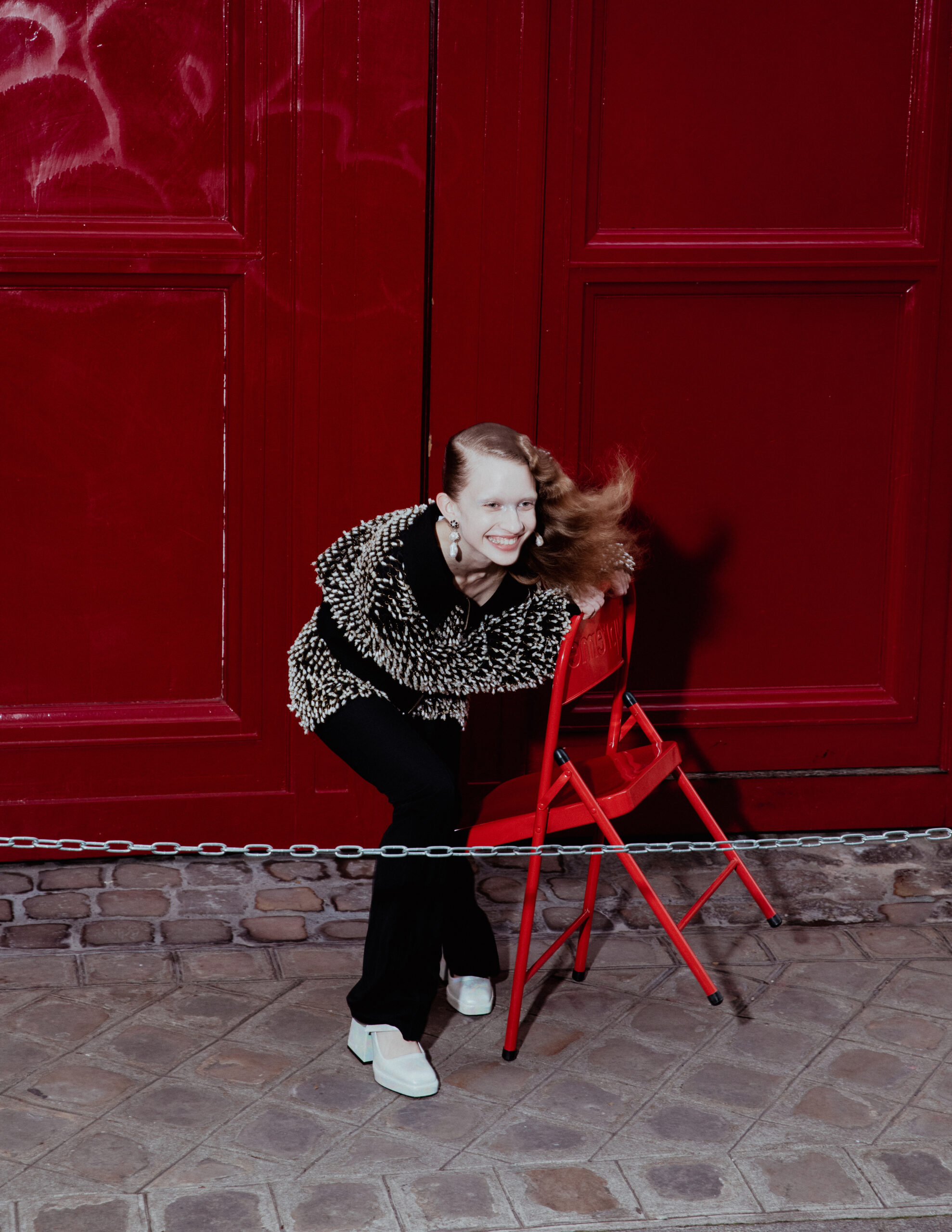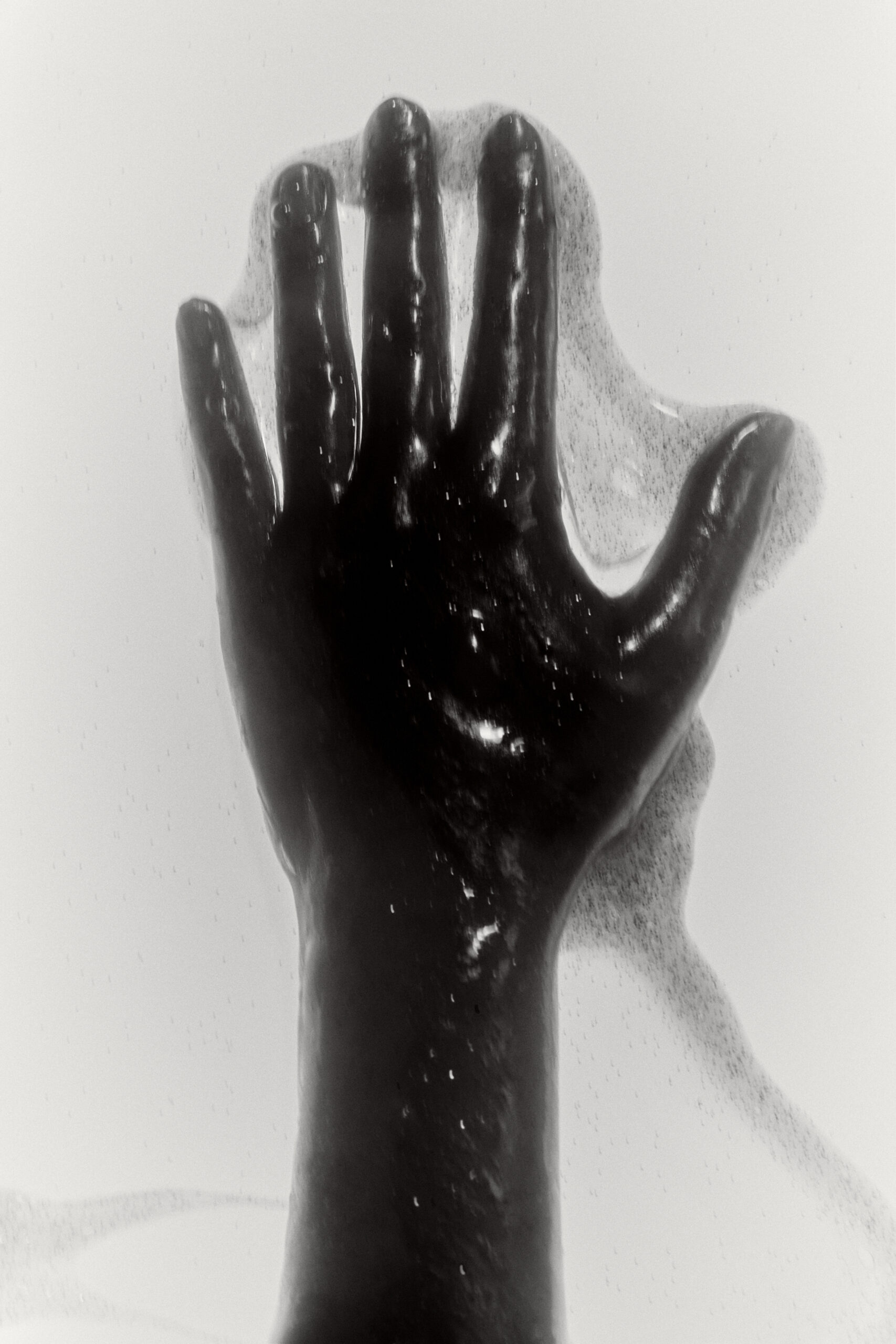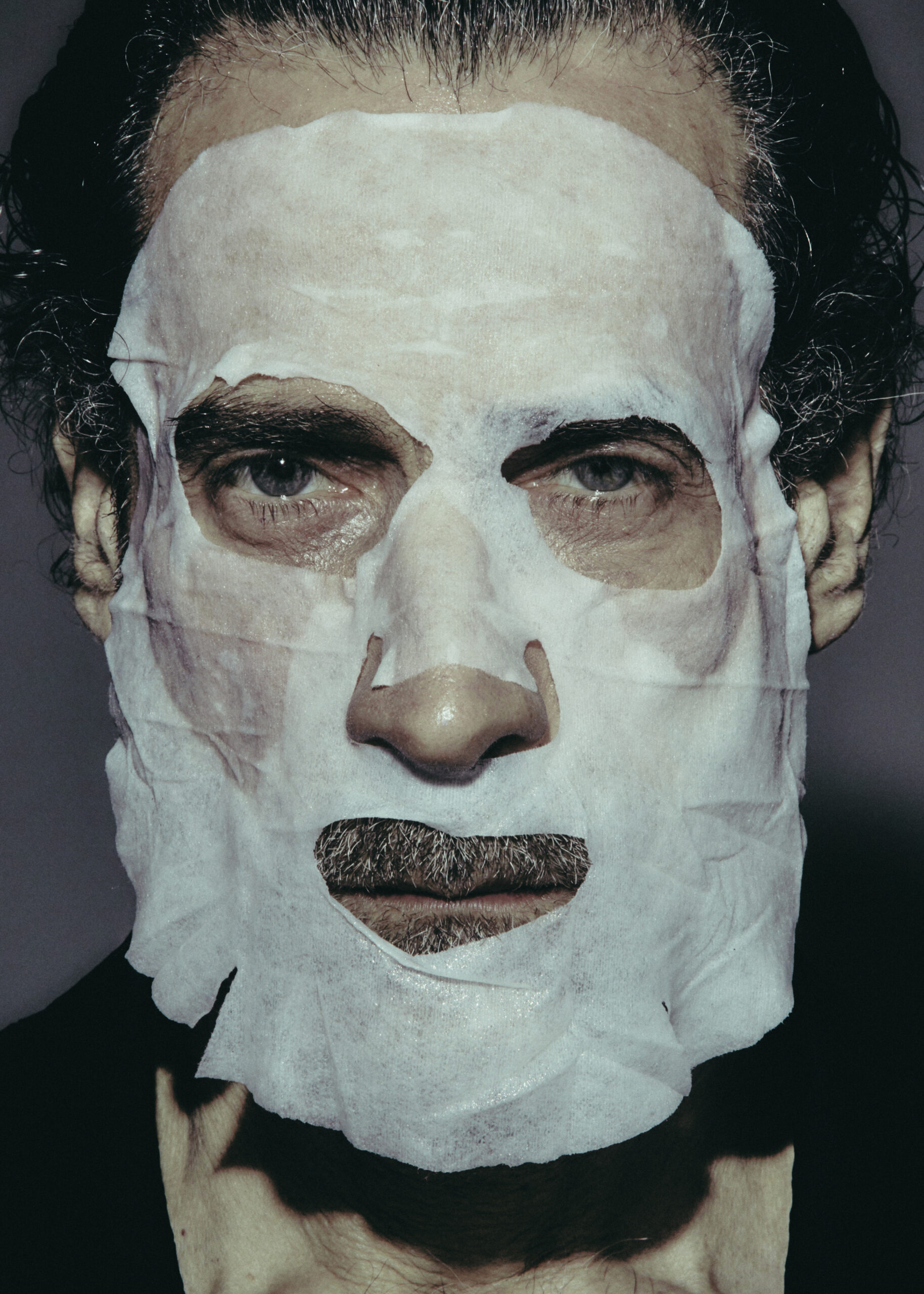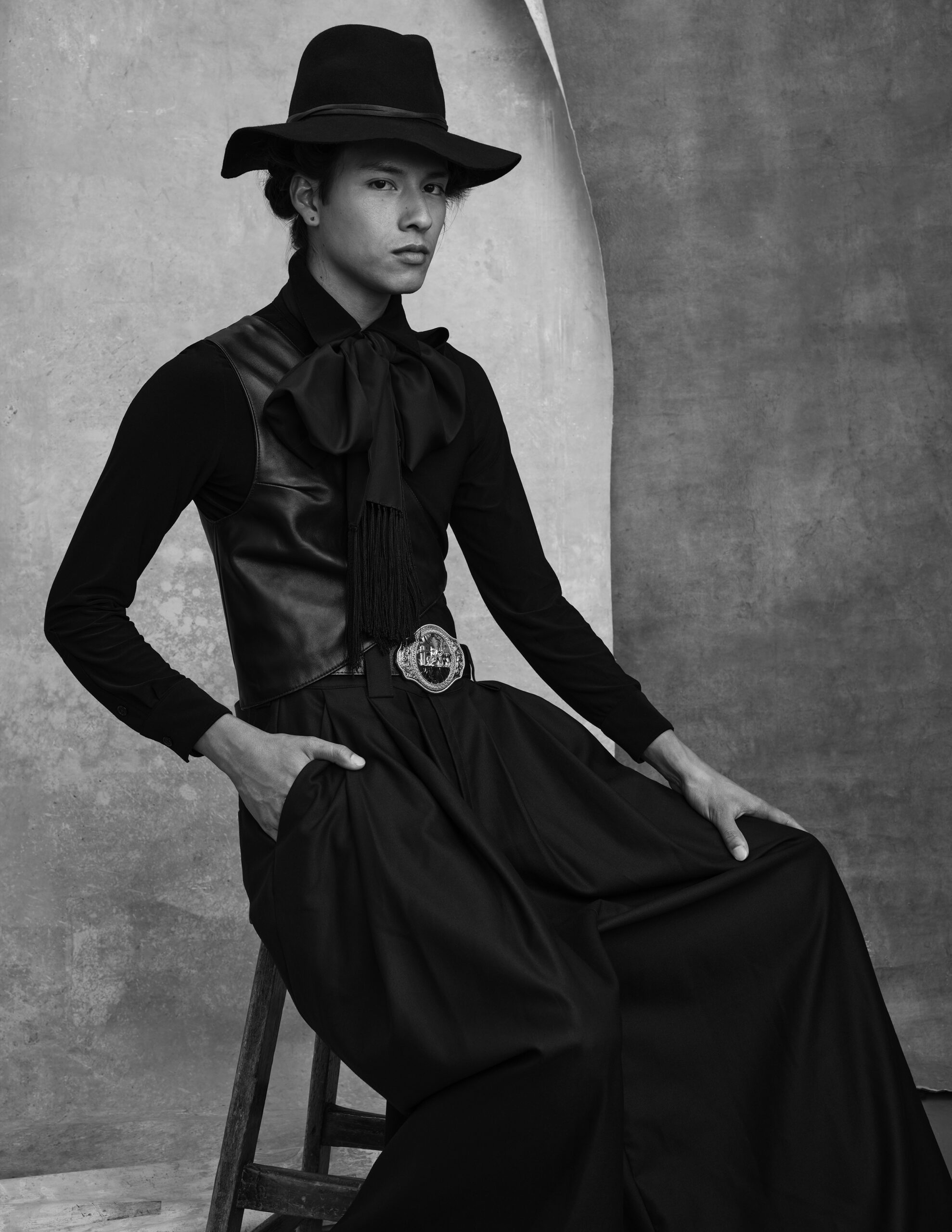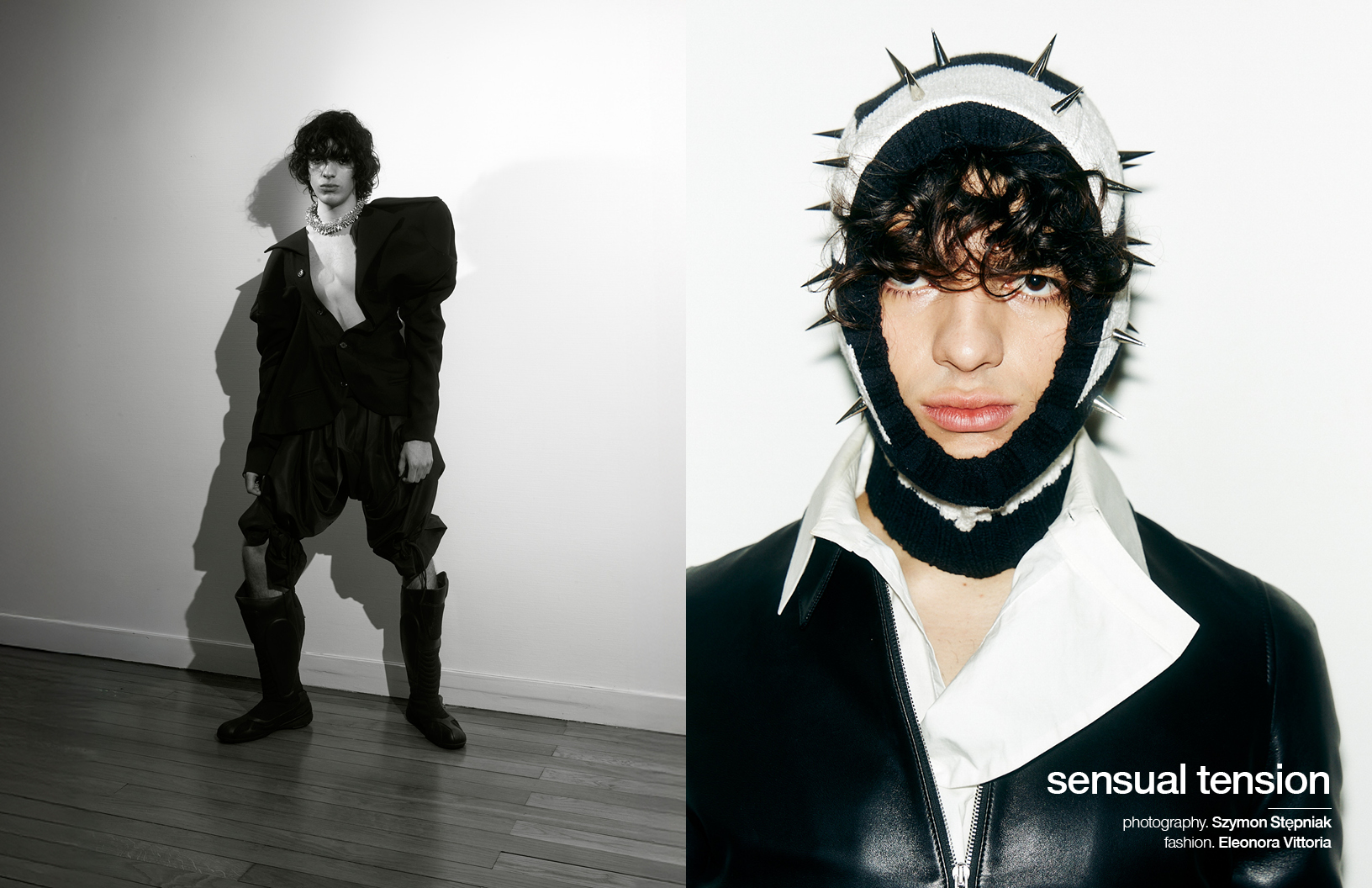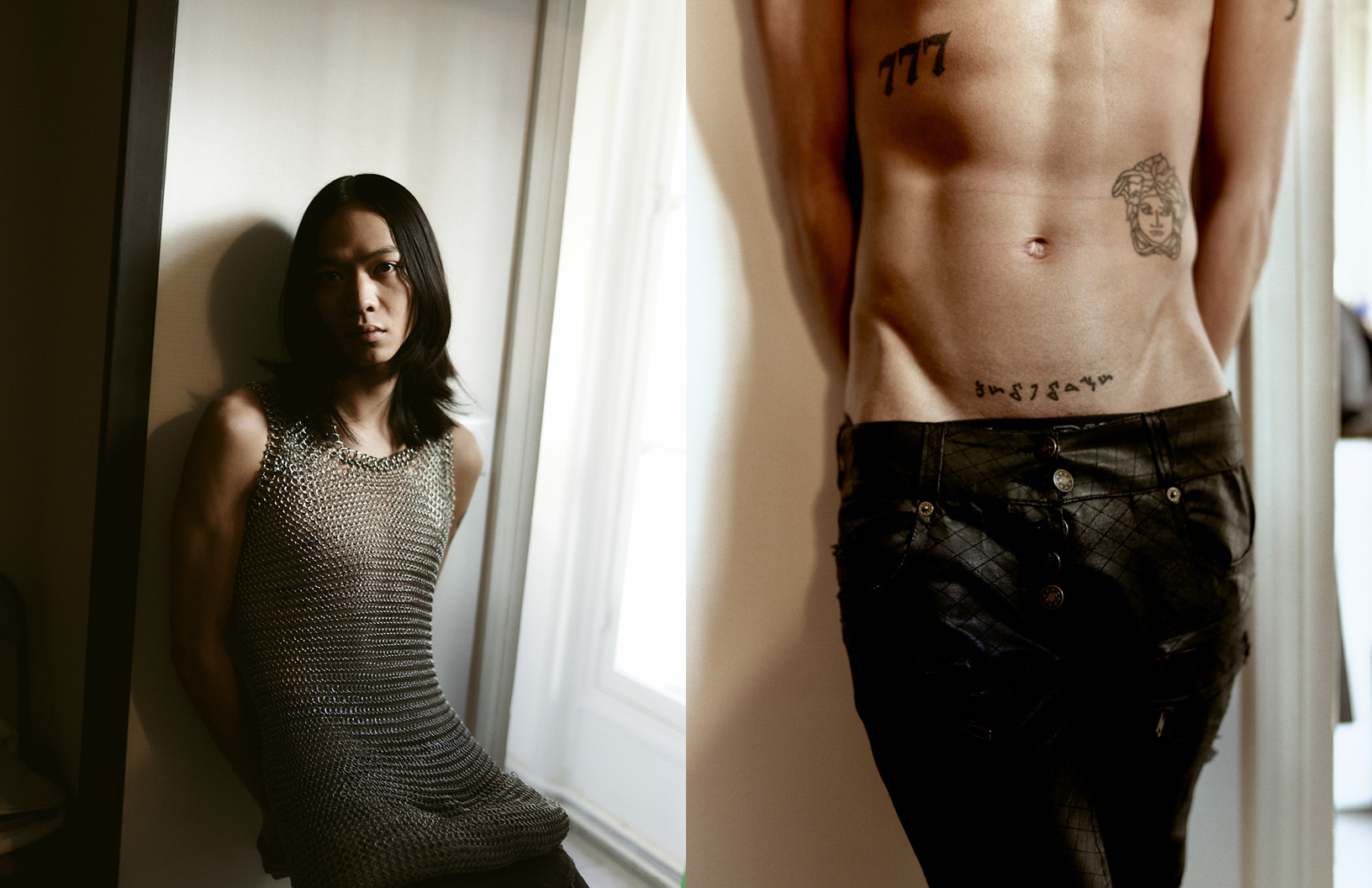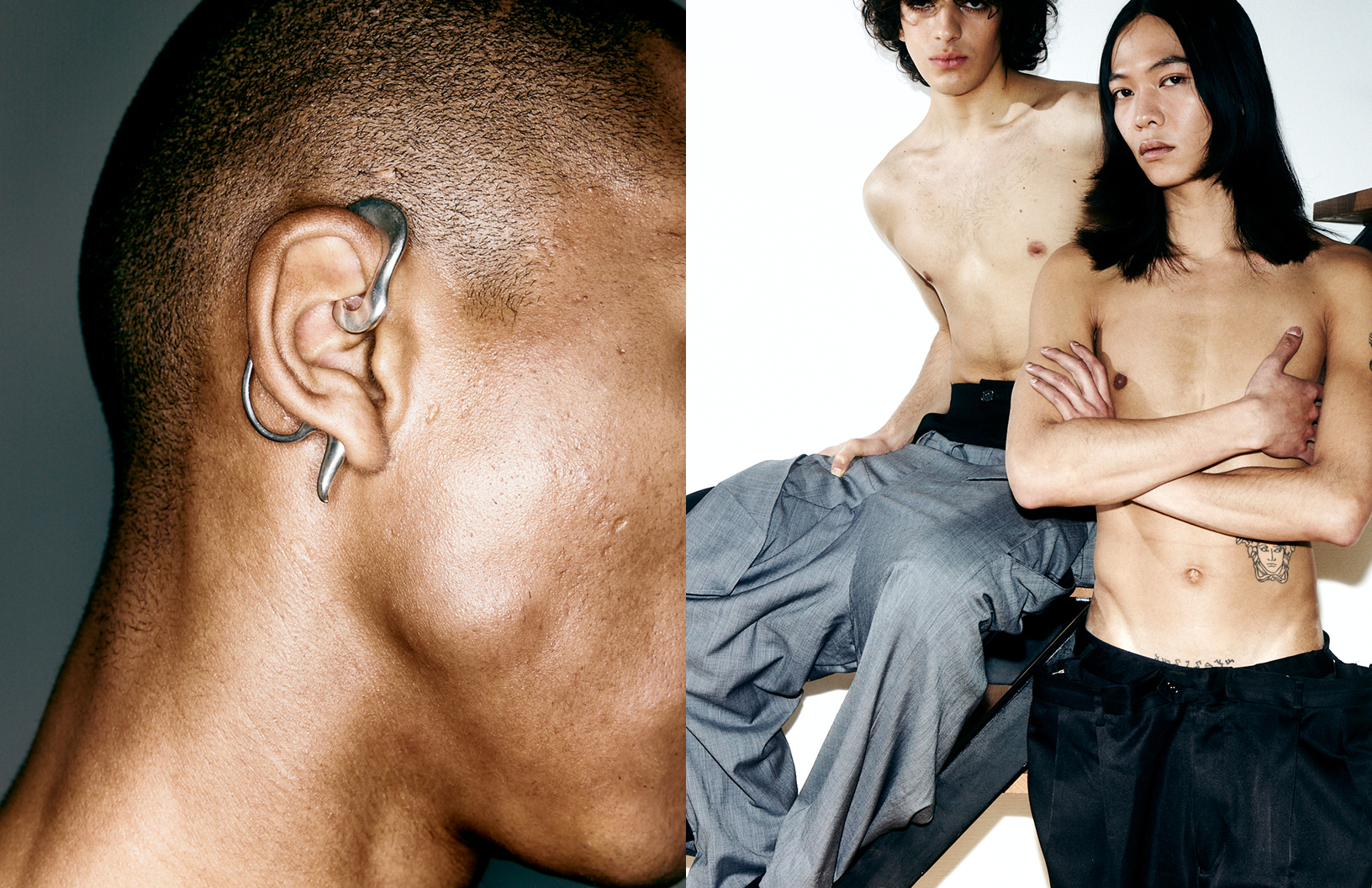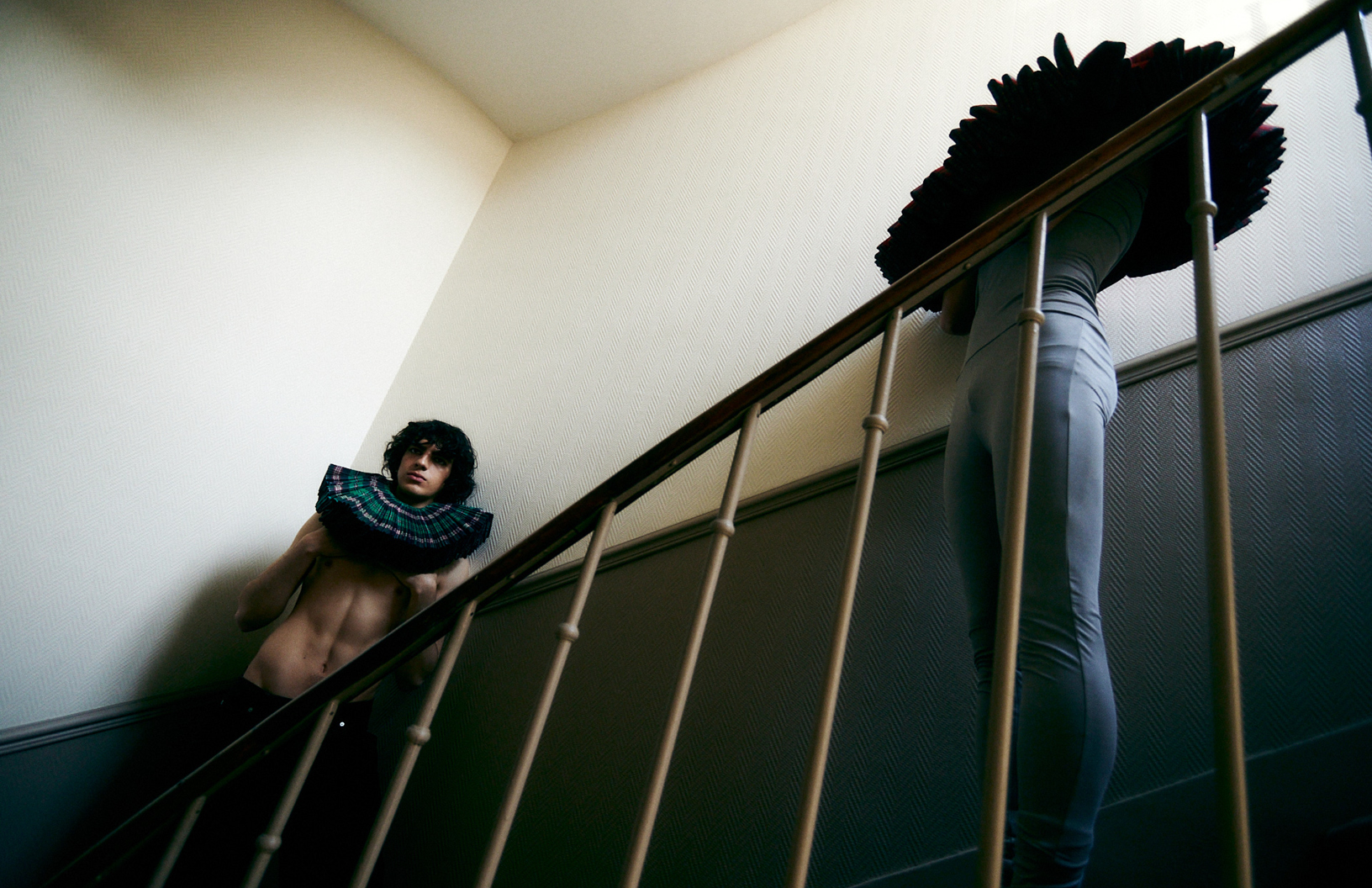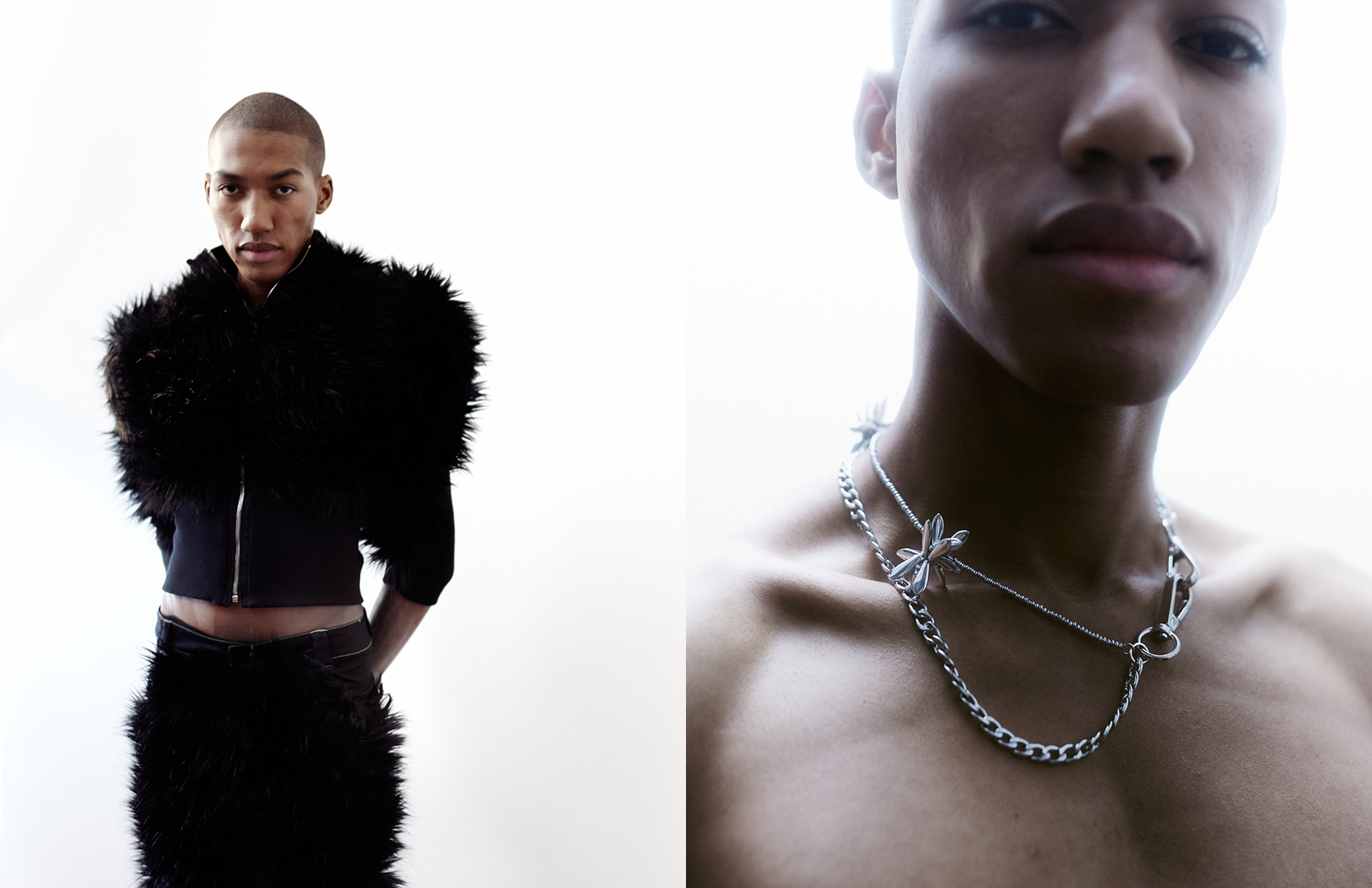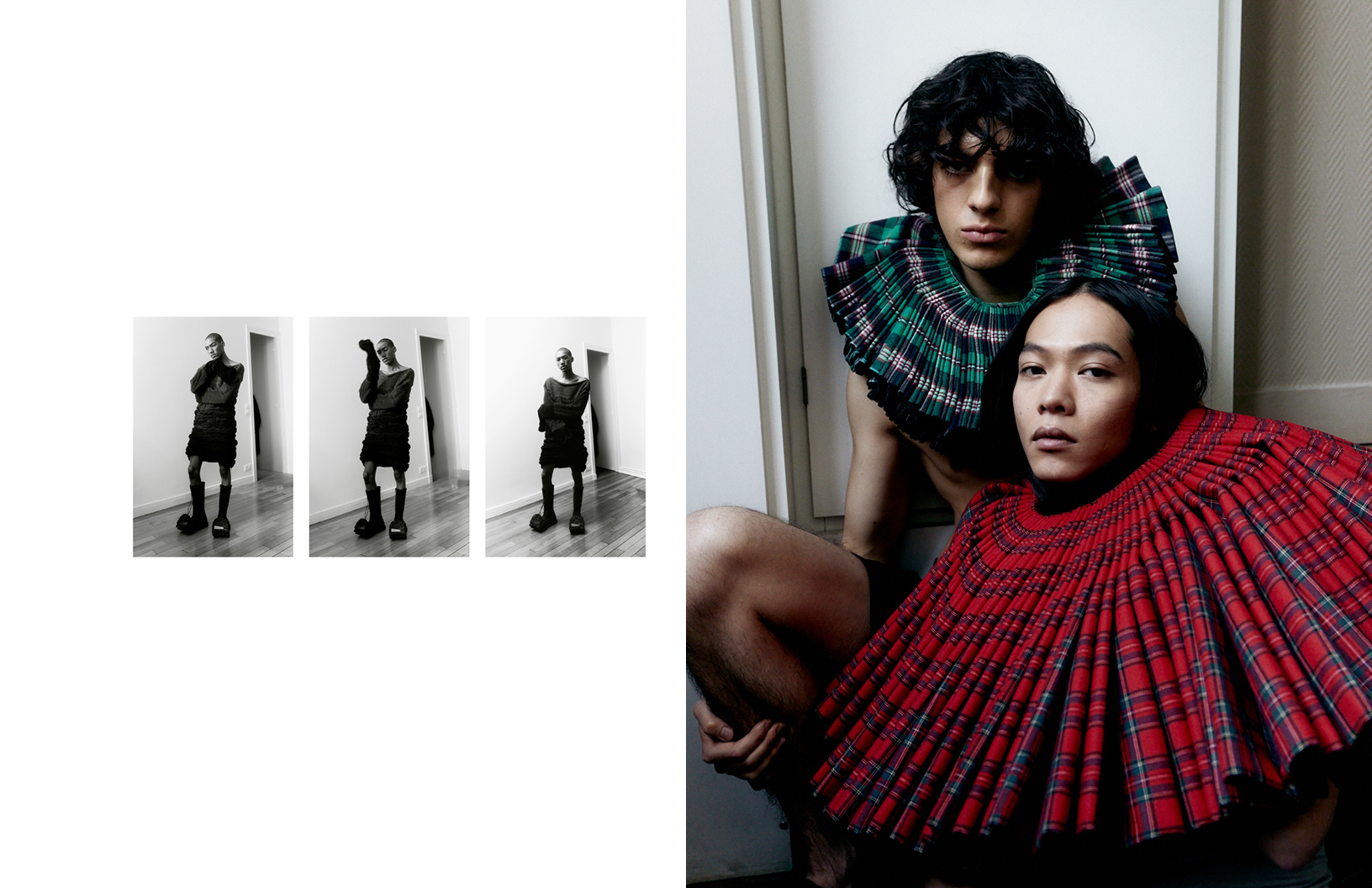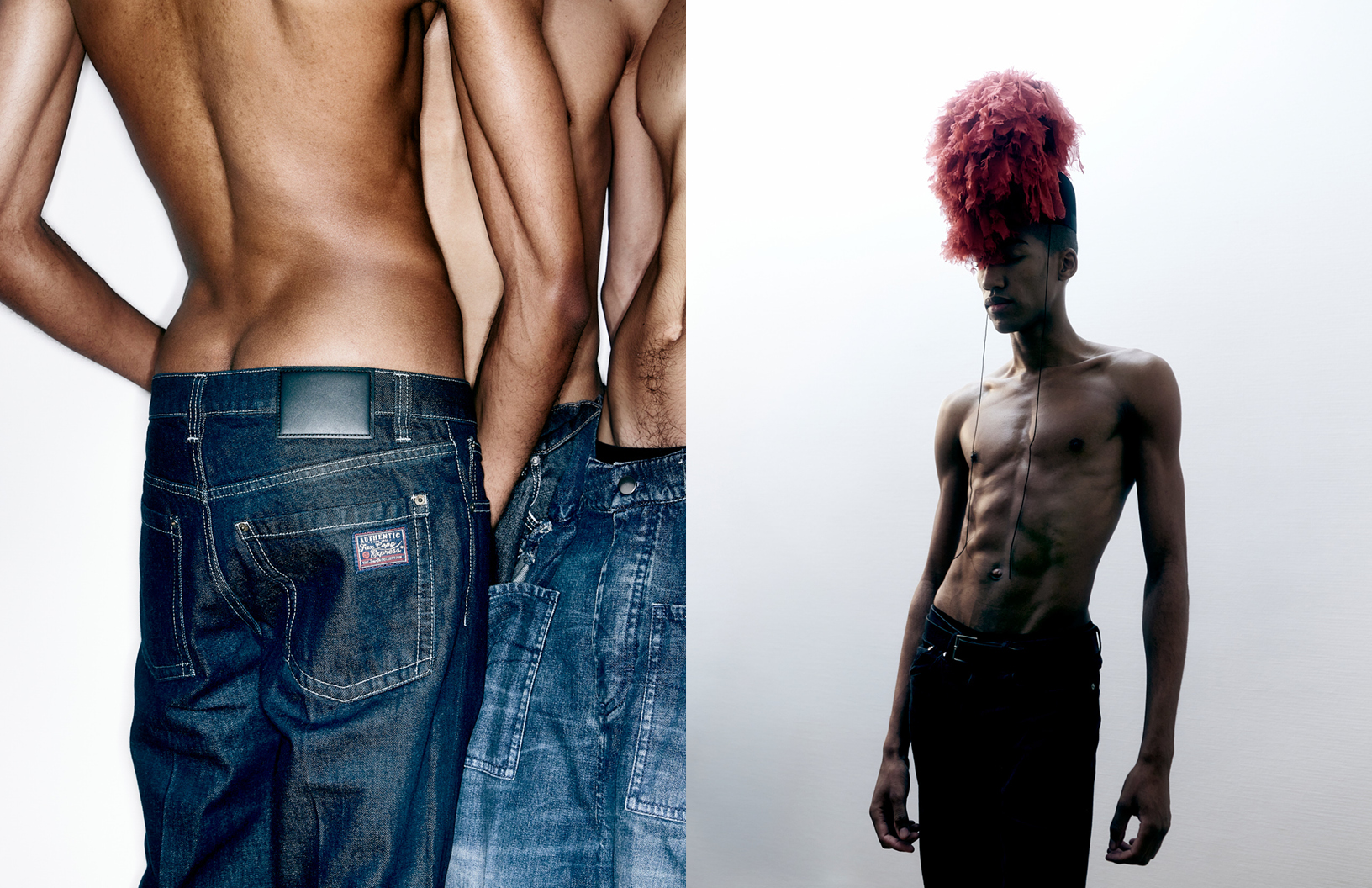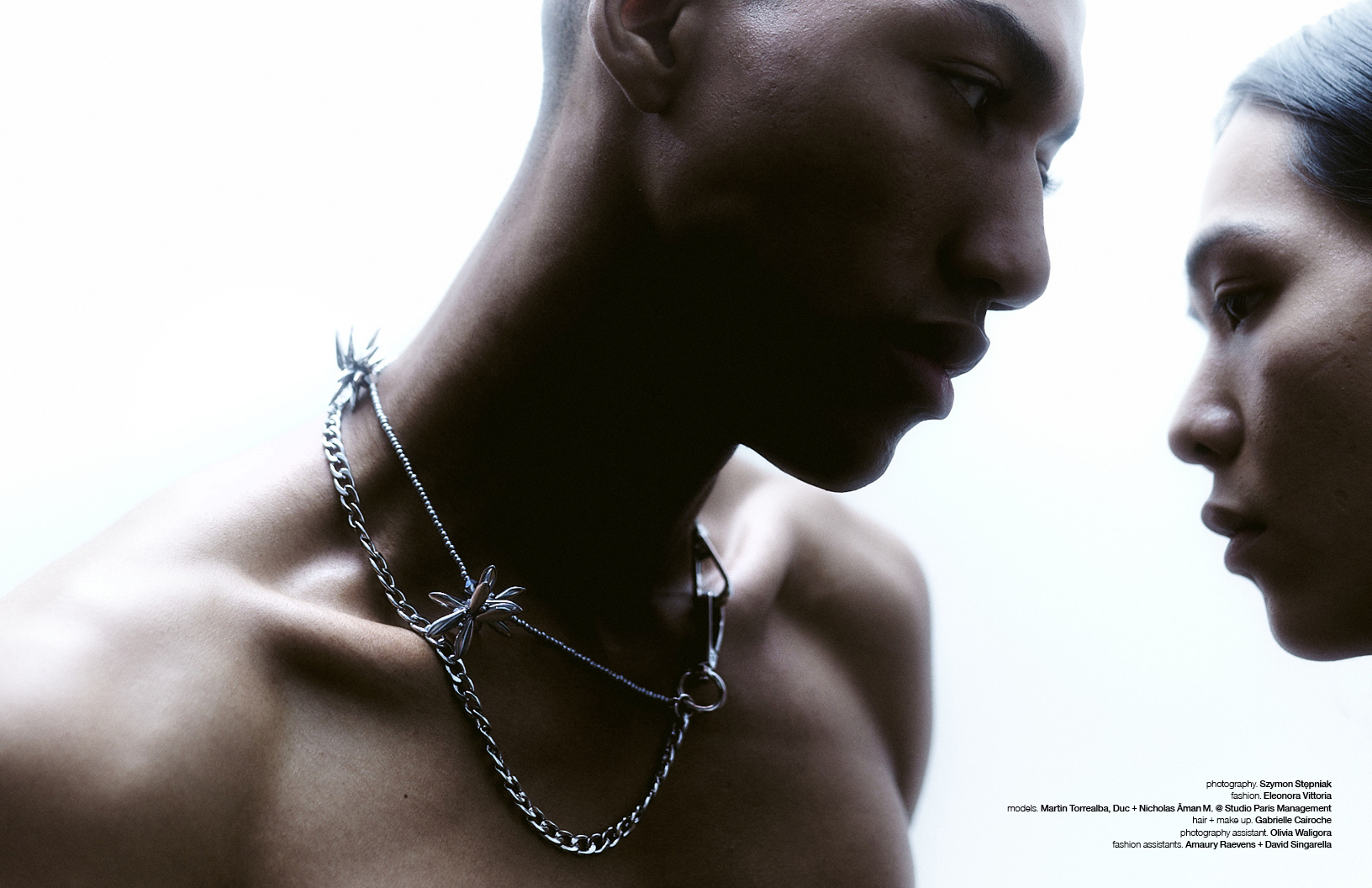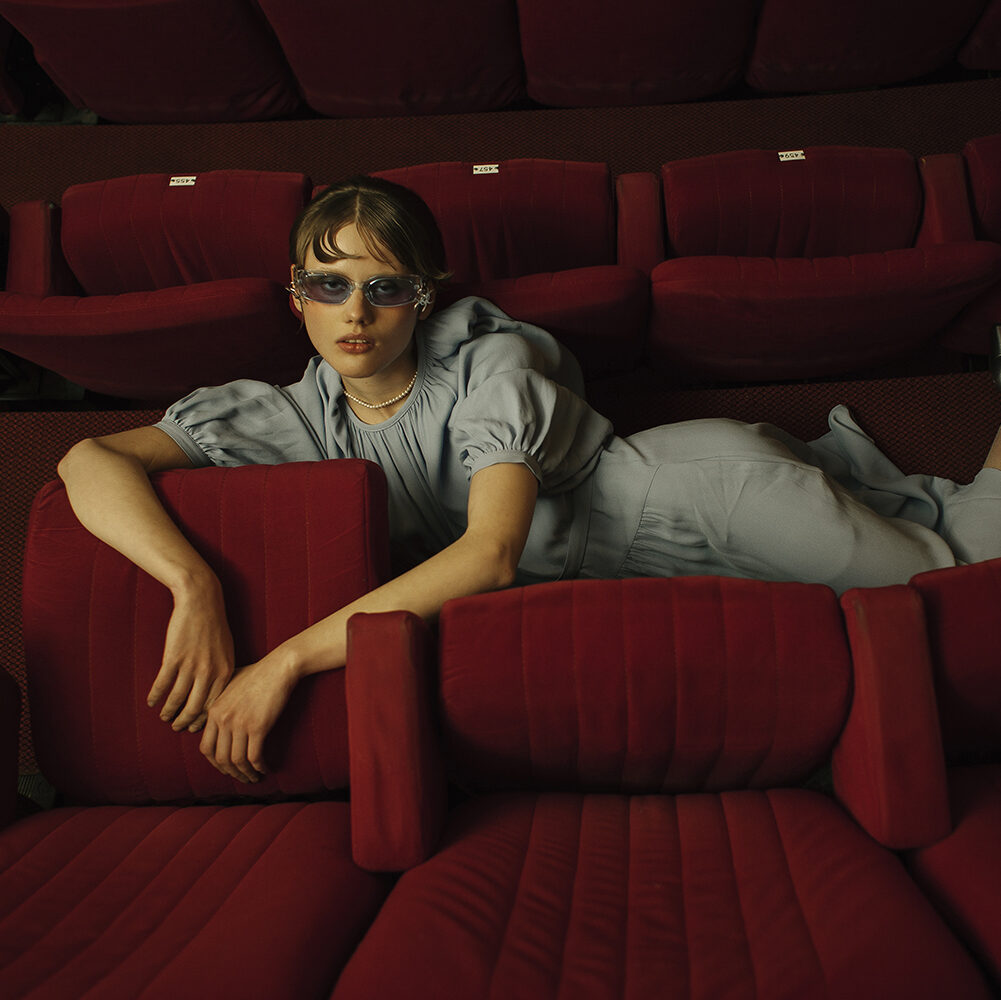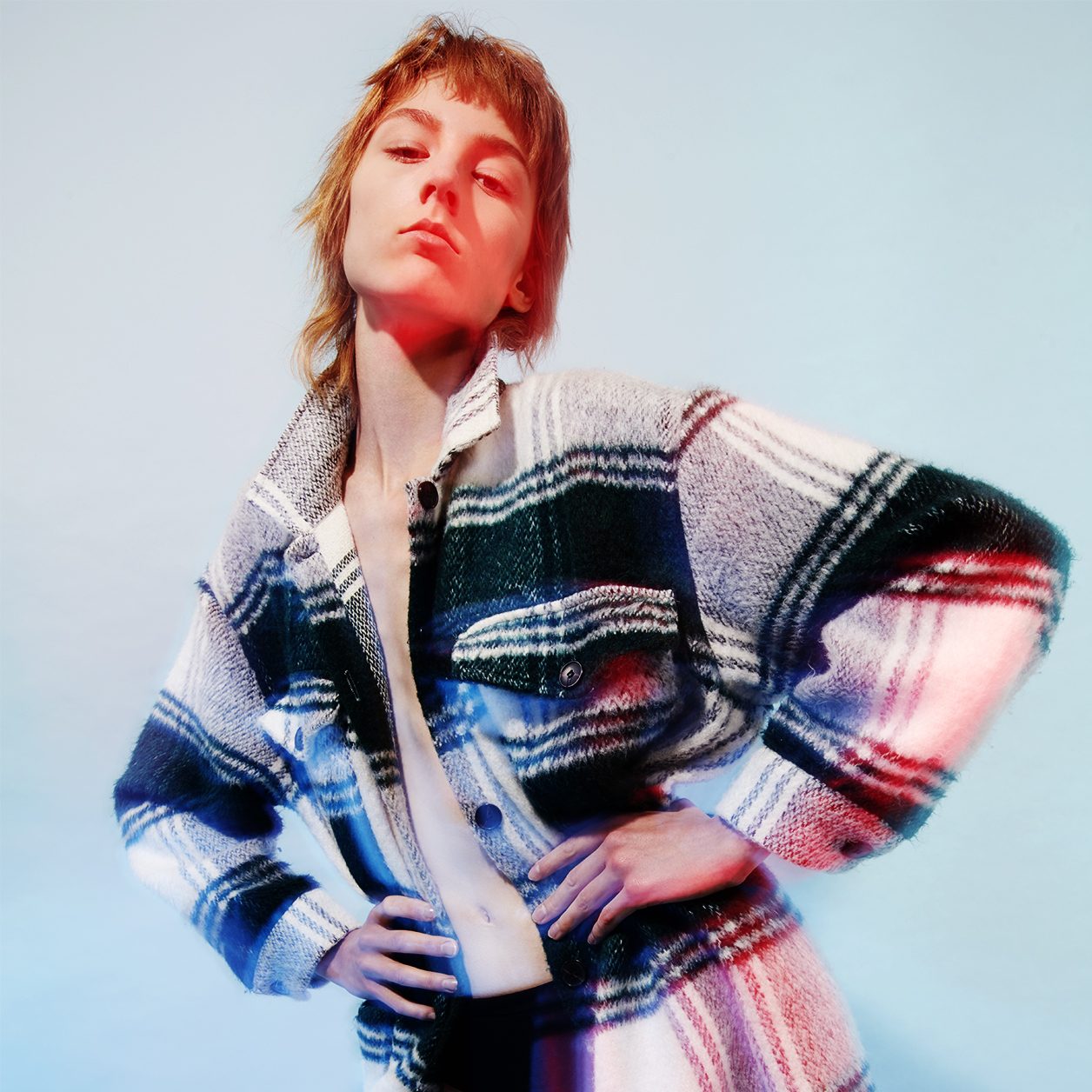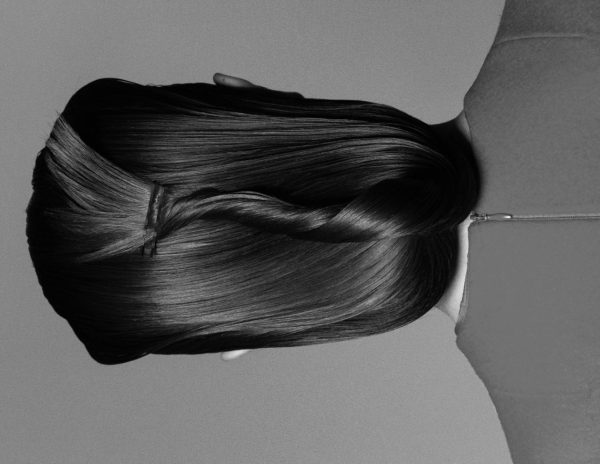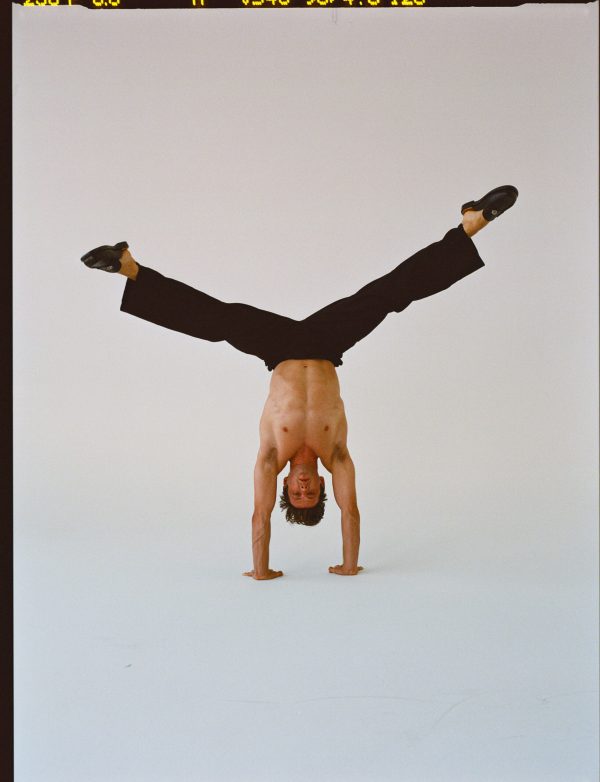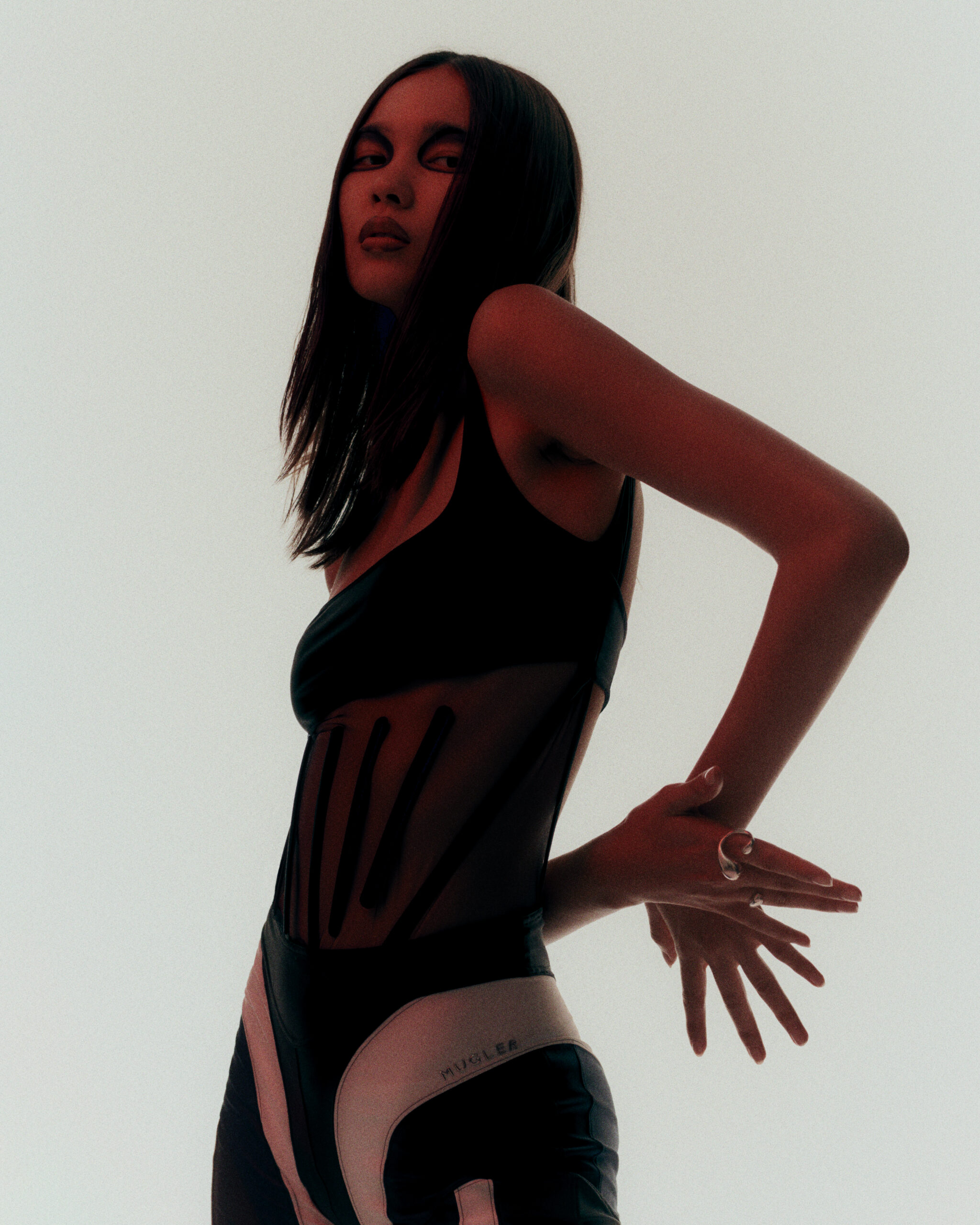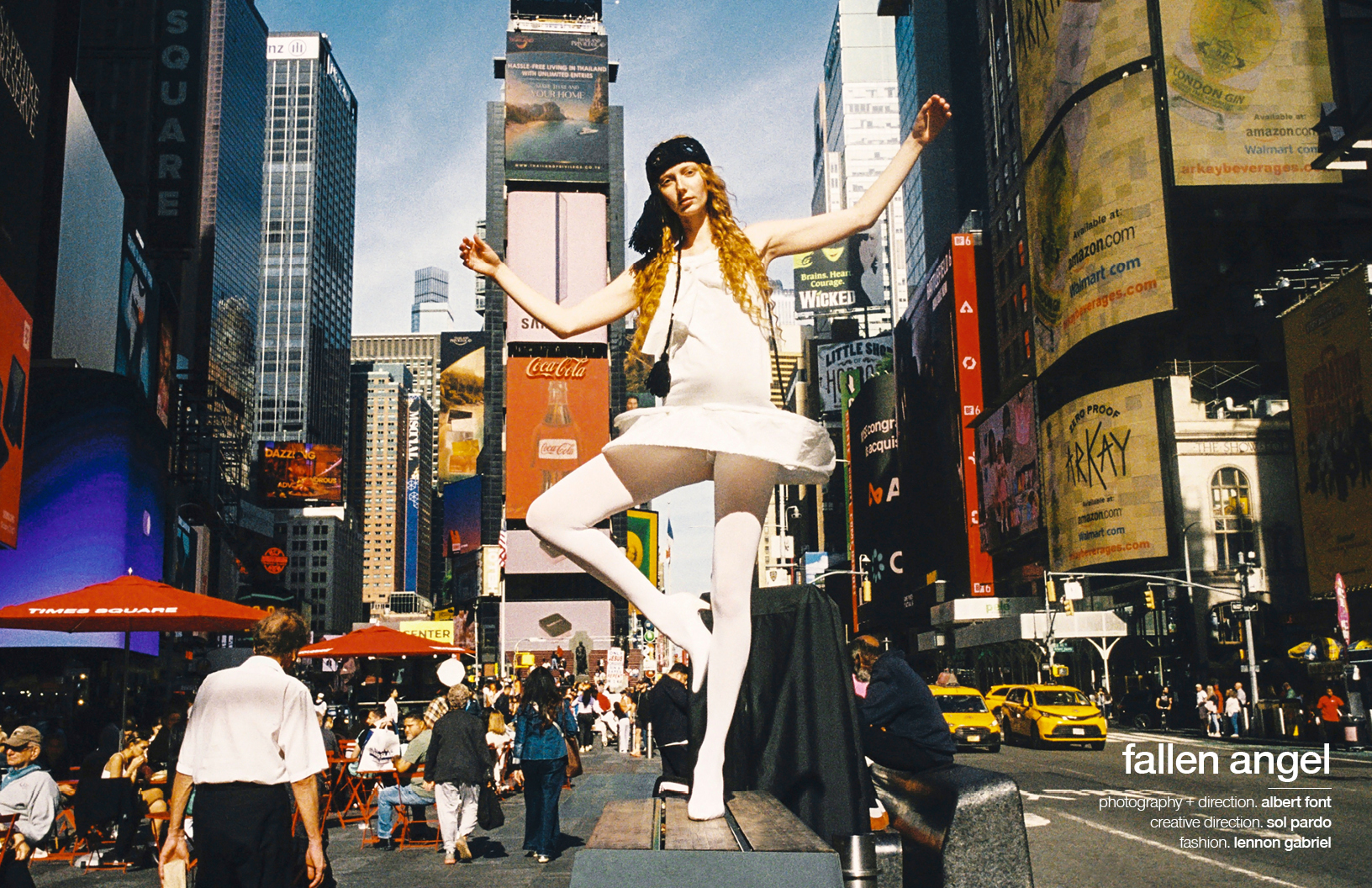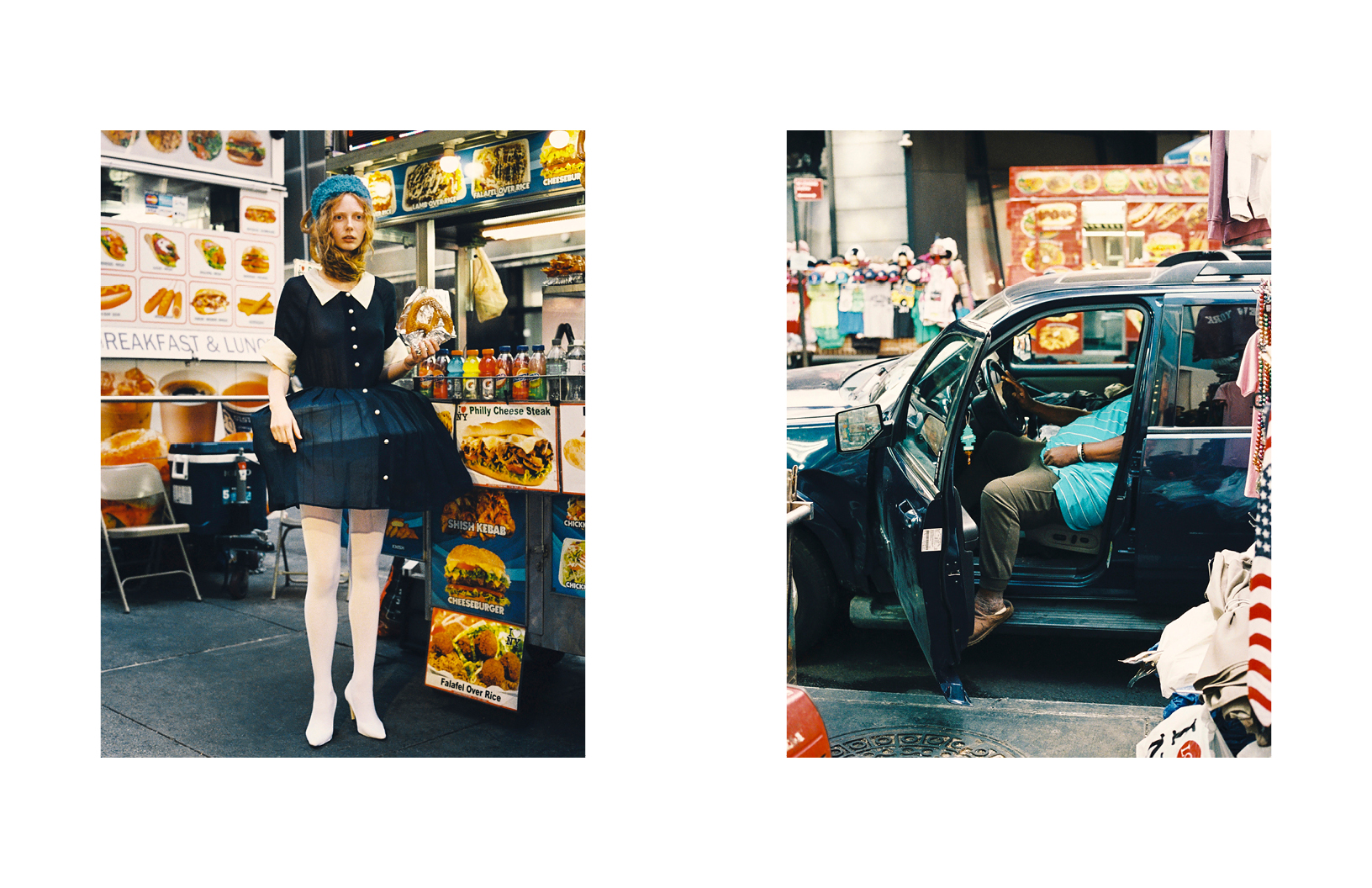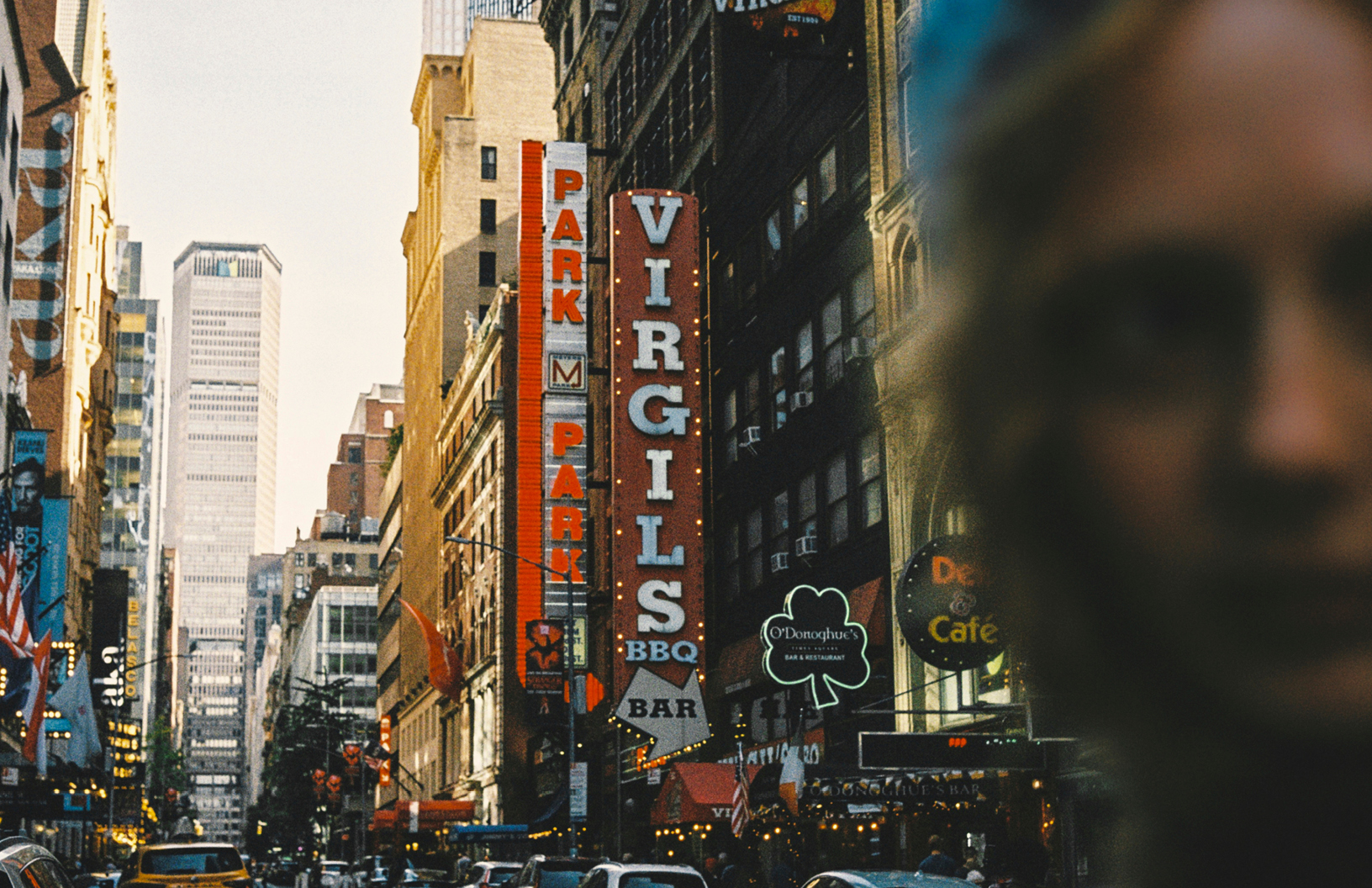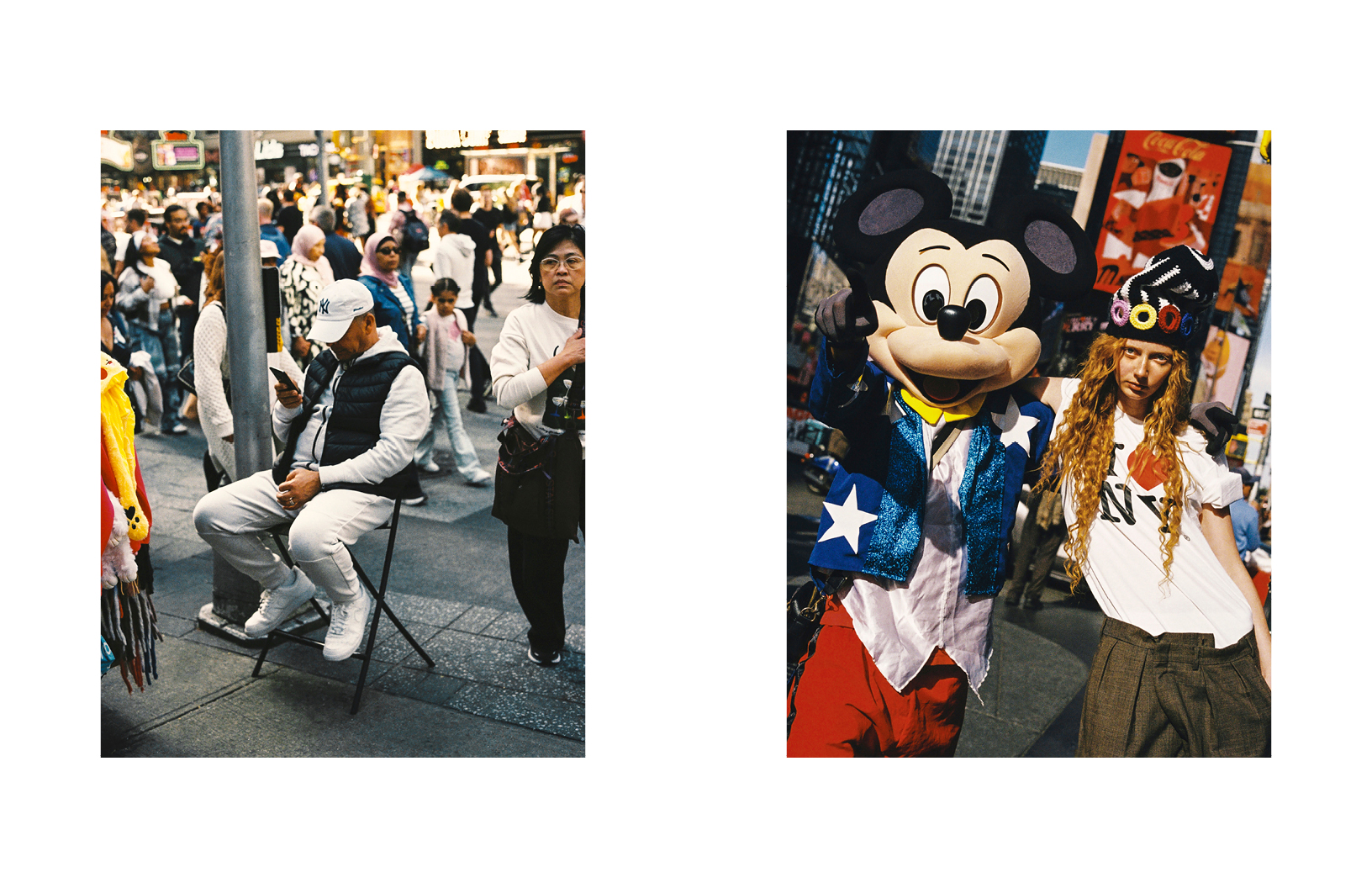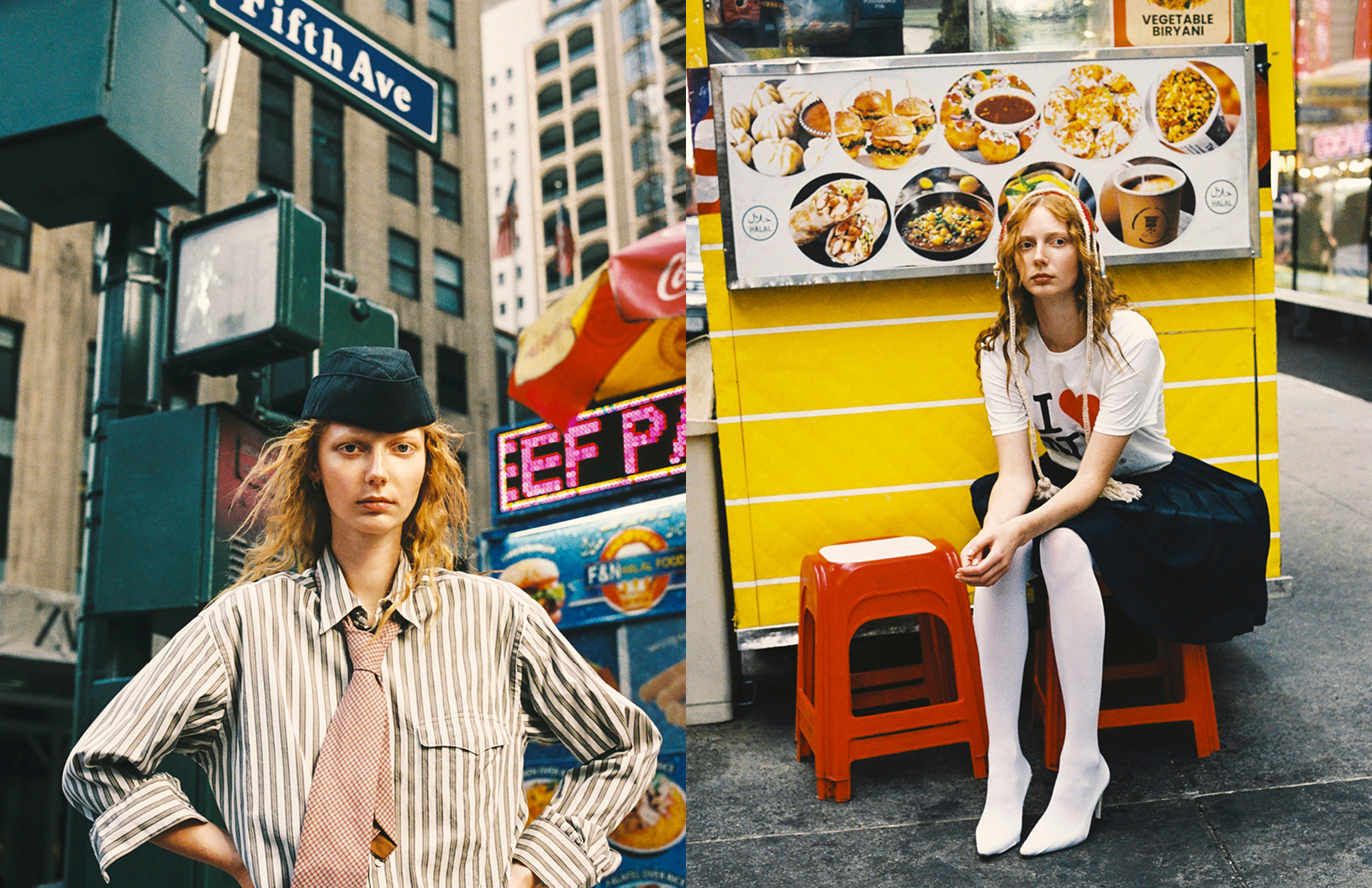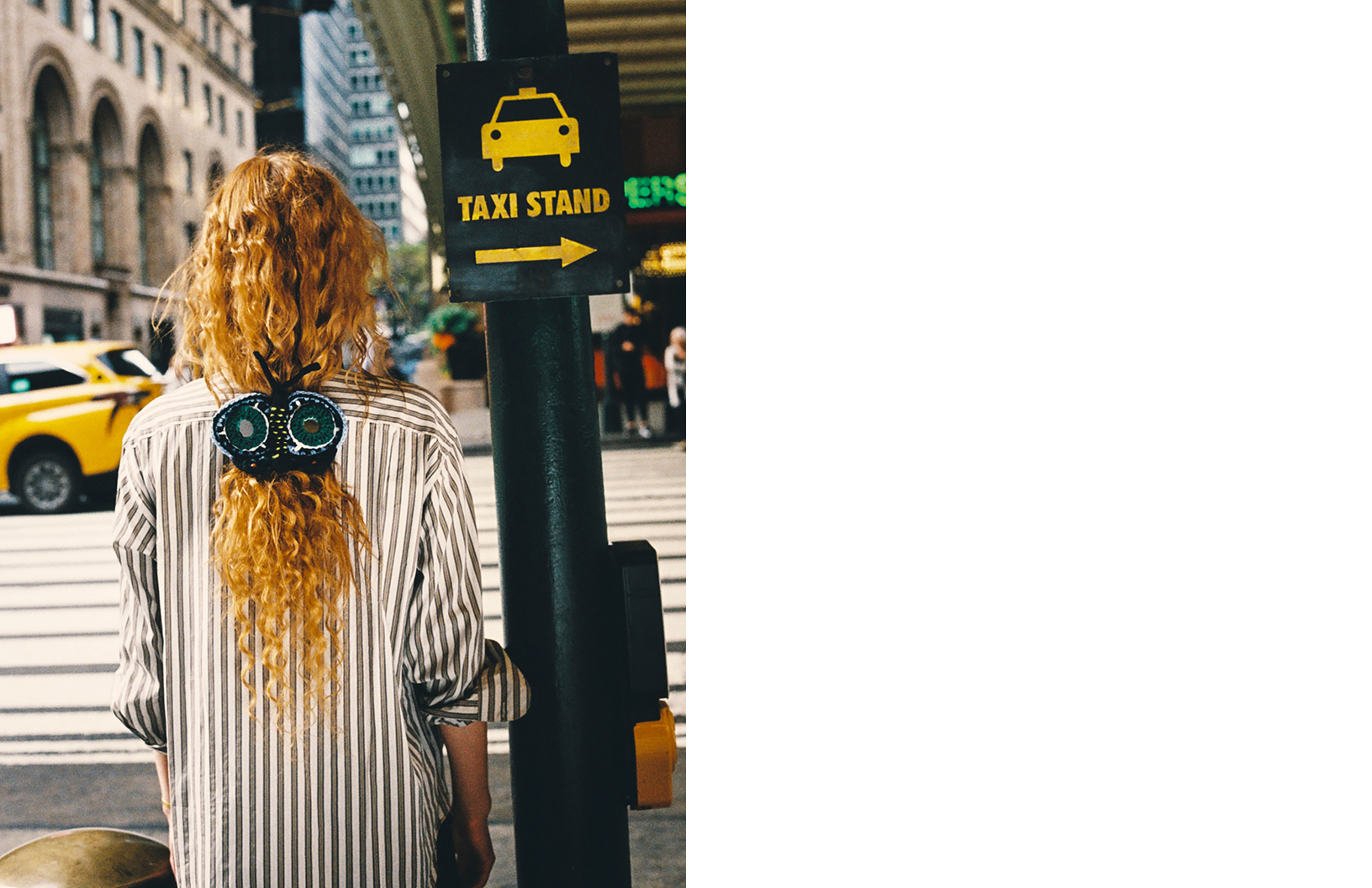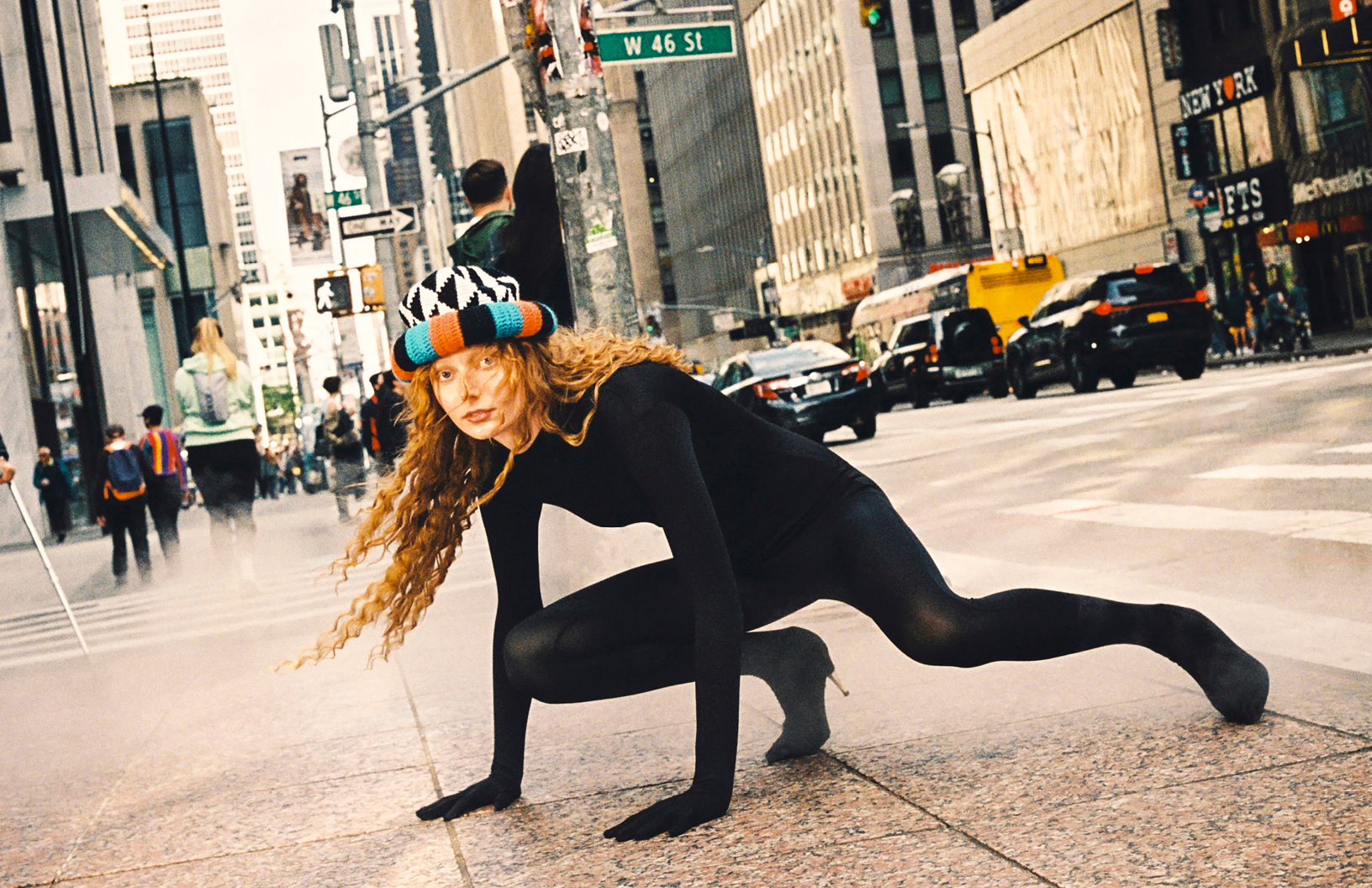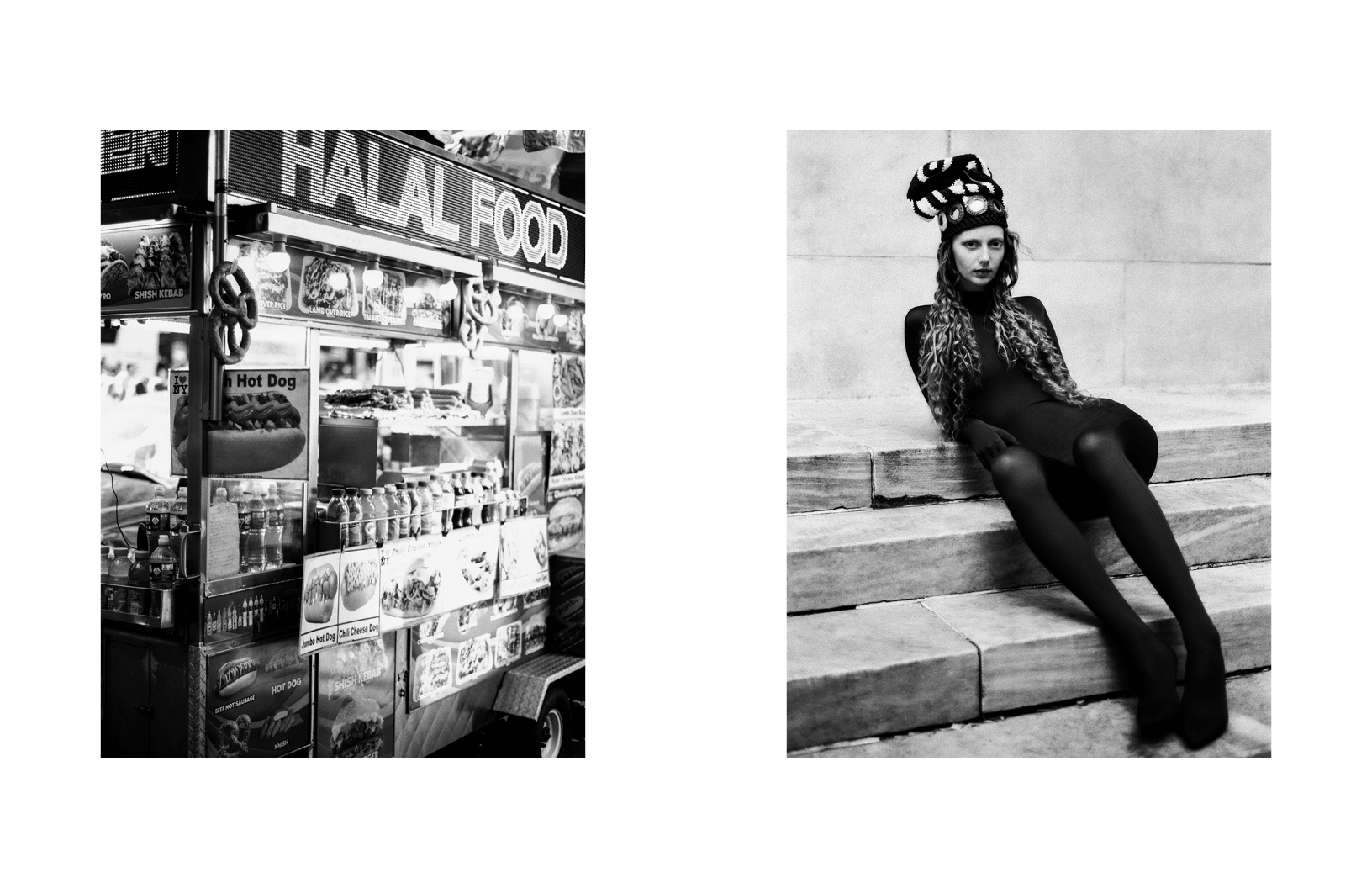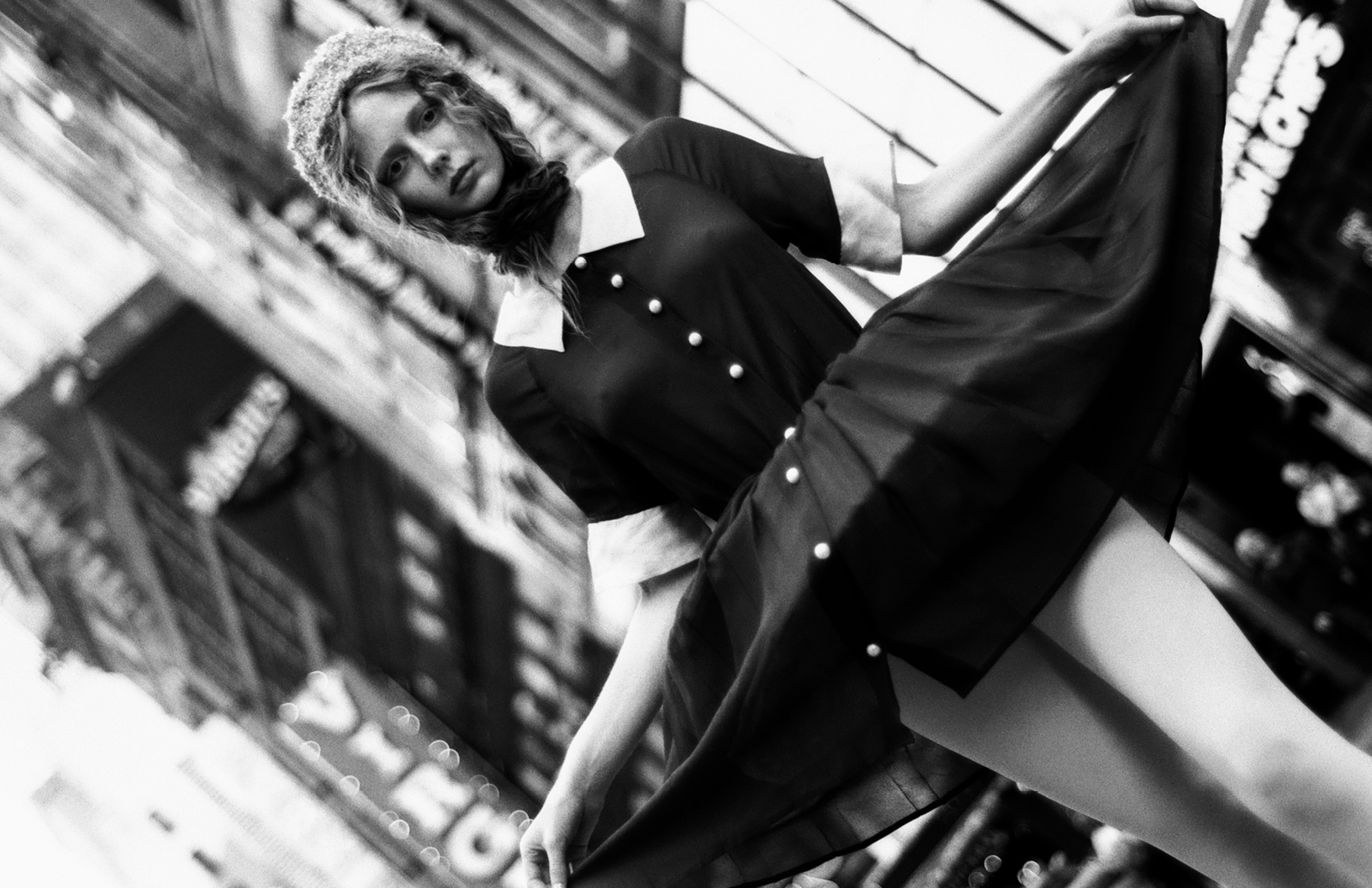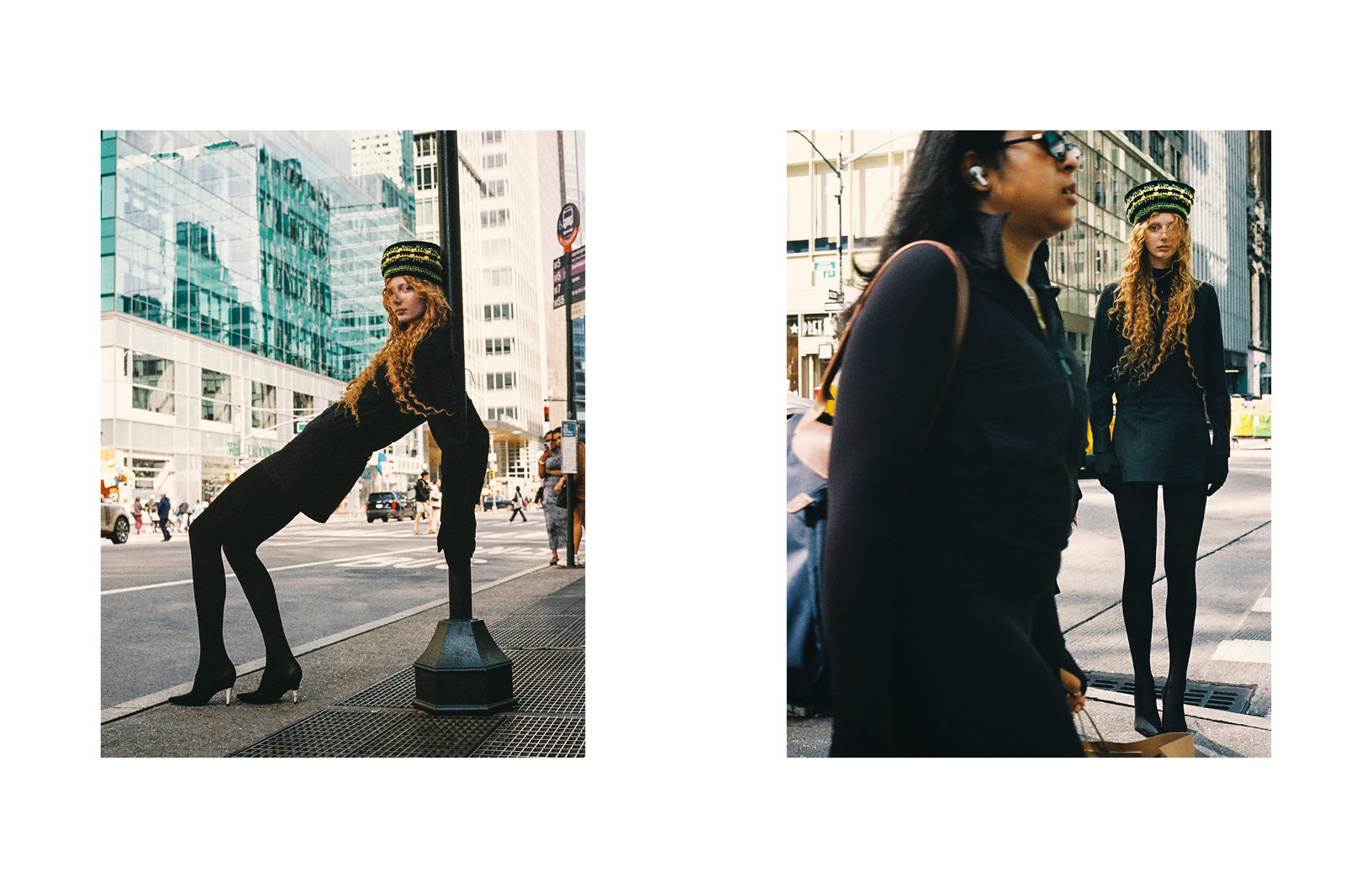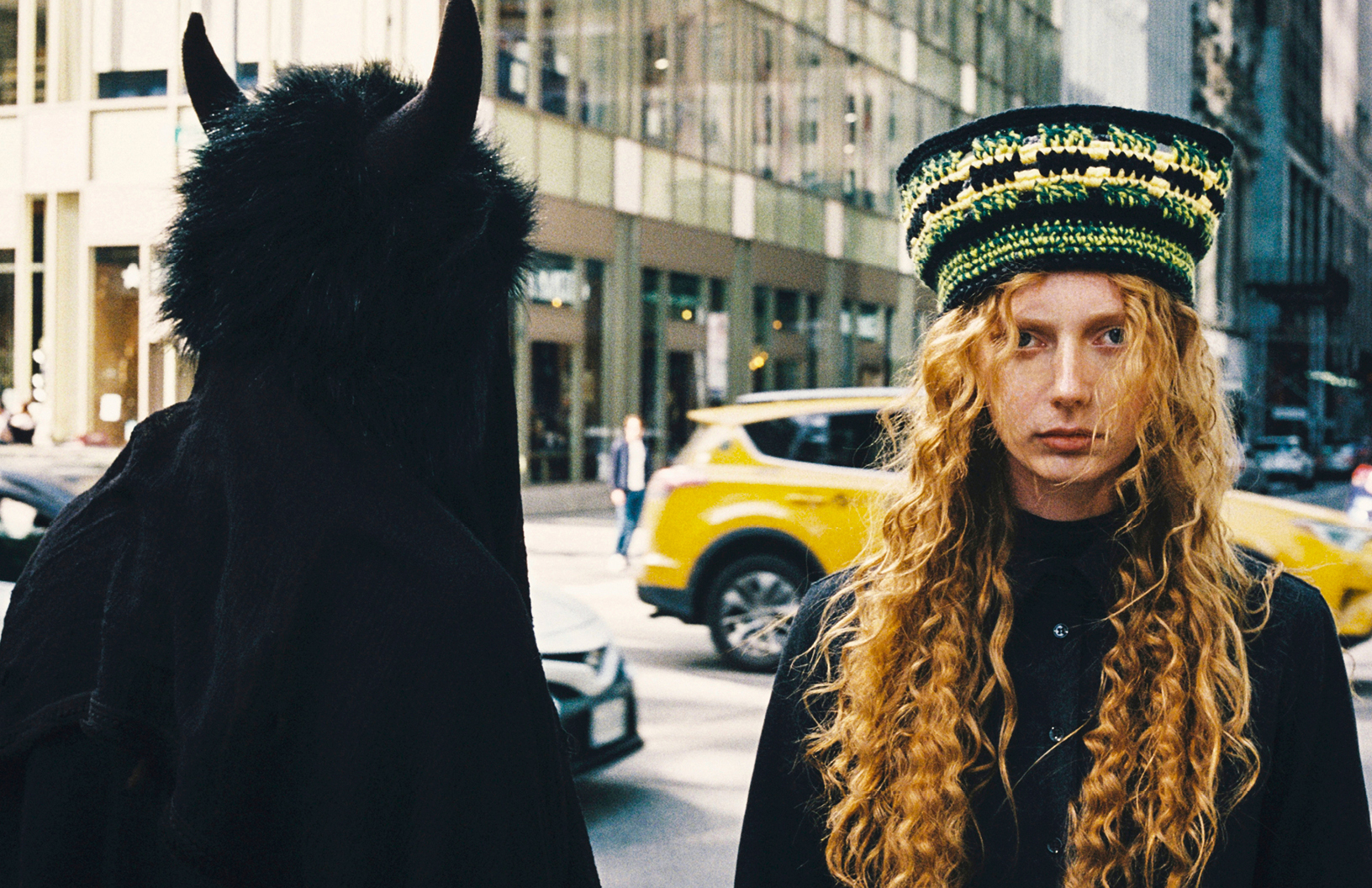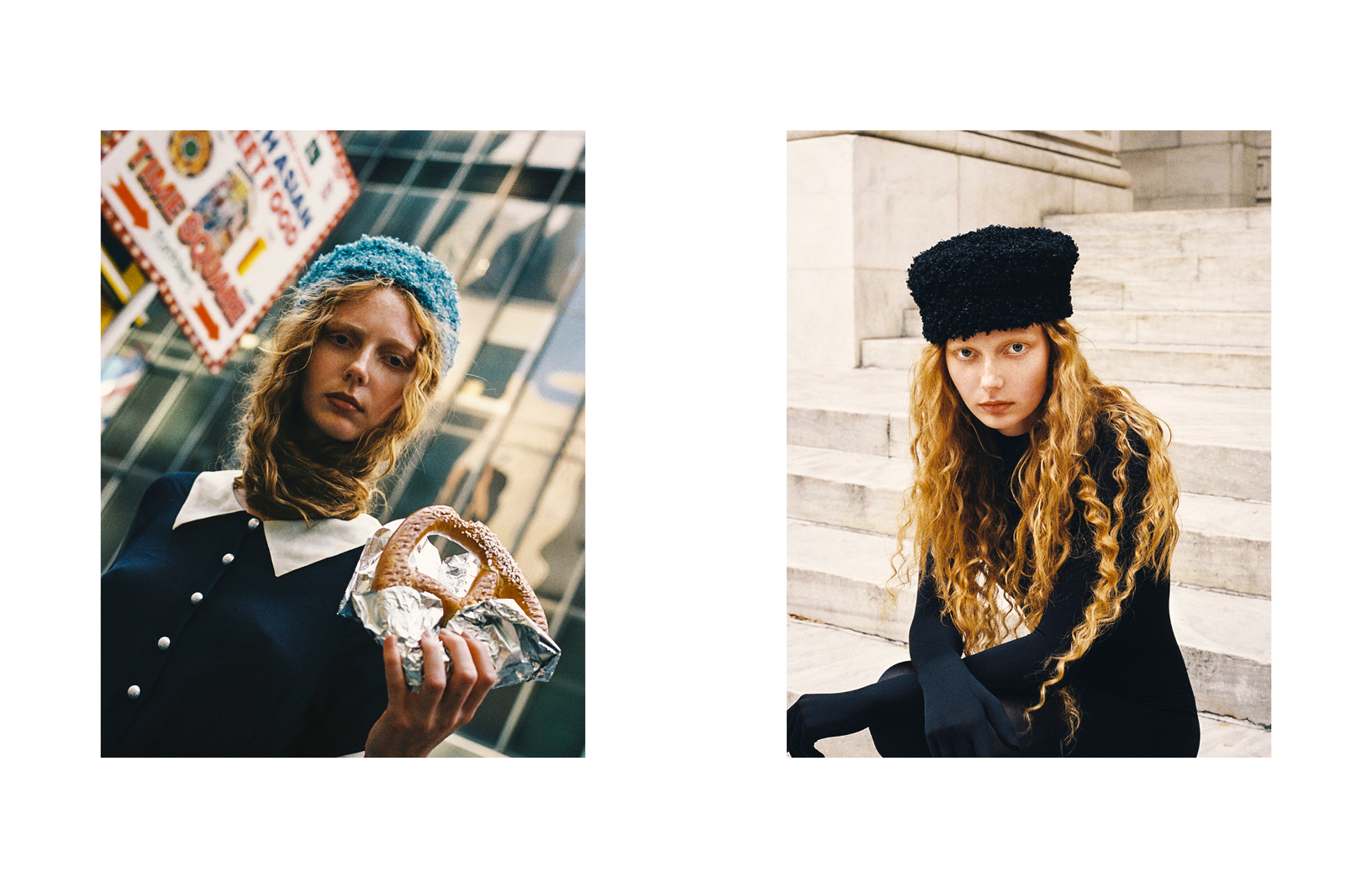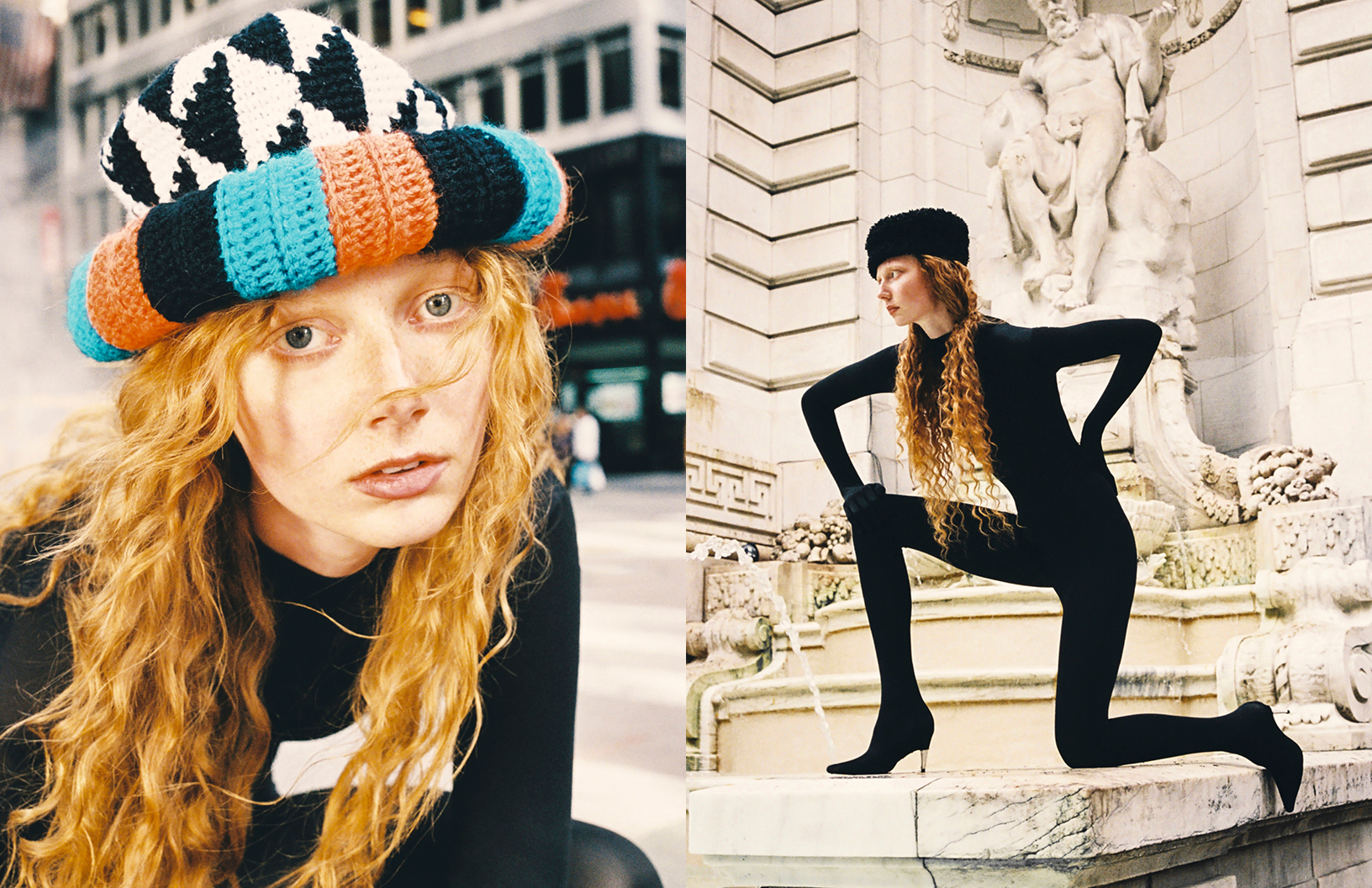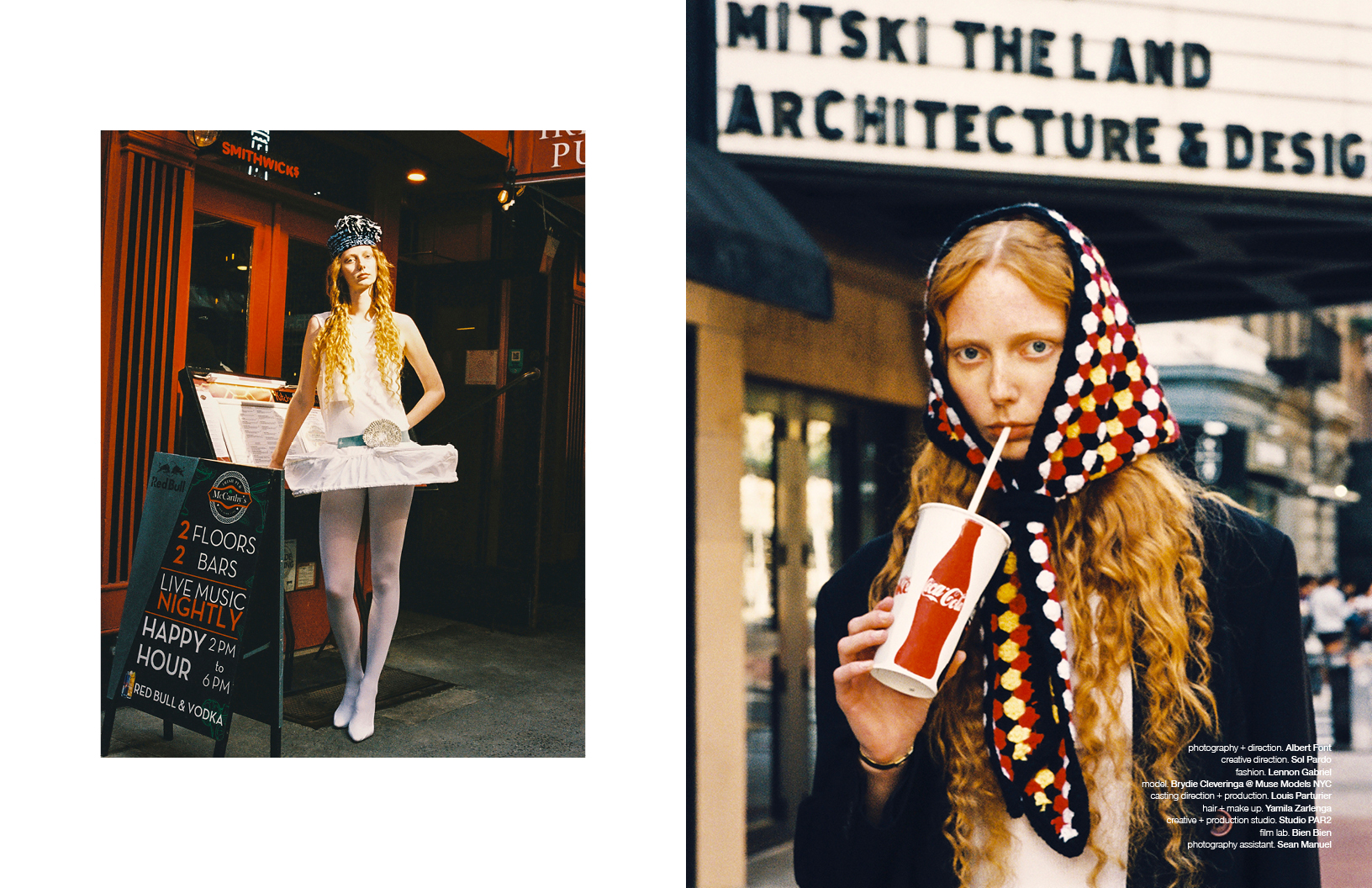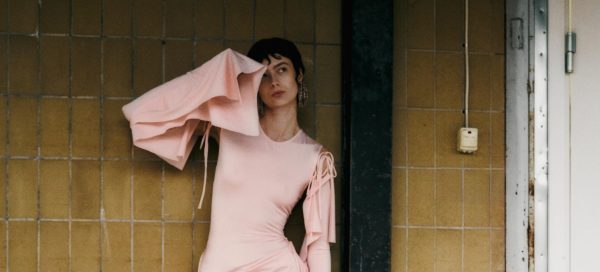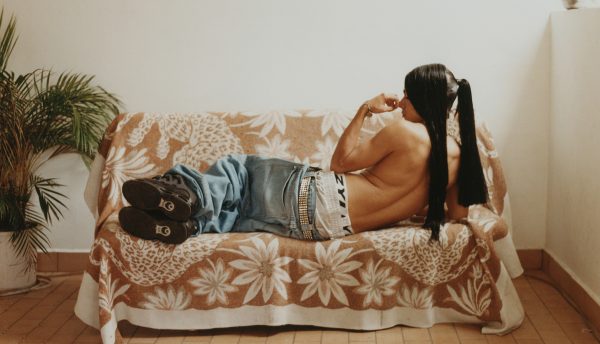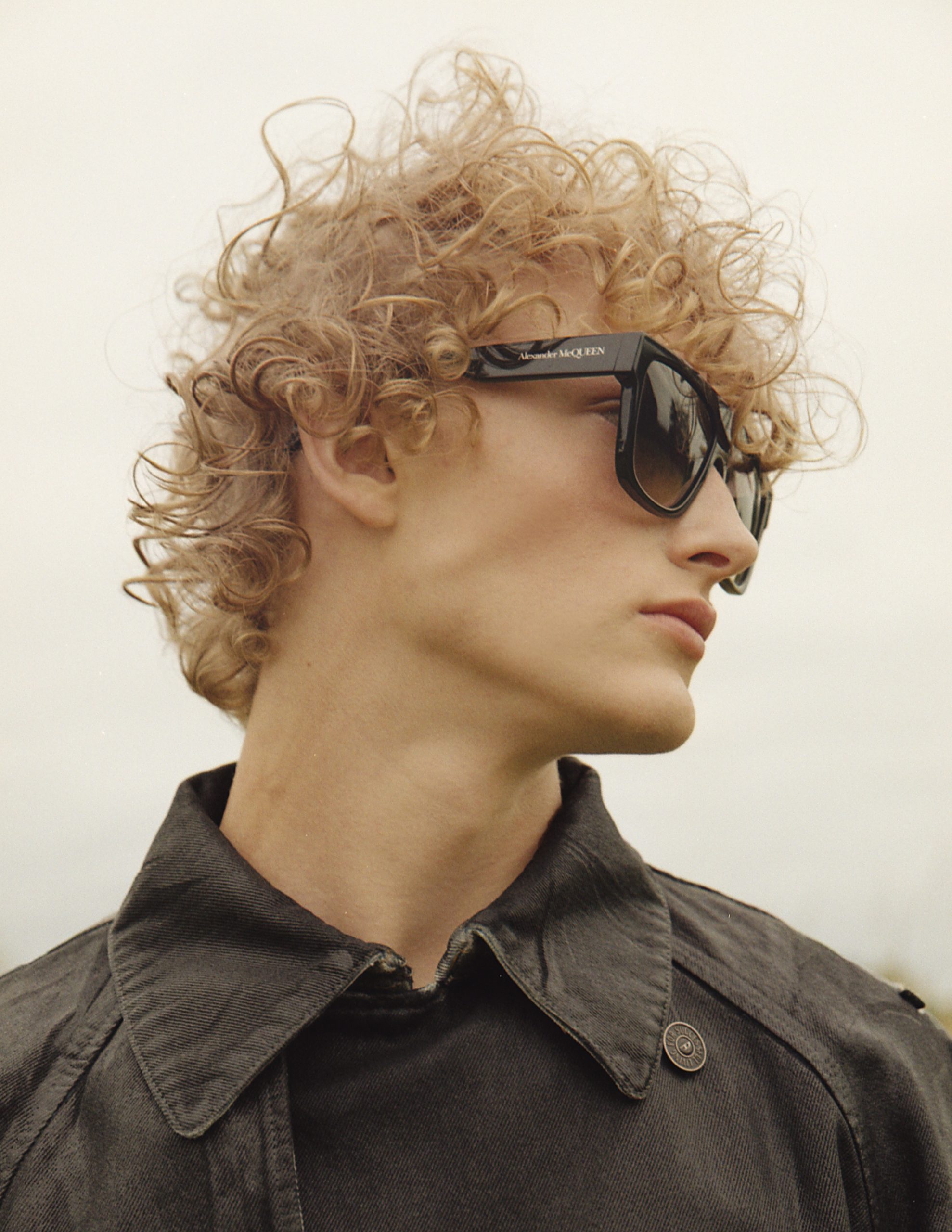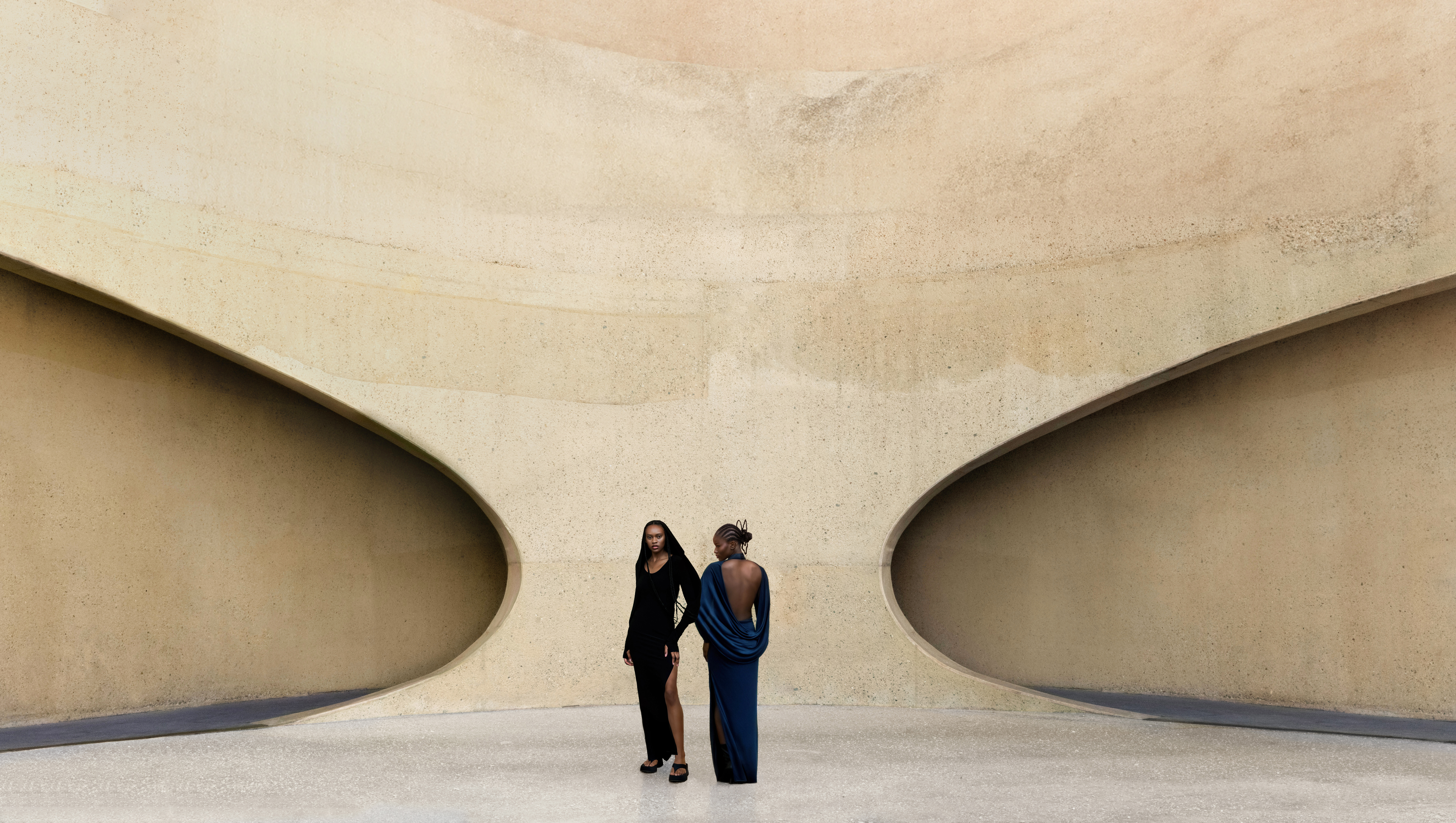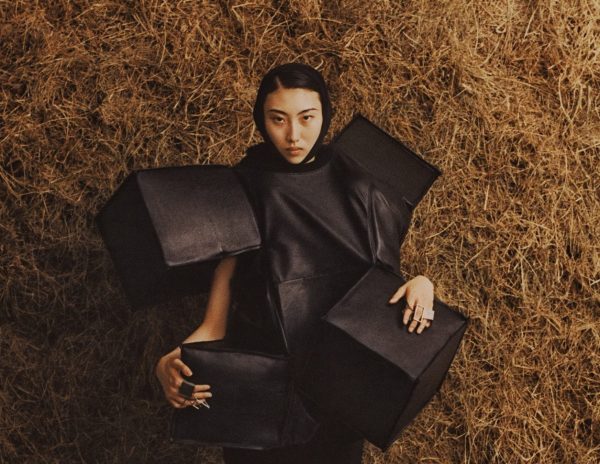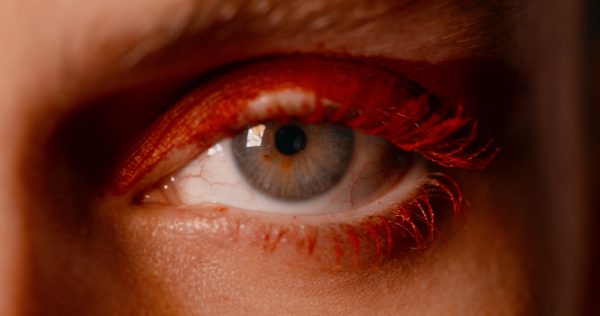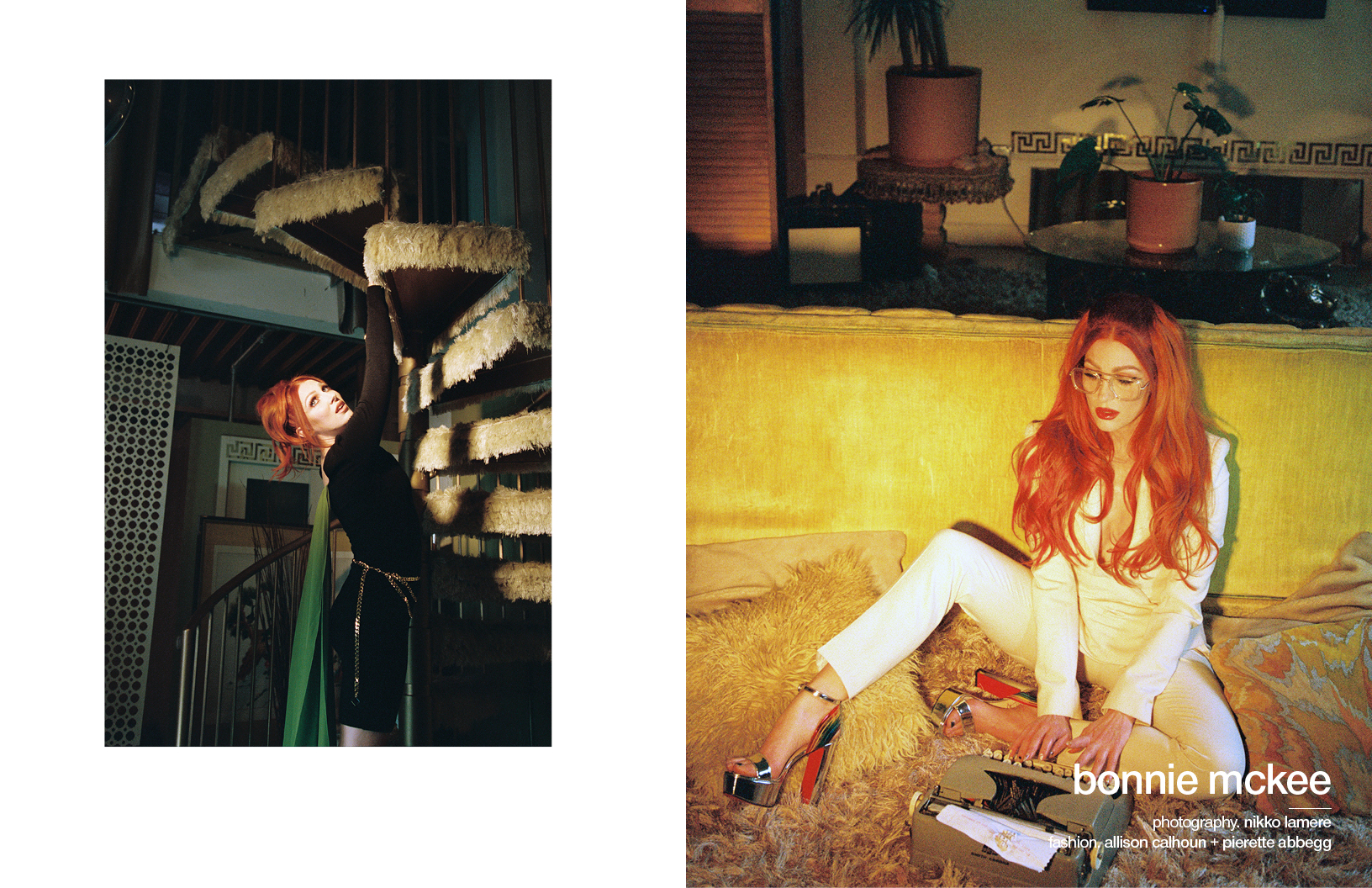
dress. Vintage
belt. Versace
shoes. Gucci
opposite
jacket + trousers. Adeam
shoes. Christian Louboutin
Whilst best known for writing some of the most successful songs of the decade on top of her own exciting musical career, Bonnie McKee’s latest venture takes her into the world of film. In under fifteen minutes McKee’s April Kills The Vibe tackles head on the issue of rape and the complex conversations that follow it. Schön! caught up with the multi-talented artist for a refreshingly open discussion exploring everything from storytelling, to consent, to sobriety.
As a songwriter with #1 hit songs for some of the world’s biggest stars to date, you are certainly not new to storytelling. April Kills The Vibe, however, marks your move into directing – a new realm of storytelling. Was writing and directing film always part of the plan?
I always wanted to get into screenwriting and directing! Making music videos and the visual aspects of the music industry have always been my favourite part of being a performer, but in my head I thought, someday… Then, when I was sitting around in quarantine with my hands tied on the music side of things I thought — maybe that “someday” has finally come!
How does your creative process differ when writing for a film compared to writing music?
I love the challenge of fitting these big evocative ideas into shiny little 3 1/2 minute pop songs, but I’ve really been enjoying the expansiveness of screenwriting. I love the freedom to continue an emotional thought from page to page and the opportunity to tell several stories from different perspectives in one piece. When I write a song, my thesis has to be hyper focused on one emotion or angle, so it’s fun to have the opportunity to explore more than one perspective, more than one feeling. Screenwriting is similar to song writing in that there is a formula to follow, so as a newbie it was helpful to already have an understanding of emotional peaks and valleys, timing and how to keep an audience engaged. When I started reading books and studying screenwriting technique, I realised that each song I write contains a sort of micro ‘hero’s journey’ within itself. Music is in my DNA so it will always play a huge role in my art, but screenwriting and directing are an exciting new challenge. It’s also refreshing to be a rookie in a new industry where there are zero expectations of me. I’m really enjoying getting to work in 3D!
April Kills The Vibe is based on your own experience of sexual assault and the blame game that often follows. Did you find creating April Kills The Vibe to be a cathartic process? What did the film allow you to do?
This assault was many years ago, and I’ve done a lot of therapy and healing since then, so I was not expecting to have any huge revelations in the process. But being on set and re-enacting the morning after, especially the bathroom scene, was both triggering and extremely cathartic. I am nine years sober now, so the broken hungover hot mess of a girl I used to be seems like a complete stranger to me now. I think I had really compartmentalised it in my head, and it had just become a sort of dark corner of my past I had accepted and moved on from. But being on set really hit home that this actually happened to me, in this body that I’m still living in. At the same time, it was empowering, because I was in control of the narrative, I was calling the shots, I was telling my story the way that I experienced it, and there was no one there to second guess or gaslight me. I didn’t realise how powerful it would be to feel witnessed.
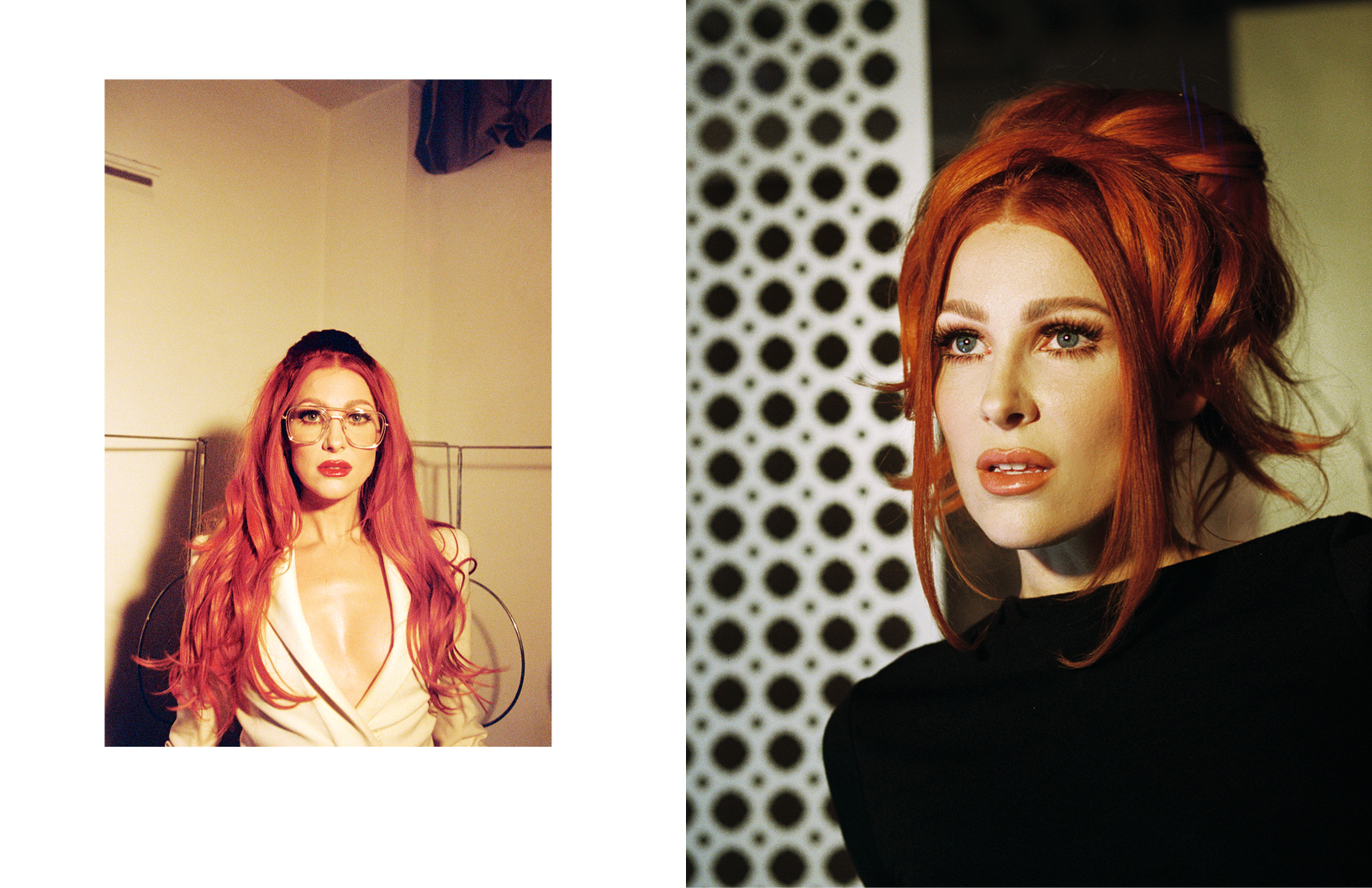
jacket + trousers. Adeam
shoes. Christian Louboutin
opposite
dress. Vintage
belt. Versace
shoes. Gucci
What I believe is so important about this film is that it not only takes on the subject of rape, but equally our complex and often problematic responses to it. What conversations do you hope this film will encourage?
It’s interesting, because I showed early cuts of the film to friends and colleagues who I thought would “get it” — girls who had been through the same thing, guys who I consider progressive allies — and I was surprised at some of their reactions. A few people said they felt empathetic towards April until Lola started reading off the long laundry list of April’s past promiscuous behaviour, and then it changed how they felt about her. It was hurtful, of course, because I am April, and it was almost like having to relive the victim blaming I had experienced when it happened. The notion that my past conscious promiscuity cancels out the traumatic non-consensual sexual assault I experienced is completely dismissive and implies that I deserved to be raped, or that I was asking for it, and this perspective is sadly common in these situations. So, I do hope to illuminate the issue of the difference between promiscuity and consent. They’re two completely different things.
You show remarkable talent in your ability to play both roles – both that of April, the woman who has survived the assault, and Lola, her friend who dismisses what she has gone through. Why did you decide to take on both roles?
I did not originally intend to play both characters; I thought it might be narcissistic or self-involved, and I wasn’t totally sure that I could pull it off! But when I was writing the script and thinking about the motivations of each character, I had the ugly realisation that I have actually been in Lola’s position. Years ago after my own experience, I left a friend at a bar. It was her birthday, and all of her high school friends were there with her, so I figured she’d be taken care of. The next day, she told me she had been raped, and I was absolutely gutted. I felt terrible for leaving her, but when she started blaming me for abandoning her, I got defensive. Of course, if I had seen anything happening at the bar I never would have allowed her to leave with a stranger, but I couldn’t be held responsible for her safety the entire night! Plus, she was frequently drunk; it was no different than any other night we went out, and I told her that. I didn’t want that blood on my hands. When I was writing Lola’s dialogue it hit me — I had said many of the same things to my friend that had been said to me, not in such cruel language, but the impact I’m sure felt the same. So, I decided it was important for me to play both roles not only to learn to forgive the Lola in my life, but to hold myself accountable for my own reaction to my friend. Rape does not only affect the survivor — it sends ripples of grief through everyone in proximity to it. It is traumatic and uncomfortable for everyone involved, and we don’t always know the right thing to say.
Watching April piece together what happened to her is a difficult watch, but the ending offers an uplifting message of hope. If there is one key message you are sending through this film what would that be?
You know, this is a big question and I’ve struggled with it because I am still sort of processing. For me personally, my big revelation was that I needed to get sober. This was not the first time I had been raped, or the last. I put myself in all kinds of dangerous situations when I was still using and drinking. But the message is not “drinking makes you more vulnerable to assault so don’t do that to yourself”, because that still implies some form of responsibility on the survivor’s part. Alcohol is not the problem. Women should have the freedom to get black out drunk as often as they please and not have to worry about predators lurking in the shadows waiting to take advantage. For me, alcohol is a problem — I probably wouldn’t have gotten into a car with a stranger had I been sober, and my life certainly improved once I stopped drinking, but that does not guarantee that this wouldn’t ever happen again. The rapist is barely discussed in the film at all, because that has been my experience. It’s always been “what was she wearing? Why was she drinking? She should have known better!” The question on the surface of the film is “who’s to blame? Is April just a drunk slut who was asking for it? Or is Lola a shitty friend who let her down?” At the end of the day, there is only one person to blame in this circumstance, but in reality, the finger is often pointed everywhere but where it belongs — at the perpetrator.
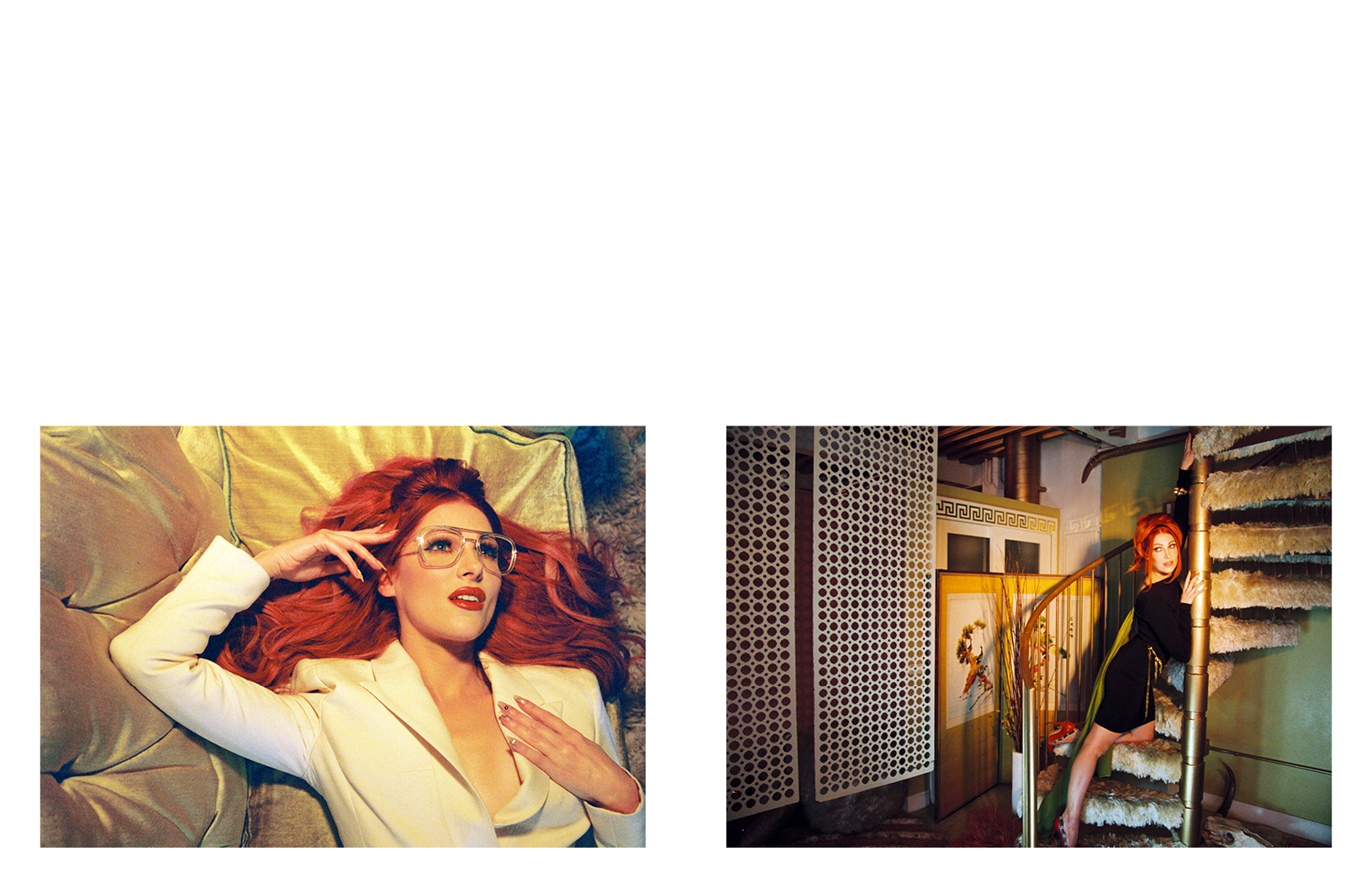
jacket + trousers. Adeam
shoes. Christian Louboutin
opposite
dress. Vintage
belt. Versace
shoes. Gucci
In the beginning of the film there is an unsettling, twinkling soundtrack that heightens the film’s sense of unease. How important was the music to you in creating an ambiance?
This was my first time composing a score, and I really enjoyed it! I’m used to having lyrics to guide emotional cues, so it was an exciting challenge to tell a story with music alone. I scored it with my real-life boyfriend and co-star Andy Harry (he plays Grant). Since the opening sequence is April waking up, I wanted the music to start out sounding like an alarm. So, I sat down at the piano and just plunked one unsettling note over and over again, and then began adding a new note to the phrase every time it repeated. I wanted it to feel like recalling a string of memories, slowly putting together the pieces of an ugly puzzle, adding an angular note for each flash of detail April remembers till it swells into a symphony of tragic realisation of the horror that occurred. Score, for me, can make or break a film.
The film is visually captivating with its bursts of bright colours. What inspired the aesthetic?
Honestly, I wrote, directed, edited, starred in, scored, styled, cast and set designed this thing myself, and I shot it in my own living room, so it really just looks like my day-to-day life! I realised when I was pulling references for the cinematographer, Dawn Shim (who is an incredible female DP and really brought my vision to life) that most of my favourite movies are my favourite because of the colour stories. I’m a huge fan of Quentin Tarantino, Sofia Coppola, Wes Anderson — I didn’t realise how much I reacted to bold colours and intentional colour stories films until I was in charge of putting a picture on the screen. Since I was playing both characters, it was important for me to really establish each character’s colour world. April is all blue and green and brown; she’s in a colder, darker place mentally, and Lola is all oranges, yellows, pinks. She’s just a ray of obnoxious sunshine.
Your Instagram is a place where you express your bold, iconic style. How important is fashion to you and your self-expression?
Well, let’s put it this way: my mother wanted to put me in a private school, which meant I’d be wearing the same uniform every day for the rest of my academic career. I had to pass a test to get in, and I purposefully failed it so I wouldn’t have to go, which went on my academic record and landed me in the below-average classes from then on. So basically, I sacrificed my education and academic reputation to preserve my personal self-expression. Style is often regarded as superficial or vain, but to me, it is an art form. It says something about how we view ourselves, where we fit in the world and who we want to be.
Your work across the creative industry proves above-all that you have mastered the art of storytelling. Can you tell us anything about what you will be working on next?
April Kills The Vibe is an excerpt from a larger series I’ve been working on. I want to tell the story of my experiences being a female recovering addict in the cut-throat music industry. It is music based, but not a ‘musical’ in the traditional sense, so I’ll get to merge all of my favourite things together in one place — music, storytelling and style.
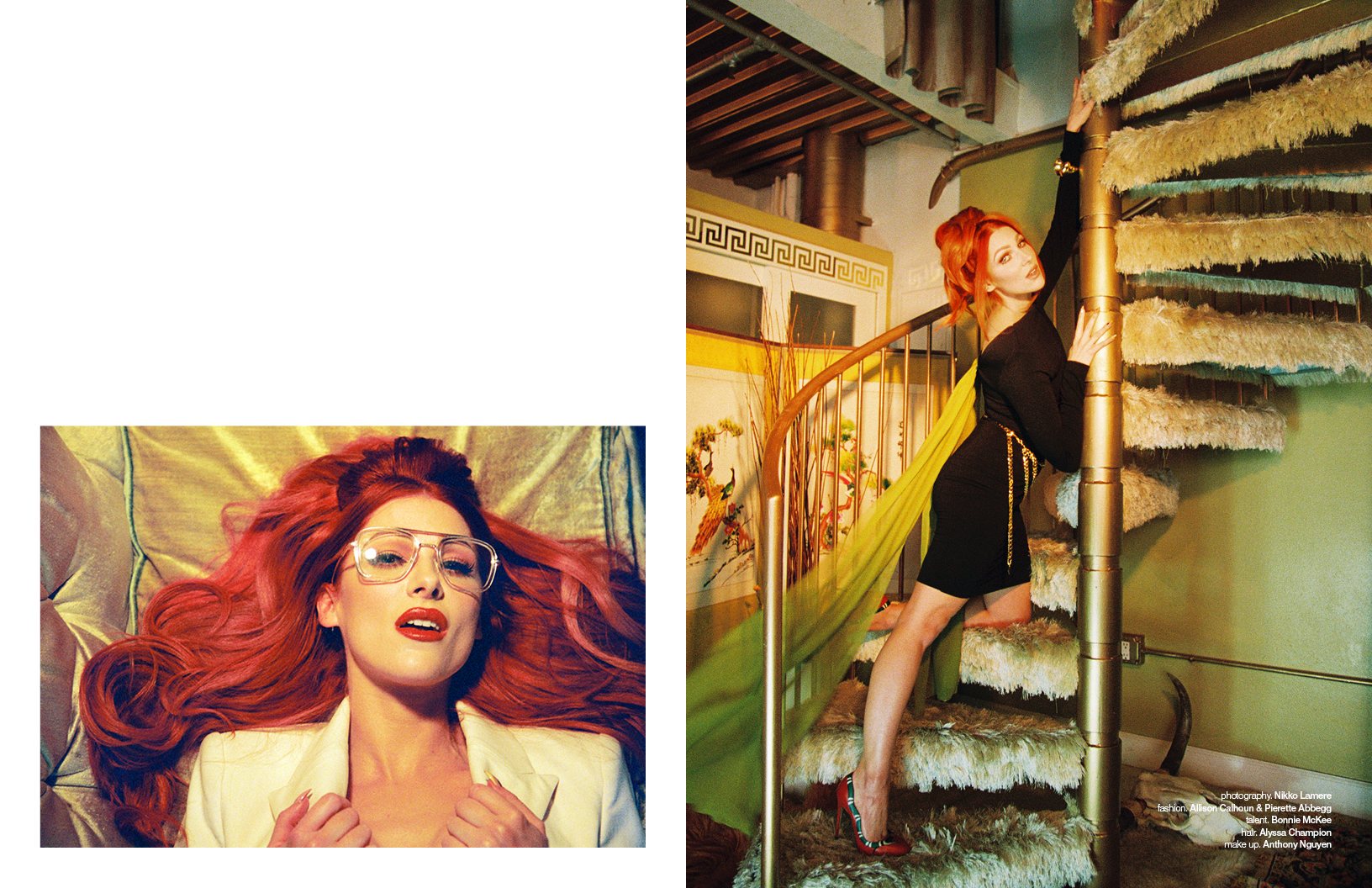
jacket + trousers. Adeam
shoes. Christian Louboutin
opposite
dress. Vintage
belt. Versace
shoes. Gucci
April Kills the Vibe is currently streaming as part of the Malibu Film Festival.
Discover more about the film on its website.
photography. Nikko Lamere
fashion. Allison Calhoun + Pierrette Abegg
talent. Bonnie McKee
hair. Alyssa Champion
make up. Anthony Nguyen
words. Cordelia Speed


Schön! Magazine is now available in print at Amazon,
as ebook download + on any mobile device




